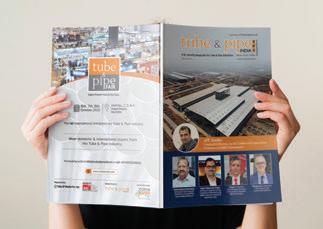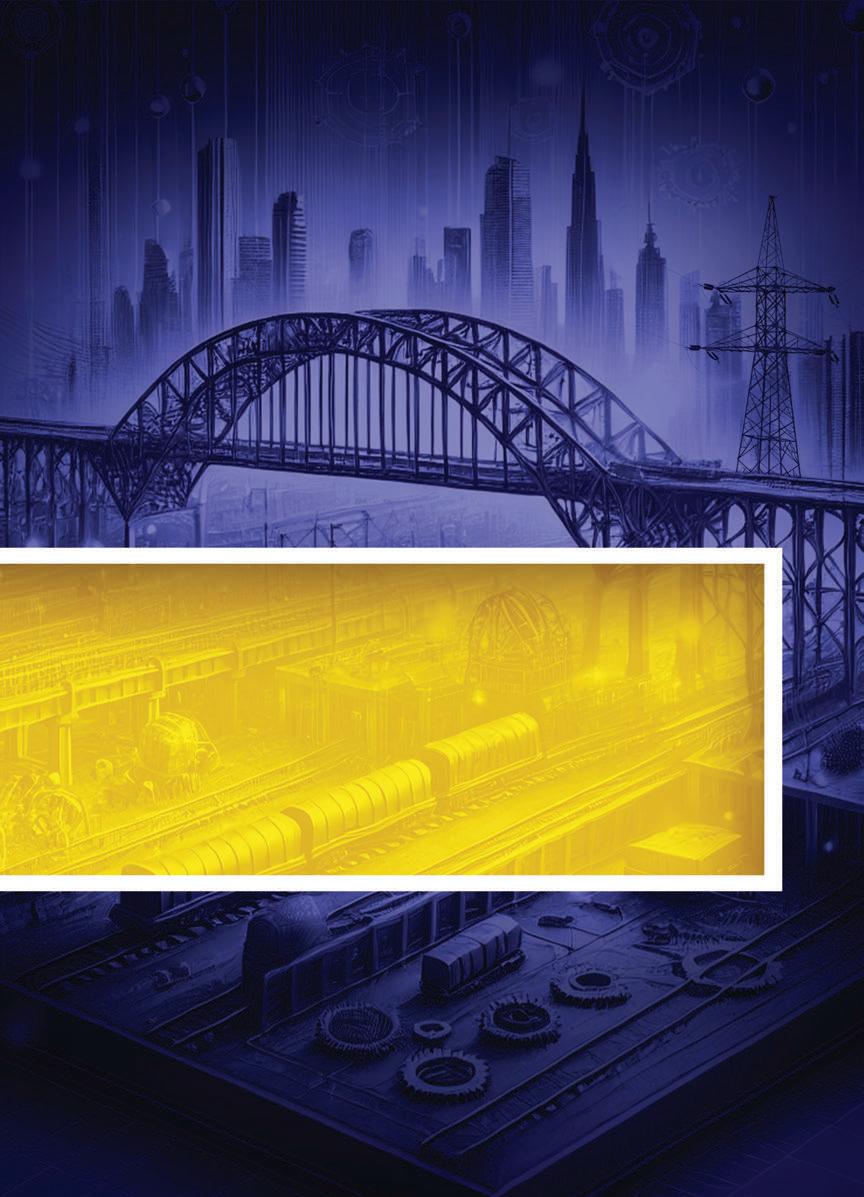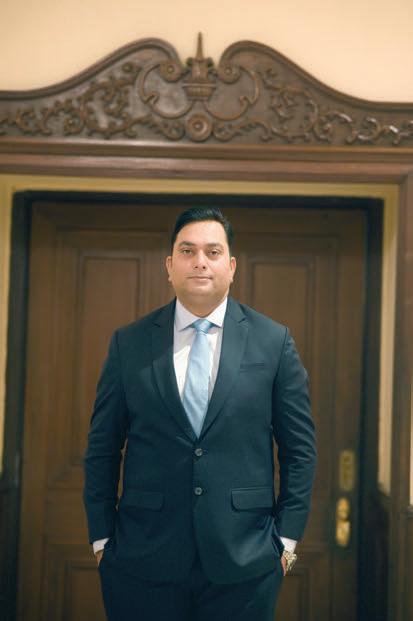
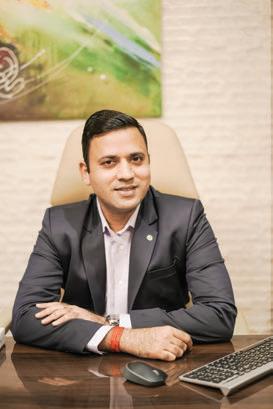
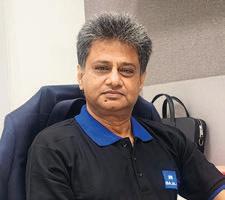

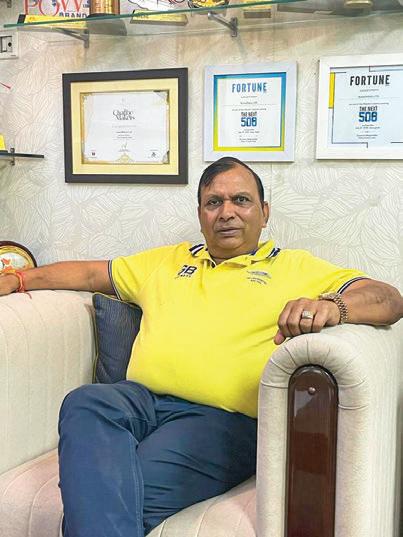
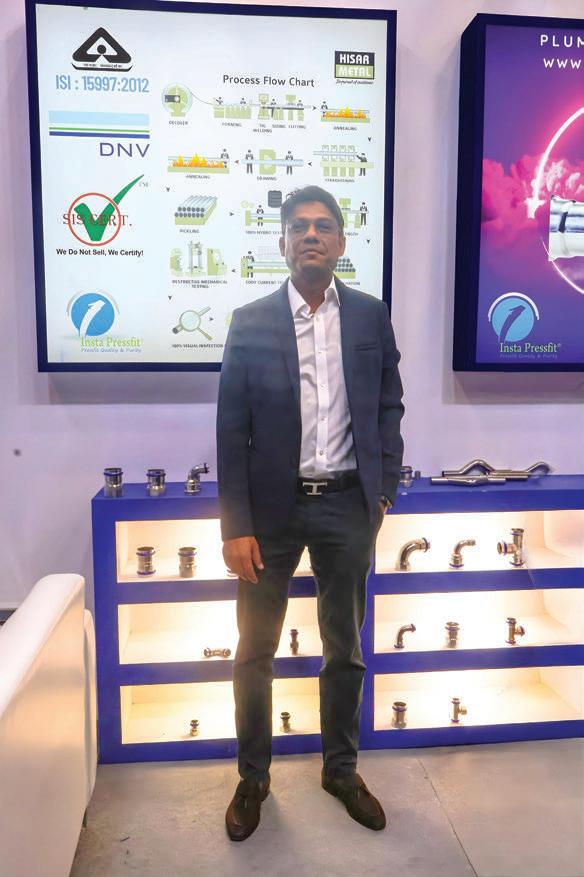
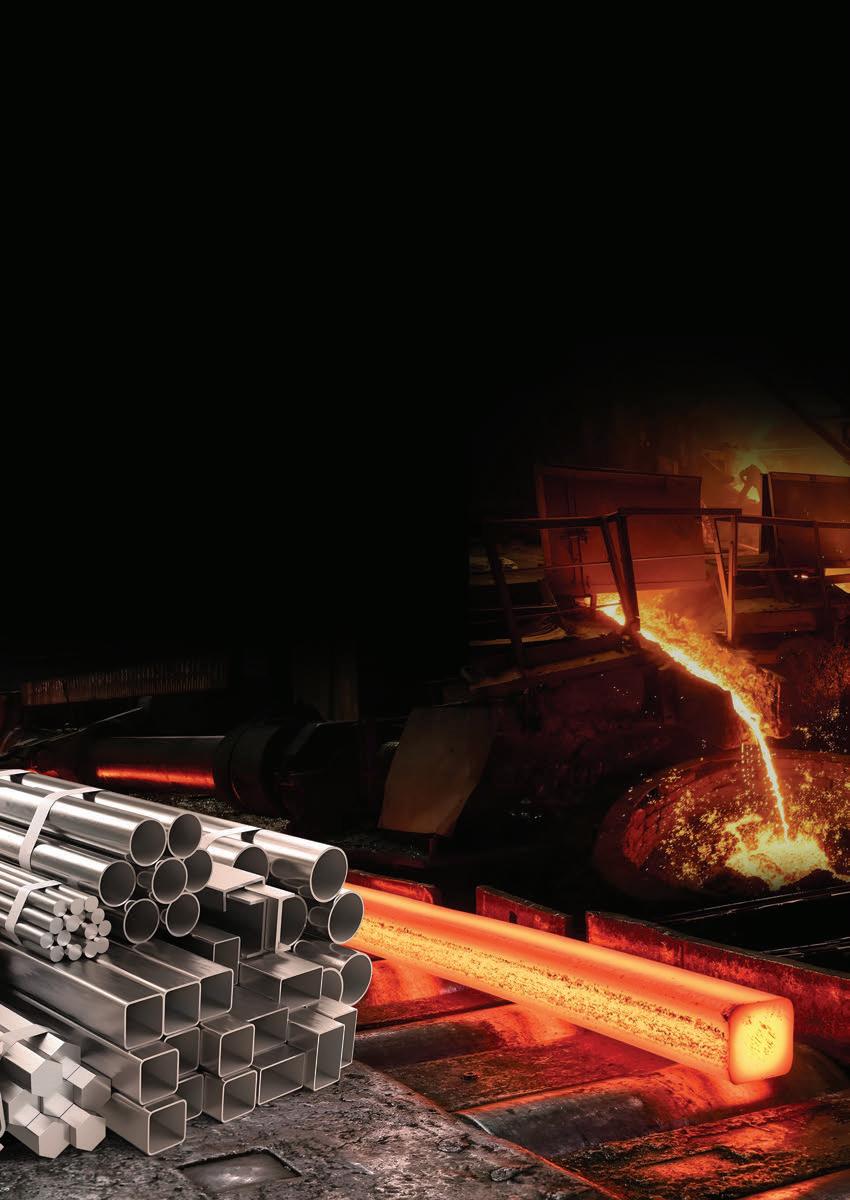
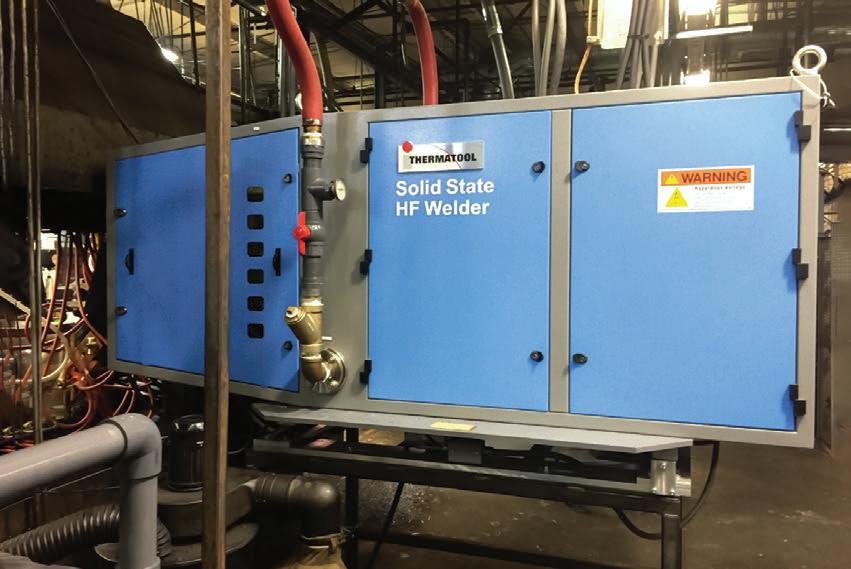




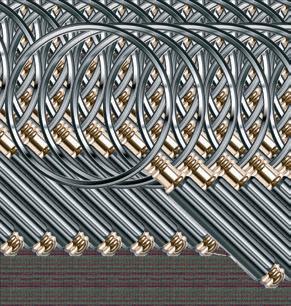




















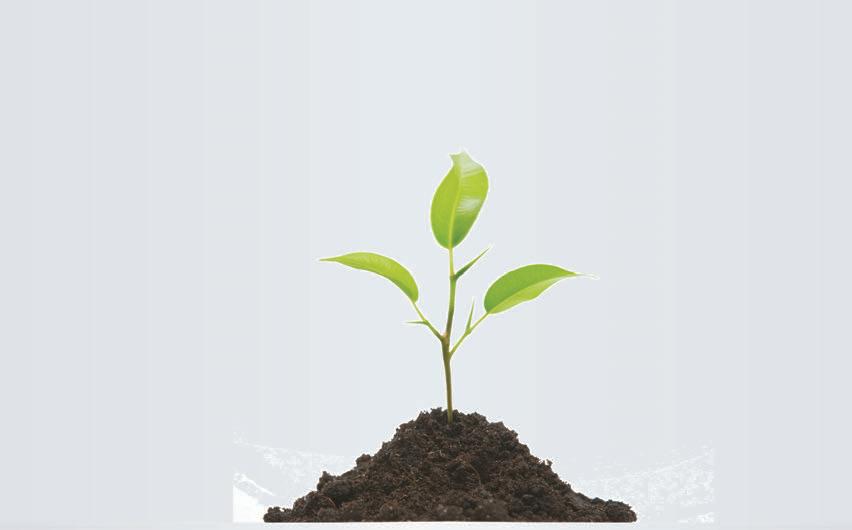
www.papermart.in papermart.in/emagazine
Our Brands:www.cablewirefair.com Mommy & Baby Fair www.mommybabyfair.com
www.mommybabytimes.com www.tubepipeindia.com
www.wirecable.in wirecable.in/emagazine mommybabytimes.com/emagazinetubepipeindia.com/emagazine Magazines
Events Online Platform www.papermartdirectory.com FAIR www.tubepipefair.com
Our Services:• Magazine Publishing • Events • Market Research • Bespoke Publishing • Digital Marketing
An upcoming media company, Tulip 3P Media brings out publications for different B2B verticals. The activities of the company now embrace events and market research as well. Tulip is currently on its way to further expanding its publication portfolio through publications for other business verticals and a rich offering of other niche media services. Tulip 3P Media Pvt Ltd 501-502, ABW Tower, MG Road, IFFCO Chowk, Gurugram-122002, Haryana Mobile : +91 99999 35011 / 22 / 44, Email: info@tulip3pmedia.in www.tulip3pmedia.in



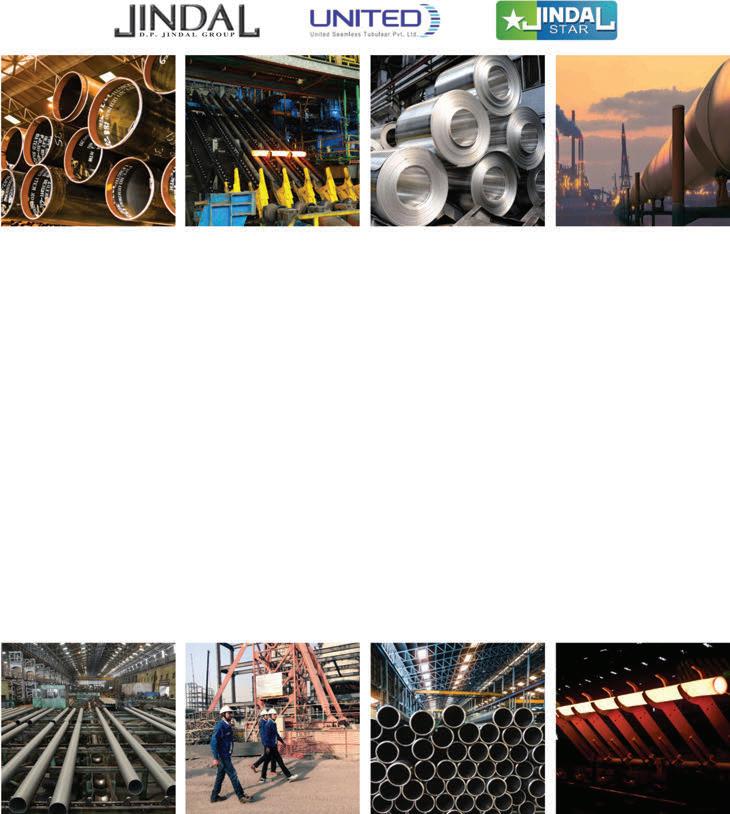
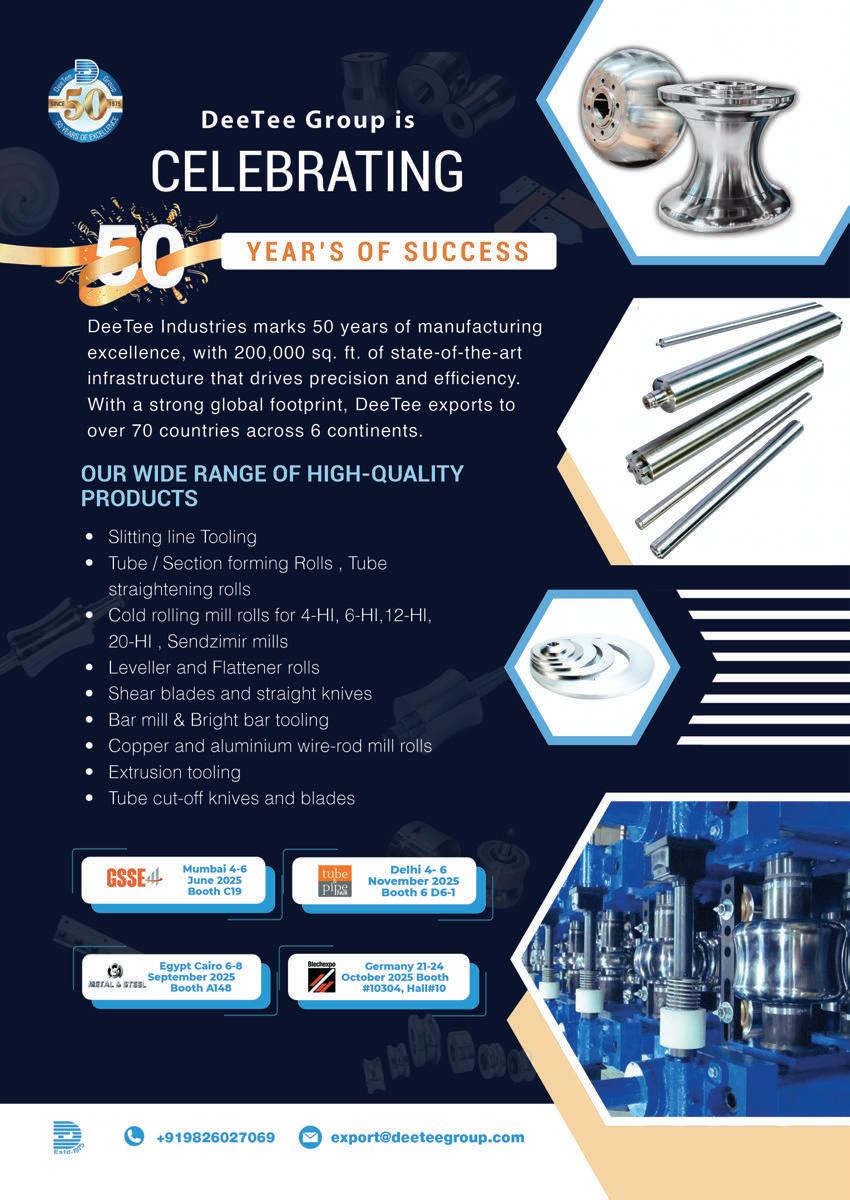

2025, Tube & Pipe India
India’s Steel Capacity Surges to 205 Million Tonnes: Production in 2025 to Ride on the Twin Priorities of Growth and Greening
India’s steel sector stands at a decisive moment, balancing the pressure of global competition with the momentum of domestic demand and policy support...
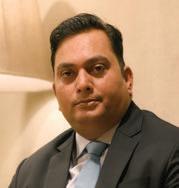

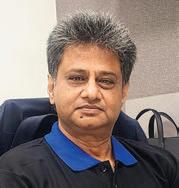

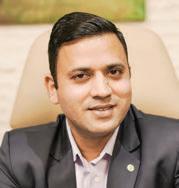


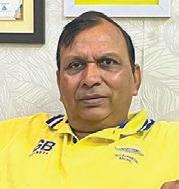
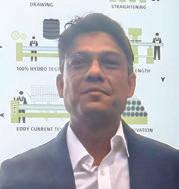
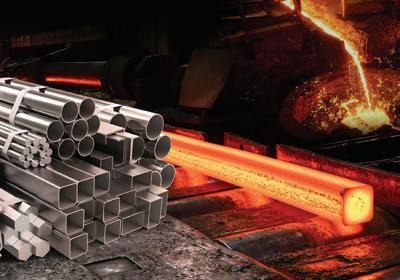
ESL Steel Gearing Up for Green Steel Production, Focussing on ESG-Centric Manufacturing
ESL Steel Limited, a subsidiary of Vedanta Limited envisions becoming a benchmark in the Indian steel industry for responsible...
Sambhv Steel Tubes: Driving Growth Through Capacity Expansions and Strategic Greenfield Project
Sambhv Steel Tubes Private Limited, a subsidiary of Sambhv Steel, has acquired land...
Vardhman Special Steels Plans to Increase Rolling Mill Capacity to 270,000 TPA
Vardhman Special Steels Limited (VSSL) plans to increase its
to 270,000...
Ratnadeep Metal & Tubes Gears Up for Growth with Backward Integration
Ratnadeep Metal & Tubes is making significant strides towards the company’s growth through backward integration...
Mukand Limited Eyes High-End Application Sectors With Automation & Digitalization
Mukand Limited, comprising two divisions - steel and industrial machinery, is looking forward to contributing and being a part of a greener...
Kamdhenu: Poised to be a Part of Indian Steel Industry’s Growth Story
Kamdhenu Limited, a one-stop construction material solutions company engaged in manufacturing and supply of TMT bars...
Arya Tubes: Specialist in Drawn and Bright Annealed Tubes for Engineering and Industrial Applications
Arya Tubes, a division of KnitPro International, specializes in the manufacturing and export of small diameter and thin-walled stainless steel...
and
Apollo Pipes to Scale Up Capacity; Targets 286,000 Tonne by 2028
Apollo Pipes Limited is set to expand its total production capacity by 70,000 tonnes through its ongoing expansions, including its INR 135 crore greenfield facility in Varanasi...
Sintex Launches India’s 1st CPVC Antimicrobial Pipes
With the launch of its India’s 1st CPVC antimicrobial pipes, Welspun World’s acquired Sintex is highlighting the health aspect in the water story. The company...
Prince Pipes and Fittings Eyes East Indian Markets With 48,000 MT Facility in Bihar
Prince Pipes and Fittings Limited makes inroads into bathware products by acquiring Aquel Bathware in March 2024. Mr. Parag Chheda, Joint Managing Director, Prince Pipes and Fittings Limited, revealed during an exclusive...
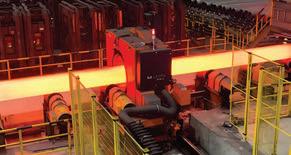

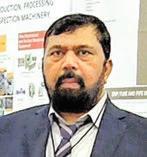
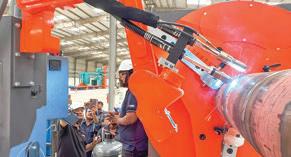

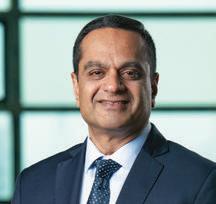
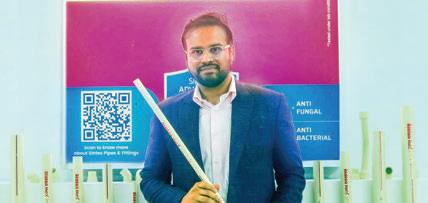
PRODUCT PROFILE
Tecnar and OM Techcorp Partner to Bring Lut 2.0 Wall Thickness Gauge to Indian Market
OM Techcorp, a leading supplier of machinery and technology to the steel...
COMPANY PROFILE
OM TechCorp Providing Valuable Expertise to Seamless Tubes and Pipes Industry
OM TechCorp, with its combined expertise of production technology and market trend in the seamless tubes & pipes sector...
Tecnar Rotoweld: Transforming Pipe Spool Welding Productivity and Quality in India
Tecnar, a spin-off from Canada’s National Research Council, with 35 years of experience in automated pressure pipe welding...

Beyond the top tier, a different but equally dynamic story is unfolding. India’s secondary steel segment includes longproduct specialists, coated steel units, pipe manufacturers, and stainless steel suppliers.

India’s steel sector has reached a consequential phase in its industrial trajectory. With crude steel capacity at 205 MT and a national target of 300 MT by 2030, the country is advancing toward becoming one of the few nations capable of supplying both volume and variety to global markets. Yet growth today is not defined merely by output. The urgency of carbon compliance and trade defensibility has introduced new dimensions of competitiveness.
The country’s leading producers such as JSW Steel, Tata Steel, SAIL, AM/NS India, and Jindal Steel & Power are scaling up rapidly. JSW is targeting 51.5 MTPA by 2030, while Tata Steel is expanding its Kalinganagar unit by 5 MTPA. These are capital-intensive projects aimed at increasing both efficiency and downstream capability. At the same time, they are responses to shifting global norms. The European Union’s Carbon Border Adjustment Mechanism (CBAM), due to come into full effect by 2026, will penalize carbon-intensive steel. For India, which still relies heavily on coal-based blast furnaces, the implications are strategic.
Large producers have begun to reposition. JSW is investing in hydrogen-based energy integration. Tata is embedding sustainability into core production lines. These moves are vital for preserving access to export markets. With India’s per capita steel consumption still under 80 kg—far below the global average of 230 kg—domestic demand offers runway. However, global buyers increasingly seek traceable, low-carbon inputs. The export narrative will hinge not just on scale but on emissions benchmarks and life-cycle disclosure.
Beyond the top tier, a different but equally dynamic story is unfolding. India’s secondary steel segment includes long-product specialists, coated steel units, pipe manufacturers, and stainless steel suppliers. These firms are geographically dispersed, often closer to consumption zones, and are building capabilities in energy optimization and integrated supply.
Welspun Corp, for example, has emerged as a global line pipe supplier. It is investing in ductile iron and stainless steel capacity and is pursuing full carbon and water neutrality by 2040. Sambhv Steel Tubes, a newer entrant, has integrated backward into coils and captive power. It produces specialty alloy and Corten-grade pipes. Mukand Ltd, with a long legacy in alloy and stainless steels, now serves the auto, defense, and nuclear sectors. Hisar Metal Industries is scaling up cold-rolled precision production and plans to double its solar energy share in the next fiscal year. Vardhman Special Steels is reinforcing its position in SBQ and automotive-grade steel through OEM partnerships.
What unites these players is a converging shift toward energy independence and emissions discipline. Solar, wind, captive thermal, and waste heat recovery are now active cost strategies. They are no longer niche pilots.
Together, India’s integrated and secondary producers are reshaping the country’s industrial geography. They bring manufacturing to underserved regions. They buffer global price shocks with flexibility and add resilience to infrastructure supply chains.
Still, challenges remain. The country continues to rely on imported coking coal. Infrastructure must keep pace with expanded output. Policy support will need to evolve beyond incentives. It must include mechanisms that reward low-emission steel through procurement or certification.
If India succeeds in aligning capacity with carbon efficiency, its steel sector could emerge as both a domestic enabler and a credible global supplier in an era defined by green trade. That prospect depends on keeping both tracks, i.e. scale and sustainability, in close alignment.
Priyank Jain, CEO Tulip 3P Media Private Limited
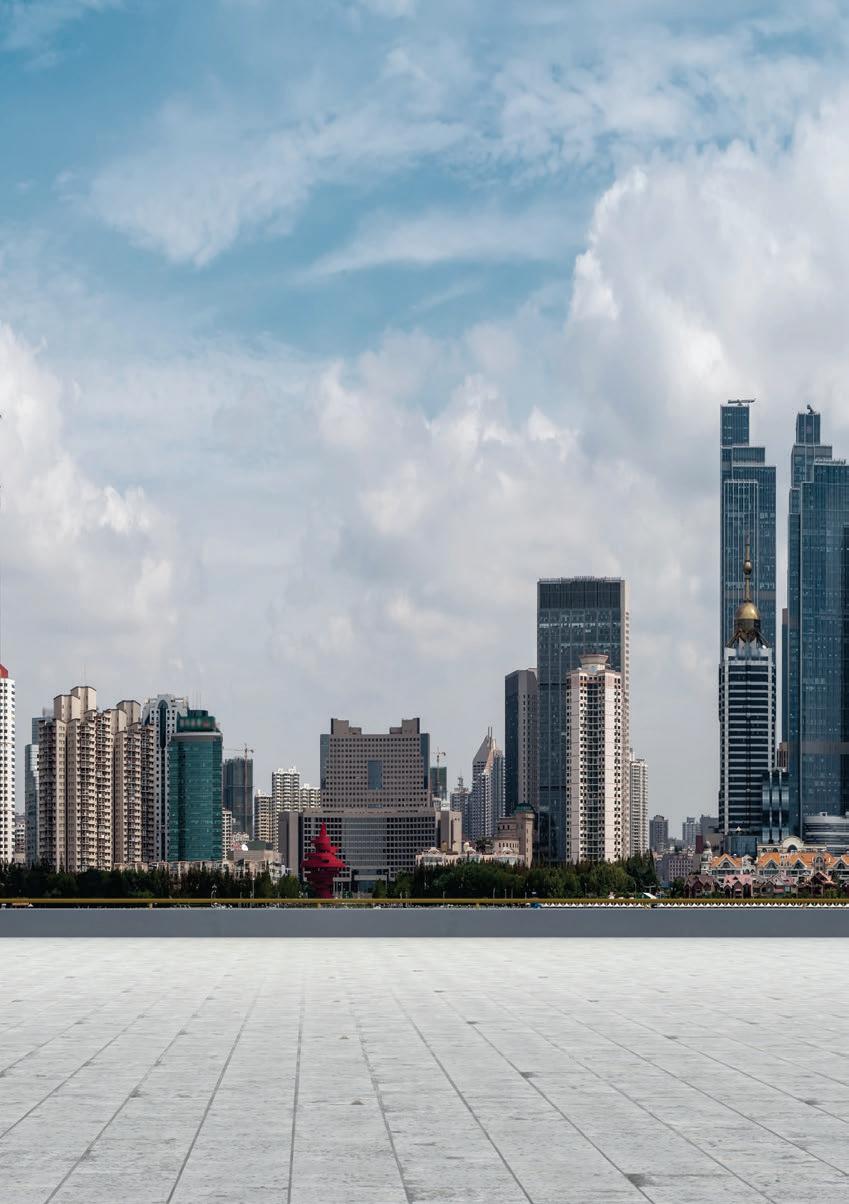
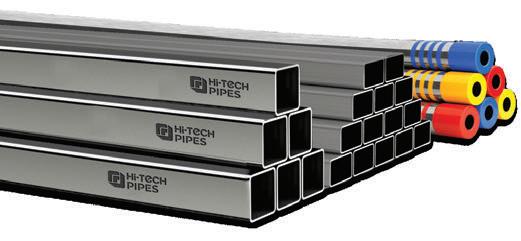




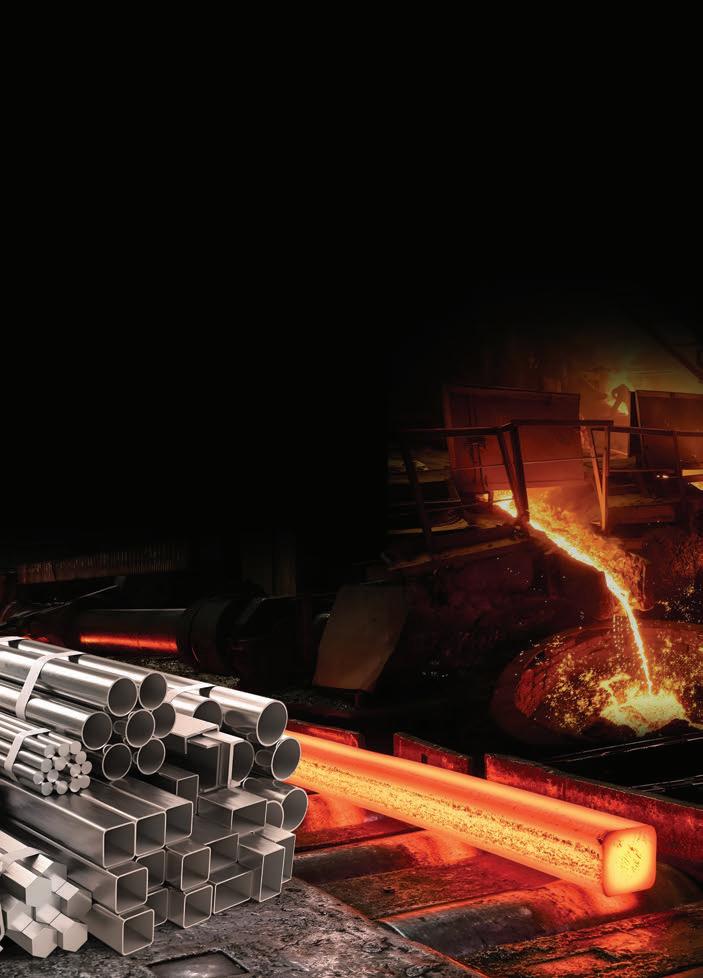
India’s steel sector stands at a decisive moment, balancing the pressure of global competition with the momentum of domestic demand and policy support. As producers expand capacity and shift toward green technologies, the sector is positioned to redefine India’s industrial trajectory.
In 2025, India’s steel industry stands at a defining inflection point. Prime Minister Narendra Modi, addressing the India Steel 2025 program in Mumbai, emphasized, “Our steel sector has to be ready for new processes, new grades and new scale.” This vision transcends rhetoric. It signals a profound structural evolution—a shift not merely in output but in essential character. From volume-centric to valueconscious, from bulk production to purpose-driven manufacturing, Indian steel undergoes a reinvention that mirrors the aspirations of a modernizing economy.
This evolution unfolds across multiple dimensions: the advancement of highend alloy and engineering steel, the expansion of flat and coated products to meet infrastructure requirements, the growth of pipes, tubes and hollow sections for energy and water sectors, and the emergence of stainless steel as an integral component of lifestyle, transport and healthcare solutions. This product diversity serves multiple strategic functions. It shields the industry from cyclical downturns, integrates it with global supply chains, and ensures the steel sector propels rather than constrains India’s broader industrial ambitions.
Scaling Up for a $5 Trillion Economy
India’s crude steel production capacity has reached 205 million tonnes (MT) in FY25, marking a 10% increase from the previous year. Its crude steel production totaled 151.1 MT in fiscal year 2024–25. March alone saw production of 13.8 MT, reflecting 7% year-over-year growth. The National Steel Policy (NSP) 2017 targets 300 MT by 2030. This ambitious goal rests on large-scale infrastructure projects, urban housing initiatives, smart city missions, and the comprehensive $1.3 trillion National Infrastructure Pipeline.
Kamdhenu Limited, a major player in TMT bars, structural steel, and coated sheet production with over 80 franchise-based manufacturing units across India, exemplifies how
decentralized growth is shaping the domestic steel landscape. “India plays a pivotal role in the global steel industry both as a major consumer and producer of steel,” says Sunil Kumar Agarwal, Director, Kamdhenu Limited. “It is the second-largest producer of crude steel, has abundant iron ore reserves, and is a net exporter of steel.”
This growth extends beyond a few prominent companies or regions. It represents a nationwide phenomenon. Greenfield capacities emerge in eastern and central India, leveraging proximity to raw material reserves.
Concurrently, brownfield expansions in western and southern India aim to serve export markets through coastal integration. The sector’s geographic diversification brings economic opportunity to underserved regions while generating multiplier effects in cement, power, transport, and capital equipment industries.
Simultaneously, demand is no longer just infrastructure-driven. With the government promoting electric mobility, renewable energy, and electronics manufacturing, steel enters new domains—from battery casings and wind turbine towers to
electric vehicle platforms and solar panel frames. Each application requires not just increased steel volume but more specialized, highperformance variants.
Moreover, India’s per capita steel consumption, under 80 kg currently, is far below the global average of 230 kg. This gap represents substantial untapped potential, particularly as rising incomes, housing demand, and rural connectivity drive consumption deeper into tier-2 and tier-3 markets. In this context, capacity expansion constitutes strategic preparation rather than speculation.
From Make in India to Green Steel
The central government’s policy initiatives provide robust support. From Production-Linked Incentive (PLI) schemes to the National Manufacturing Mission and the PMGati Shakti Master Plan, India aligns logistics, mining and manufacturing to foster steel-intensive development. The government has also mandated the use of ‘Made in India’ steel in public projects.
Highlighting the sector’s wideranging impact, Prime Minister Modi remarked, “Whether it is skyscrapers, shipping, highways, high-speed rail, smart cities, or industrial corridors, steel is the strength behind every success story.”
Government programs function not as top-down directives but as enabling frameworks. The PM-Gati Shakti plan integrates over 16 ministries to facilitate logistics-driven growth. This ensures timely availability of raw materials like iron ore and coking coal while enabling finished products to reach markets efficiently. For an industry as weight- and cost-sensitive as steel, these backend efficiencies deliver competitive advantages.
Simultaneously, the Make in India mandate extends beyond symbolism. It drives demand across all categories—from TMT bars in rural roads to stainless steel in metro railcars, from precision tubes in auto components to DI pipes in drinking
water projects. Even small-scale producers of long and structural steel benefit as government projects extend to the district level.
Importantly, these policies advance beyond capacity creation to foster technological innovation. Incentives linked to emission norms, scrap recycling, and value-added
Company Capacity (MTPA)
manufacturing have encouraged the development of forwardlooking ecosystems around steel clusters. Industrial parks dedicated to foundries, forging units, and pipe processing centers indicate a maturing industrial geography, where scale and specialization increasingly coexist.
Import Surge, Raw Material Risks, and Global Trade
Despite momentum, the industry is facing difficulties. India became a net importer of steel in FY25, with imports reaching a nine-year high of 9.5 MT. Most of these came from China and South Korea, putting pressure on domestic producers.
“The country primarily meets its demand for coking coal through imports, exposing the steel industry to global supply chain risks and price fluctuations,” Agarwal noted.
Moreover, Europe’s Carbon Border Adjustment Mechanism (CBAM), set to start taxing high-carbon imports by 2026, poses a challenge for India’s largely coal-dependent steel production.
What makes these challenges acute is their asymmetry. Global producers, especially those with energy subsidies or surplus capacity, can afford to
dump products in markets like India. This affects not only primary integrated steelmakers but also smaller players in coated, flat, and pipe segments, who find it hard to compete on price. Meanwhile, dependence on imported coking coal means any geopolitical or logistical disruption, like the Russia-Ukraine war or Red Sea blockades, has a ripple effect across the value chain.
CBAM specifically serves as an urgent signal. It does not merely penalize emissions—it reconfigures global trade based on carbon intensity. Indian producers, many still relying on blast furnace technology, must accelerate their decarbonization strategies or risk losing access to lucrative European markets. The emerging frontier involves green premiums—where global buyers pay premium prices for low-carbon steel, benefiting only those who’ve invested in decarbonization.

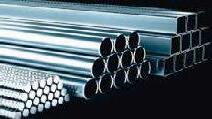

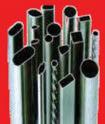
hydrogen plant for green steel. Tata Steel continues integrating sustainability measures into its production processes.
Notably, capacity expansion extends beyond primary steel to encompass all segments. Producers invest in hot-dip galvanizing lines, cold rolling mills, ERW and seamless pipe manufacturing, alloy steel melting shops, and forging facilities. This reflects the industry’s recognition that future competitiveness depends on product diversity and downstream integration.
India’s steel success story rests on its leading producers. Tata Steel maintains a total installed capacity of 35 million tonnes per annum (MTPA) across its global operations, including India, Europe, and Southeast Asia. Within India, the company operates at a capacity of 21.6 MTPA through its major plants in Jamshedpur, Kalinganagar, and Meramandali. As part of its ongoing expansion, Tata Steel is increasing the capacity of its Kalinganagar plant from 3 MTPA to 8 MTPA.
JSW Steel, currently India’s largest steelmaker, commands an installed capacity of 29.5 MTPA and aims to grow this to 38.2 MTPA by FY25 and 51.5 MTPA by 2030. Its flagship Vijayanagar plant alone contributes 12.5 MTPA.
Other major producers include SAIL (Steel Authority of India Ltd), operating five integrated plants with a combined capacity of 21 MTPA; Jindal Steel and Power Ltd (JSPL), which holds a capacity of 9.6 MTPA with a focus on long products; and ArcelorMittal Nippon Steel India, formerly Essar Steel, which runs a 9.6 MTPA plant at Hazira. RINL (Vizag Steel) has a capacity of 7.3 MTPA, while Bhushan Power & Steel Ltd (now part of JSW) plans to expand its current 3.5 MTPA capacity to 5 MTPA. Electrosteel Steels, a Vedanta
subsidiary, contributes 2.5 MTPA, and JSW Ispat Special Products, based in Raigarh, adds another 1.5 MTPA to the national output.
These companies also invest in green steel initiatives. JSW Steel plans to utilize energy from a 3,800-tonne
To counter these pressures, Indian companies are diversifying portfolios and greening their operations.
Mukand Limited, a pioneer in India’s alloy and engineering steel segment
and the country’s first approved supplier of nuclear-grade stainless steel, is focusing on high-end sectors like aerospace and defense while decarbonizing operations. “We have signed a power delivery agreement for the supply of power from renewable sources like solar, wind and hydro. These sources are likely to fulfill approximately 70 percent of our total power needs,” says Neeraj Kant, CEO.
Similarly, Sambhv Steel Tubes, a rising manufacturer of ERW and GI pipes with backward-integrated capabilities and a recent foray into specialty alloy and stainless steel products, is investing in greenfield expansion and renewable energy. “We have developed the capability to produce steel directly from ore... and set up a 25MW captive power plant to optimize our power cost,” says Vikas Goyal, CEO.
Hisar Metal Industries, a veteran coldrolling specialist in precision stainless steel coils, pipes, and tubes with an integrated manufacturing setup, is another example. The company is expanding its exports from 25% to 50% and ramping up its solar energy share from 25% to 60% by next year. “The world has shifted its focus towards India and it’s going to remain so for the next 10 years,” says Karan Dev Tayal, Director.
Welspun Corp, a global leader in line pipes, ductile iron pipes, and specialty stainless steel bars and tubes, is investing INR 2,000 crore across India and Saudi Arabia. Its subsidiary, Welspun Specialty Steel Ltd, has achieved indigenous production of supercritical boiler tubes, aligning with the government’s Make in India and green steel vision. “The company also targets 55% renewable electricity utilisation by 2026 and 100% carbon and water neutrality by 2040,” says Vipul Mathur, MD & CEO of Welspun Corp Limited.
Sustainability: The Green Steel Imperative
Sustainability transcends trendy terminology. Indian steelmakers now align with global ESG norms, particularly as the EU’s CBAM
Stainless Steel & Alloy Steel Producers
approaches. Companies like JSW Steel increase green steel production to comply with emerging regulations. Tata Steel implements sustainability initiatives throughout its production processes. Companies like Welspun target 100% carbon and water neutrality by 2040. Mukand and Sambhv likewise invest in waste heat recovery and solar power.
“Our commitment to sustainability benefits not only the environment but also our customers, employees
and stakeholders,” says Neeraj Kant of Mukand.
The green shift responds to consumer demands as well. Multinational customers request carbon footprint data. Investors demand ESG disclosures. Governments offer incentives for decarbonization. Indian companies that act swiftly stand to avoid penalties and secure first-mover advantages.
“Environmental sustainability is
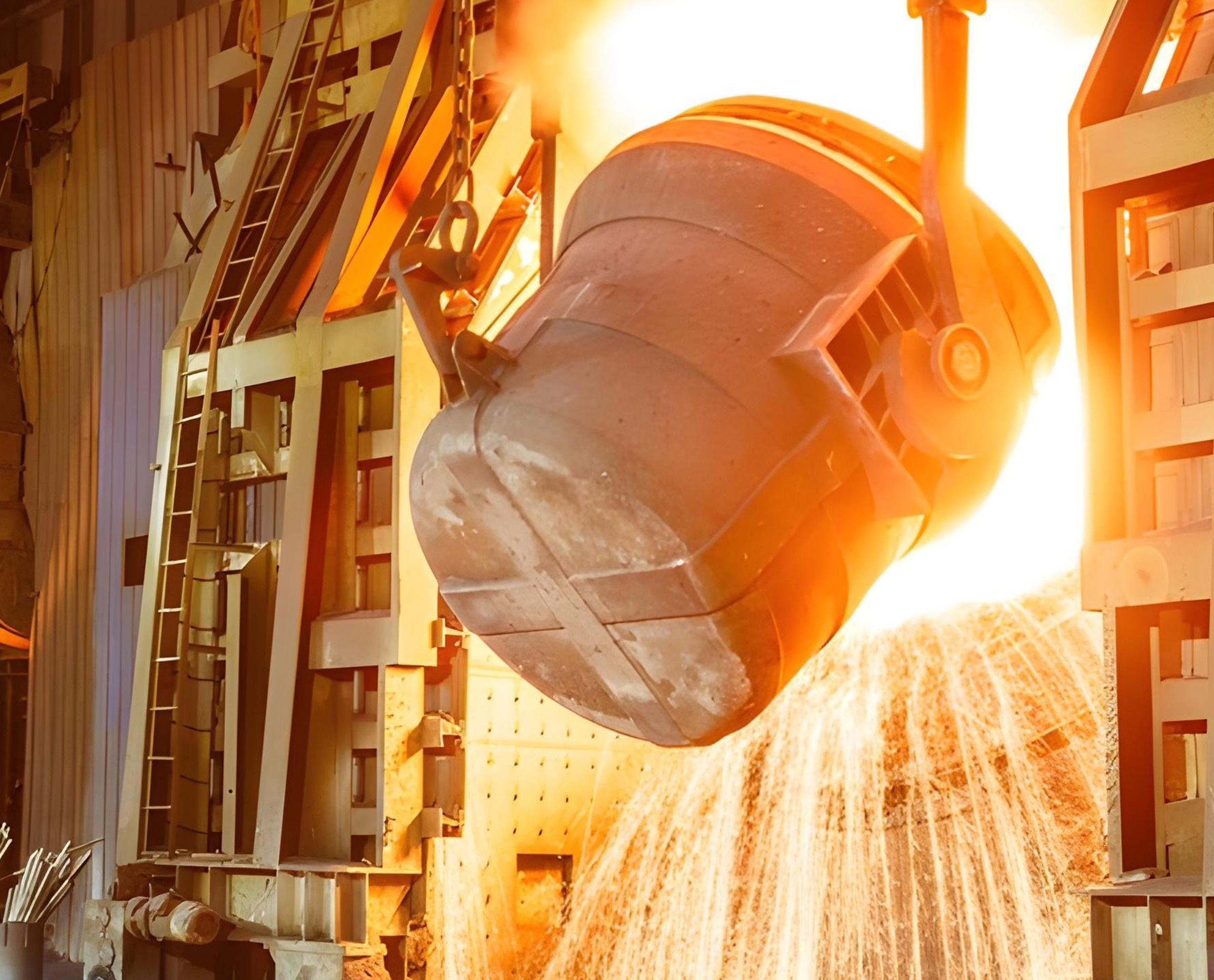
integral to our mission for creating a better and greener world,” says Vipul Mathur of Welspun. “... we envisage a significant shift towards new-age innovations by 2030.”
Government initiatives like the green steel taxonomy and star rating on emissions guide the industry toward greener alternatives. With growing emphasis on circular economy principles, companies explore scrap recycling, carbon capture, and hydrogen-based ironmaking as longterm solutions.
The government has reinforced its commitment to industry
Disclaimer
transformation through the PM-Gati Shakti National Master Plan and the National Manufacturing Mission. “The government policies and the steel industry are playing a crucial role in the development of many other industries in India and making them globally competitive,” Prime Minister Modi noted.
The road to 300 MT of annual production is not without its potholes. Yet, India’s steel industry has shown resilience, driven by demand, policy support, and private sector dynamism.
“More and more steel companies are coming up in the country, fueling the steel sector growth, which will result in a boom in the manufacturing
sector,” says Tayal of Hisar Metal. India’s steel sector must now focus on technological innovation, environmental stewardship, and global competitiveness. The opportunities are immense—from supplying the burgeoning EV and solar sectors to fulfilling infrastructure needs across Asia and Africa.
In Modi’s words: “India is preparing for global leadership... the world now views India as a trusted supplier of high-quality steel.”
And to rise to that challenge, the steel industry must keep forging ahead— with strength, sustainability, and scale.
The company listings and capacity figures presented in this article are not exhaustive and intended solely for informational, segmentation, and reference purposes. The data has been compiled from publicly available sources, including investor presentations, company websites, government filings, industry reports, and credible third-party databases. While every effort has been made to ensure the accuracy of the information, the installed capacities mentioned are only indicative and reflect the most recent verifiable figures available at the time of publication. These capacities may have changed due to ongoing expansions, plant-level modifications, or operational updates that may not yet be in the public domain. The placement of companies within specific product or process categories (such as long products, flat products, specialty steel, or tubes and pipes) is based on their dominant manufacturing focus, but does not imply exclusivity in that segment. In cases where direct confirmation from companies was unavailable, estimates have been made in good faith using historical data and industry insights. We welcome and encourage companies to share updates or corrections to ensure that future editions reflect the most accurate and up-to-date information.
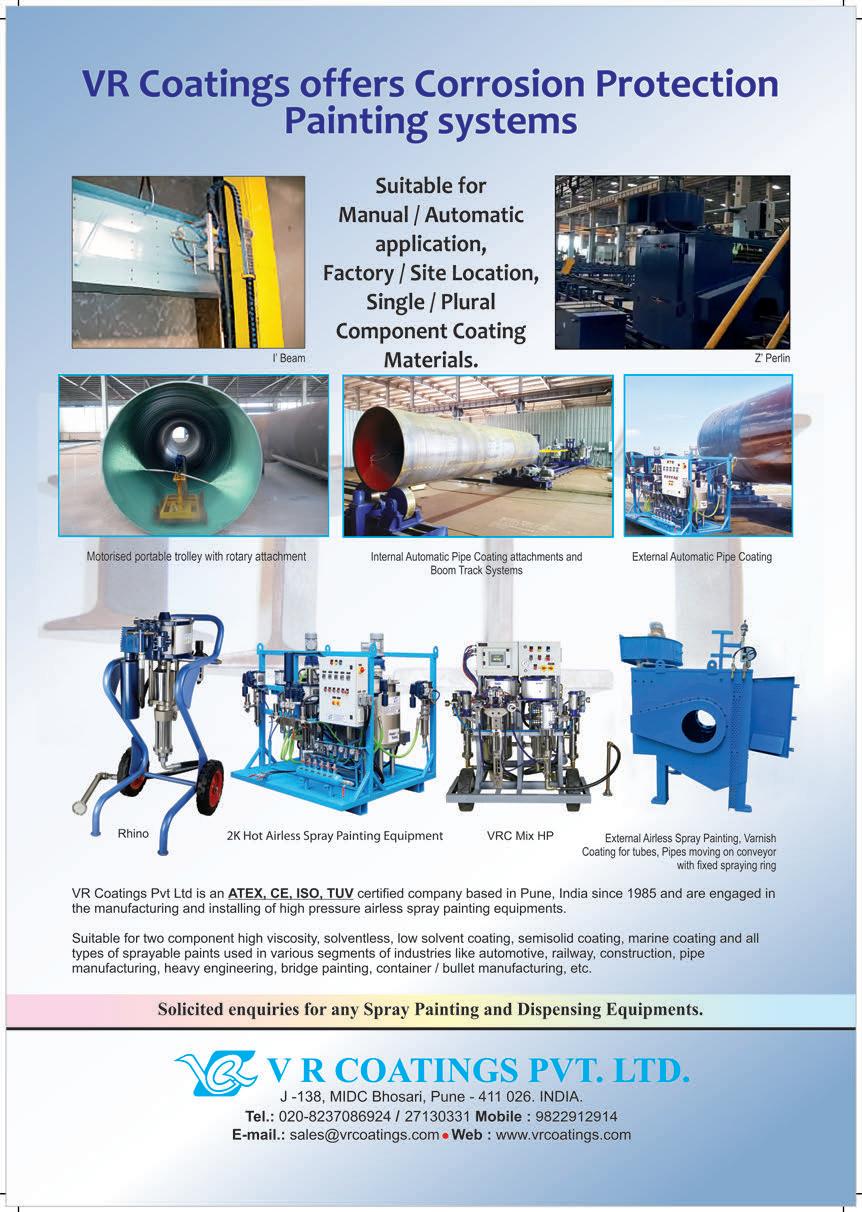
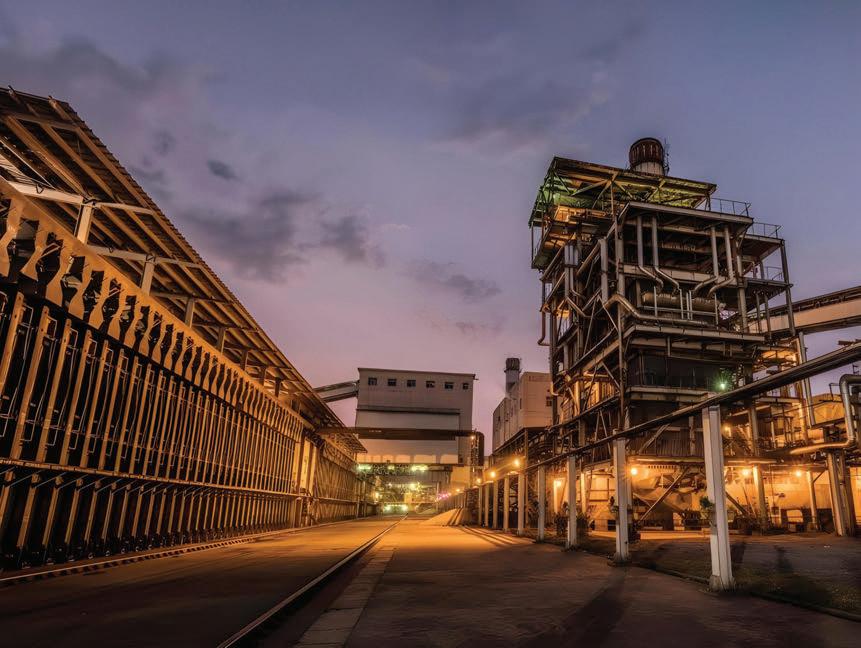

ESL Steel Limited, a subsidiary of Vedanta Limited envisions becoming a benchmark in the Indian steel industry for responsible, ESG-centric manufacturing and technological leadership. While making significant strides in community development through its impactful social initiatives, the company is preparing to venture into production of Green Steel. In an interaction with Tube&PipeIndia , Mr. Ravish Sharma, Dy. CEO & WTD, ESL Steel Ltd. shared that they are well-positioned to grow further and solidify their standing in the steel sector, with a clear focus on customer satisfaction, digital transformation, and a wellthought-out market approach.
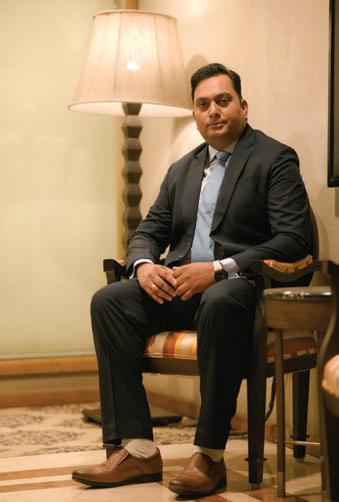
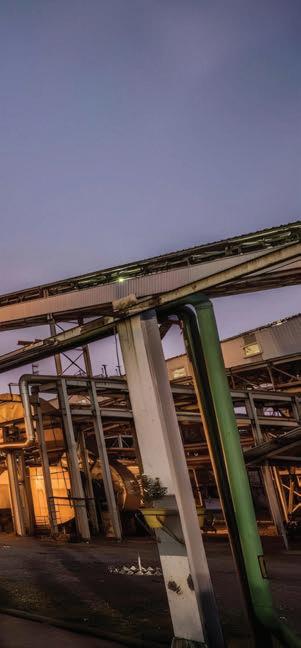
Tube & Pipe India: Kindly share details about your business journey, highlighting major milestones and crucial achievements.
Ravish Sharma: Vedanta Limited is a global diversified company dealing in critical metals and minerals, renewable energy and technology. It is one of the largest mining companies in India, with global mining operations in Australia and Zambia, and oil and gas operations in three countries. It mainly delves into zinc, lead, silver, oil and gas, iron ore, steel, aluminium, technology, renewable energy and power industries, through its various subsidiaries.
ESL Steel Limited (ESL), a subsidiary of Vedanta Limited, stands as a pivotal player in India’s iron and steel sector, deeply rooted in the heart of Jharkhand. ESL Steel Limited is a state-of-the-art integrated primary steel manufacturer of high-quality
products & steel intermediaries -wire rod (V-WIRRO), TMT rebars (V-XEGA), ductile iron pipe (V-DUCPIPE), billets & pig iron.
The company has got strong footprints and has been supplying its various products in the domestic market across all major sectors thereby facilitating and contributing to the multi-faceted growth of the nation. As a company we have achieved numerous milestones marked by growth, innovation, and purpose. Our Chairman, Mr. Anil Agarwal believes in nation-building, which is enshrined in Vedanta’s core values, mission and vision. From setting new production benchmarks to launching steel-strong initiatives, ESL Steel Limited has consistently shaped the future of steel with unwavering dedication.
Our commitment towards the communities surrounding us, is reaffirmed by the vision of, ‘From Genesis to Legacy’, wherein our community centric initiatives, driven by a growing awareness of social and environmental issues, aim to create positive impacts across various aspects of life, aligning with the broad vision of catering to every stage of life a human undergoes in a lifetime. Here’s a breakdown of how ESL Steel engages in such initiatives that touch upon different stages of life:
• Improving Maternal and Child Health (Beginnings): Through projects like NandGhar, we took a transformative leap dedicated to benefit rural children and women in India. It is a measure undertaken by Vedanta under the Anil Agarwal Foundation Initiative, which conceptualized as state of the art Anganwadis, wherein children under 6 years of age have access to a safe and stimulating environment for their holistic and optimal development through strengthening of early childhood care, nutrition, health and hygiene, and education services. With over 150 Nandghars in Bokaro, Jharkhand, ESL Steel is instrumental in catering to the
early needs of children.
• Education and Holistic Development (Progress): ESL Skill School, with the vision of identifying, nurturing, and training local talent in archery, stands as a beacon of excellence, under Project Prerna. The academy provides a structured training environment for young archers, fostering their growth from grassroots to elite levels, ensuring representation at national level. Ancillary projects like Nirman, Swajal also contribute to community welfare.
• Adulthood and Livelihood (Fulfillment): Jivika project seeks to create sustainable economic and livelihood opportunities for women beneficiaries, fostering self-reliance and increasing household income. Our efforts empowered 2,784 women through Self-Help Groups, fostering financial independence and community leadership. 1,941 youth were trained in industryrelevant skills, achieving an impressive 74.56% job placement rate. The company also supported 500 farmers through enterprise training programs, under the WADI project, resulting in a 100% engagement rate and contributing to increased agricultural productivity.
• Retirement (Legacy): Our Project MACE contributes to healthy ageing and wellness of elderly people, keeping them physically & mentally active, engaging them with different kinds of activities such as physical and online training & learning, events, informative sessions etc. It facilitates healthcare support to elderly people through healthcare camps, special camps, and regular doctor’s visits, in collaboration with Vedanta Cares Field Hospital, under Project Aarogya.
In FY25 alone, we positively impacted over 85,437 lives through initiatives focused on empowerment, skillbuilding, and sustainable livelihoods.
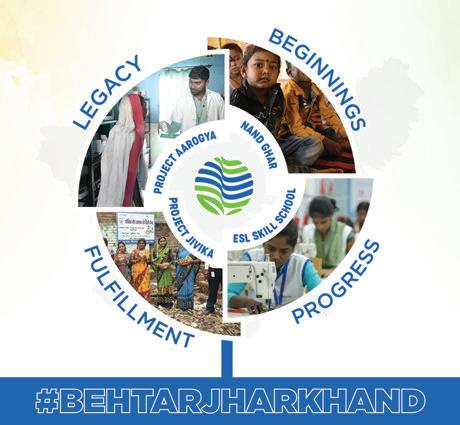
These statistics act as an impetus for us to have an all encompassing range of activities that touch upon various stages of human life, from supporting the health and education of children to promoting sustainable practices for future generations.
Recognized for our dedication to quality, sustainability, and inclusion, we were honoured with the 2025 Happiness & Well-Being Award as one of the Happiest Places to Thrive. Our impactful social initiatives also earned us the Indian CSR Award 2024 for Best Rural Health Care Initiative in the Corporate Category. Furthermore, we achieved several noteworthy milestones, including winning eight Gold Awards at the 31st Chapter Convention on Quality Concepts (CCQC).
On the environmental front, we made significant progress by achieving 100% reutilisation of fly ash and blast furnace slag to reflect our commitment to ensuring a sustainable value chain across all operations. Our dedication to community development was equally strong, with initiatives such as critical road repairs
in our operational areas and Project Wadi, which promotes sustainable agriculture and supports rural livelihoods.
TPI: Please give information about your manufacturing plants and annual production capacity catering to the steel sector.
RS: ESL Steel operates a state-of-theart 1.5 million TPA integrated steel plant located in the Bokaro district of Jharkhand, with 100% production at a single site. This integrated facility includes blast furnace, basic oxygen furnace, coke oven plant, sinter, billet caster, DI pipe plant, rolling mills and power plant. The company is equipped with cutting edge modern machinery for all steel making processes & having its own iron ore mines and coke oven plant, which ensures good quality raw material for its manufacturing processes.
It is also instrumental in driving significant socio-economic growth in the region. The company’s strategic location, with proximity to key resources such as coal and iron ore mines, coupled with dedicated infrastructure, ensures high
operational efficiency.
Additionally, we have implemented numerous advanced technical measures to ensure the production of high-quality steel products. For instance, in our coke ovens, stamp charging technology has been adopted to enhance coke strength. The blast furnace operations are fully computer-controlled, equipped with internal top image cameras, temperature flux profiling, and a ropeless stock measurement system. To optimize productivity and reduce production costs, we have integrated high-temperature stoves, a coal dust injection system, and oxygen enrichment technology. Furthermore, specially designed runners and an online slag granulation system are employed to maximize metal yield, simultaneously reducing our carbon footprint significantly
TPI: Please tell us about your steel-related products basket. Which industries do these products find application in?
RS: At ESL Steel, we manufacture a range of high-quality steel products including TMT bars, Ductile Iron (DI) pipes, wire rods, pig iron, and billets designed to meet the diverse needs of the construction, infrastructure, and industrial sectors.
Our TMT bars are produced through a single process that combines work hardening and heat treatment, resulting in superior performance and durability. These bars offer exceptional corrosion resistance with a specialized rib pattern, high strength, excellent ductility, superior seismic resistance, and fire-retardant properties. They are widely used in individual housing projects, infrastructure development, reinforced structures, bridges, flyovers, dams, and high-rise buildings.
Billets, the second-stage product in steel manufacturing, are semi-finished steel bars used as raw material for producing TMT bars and wire rods. Our billets are cast using a 5-strand caster integrated with a basic oxygen furnace and linked to a blast furnace,
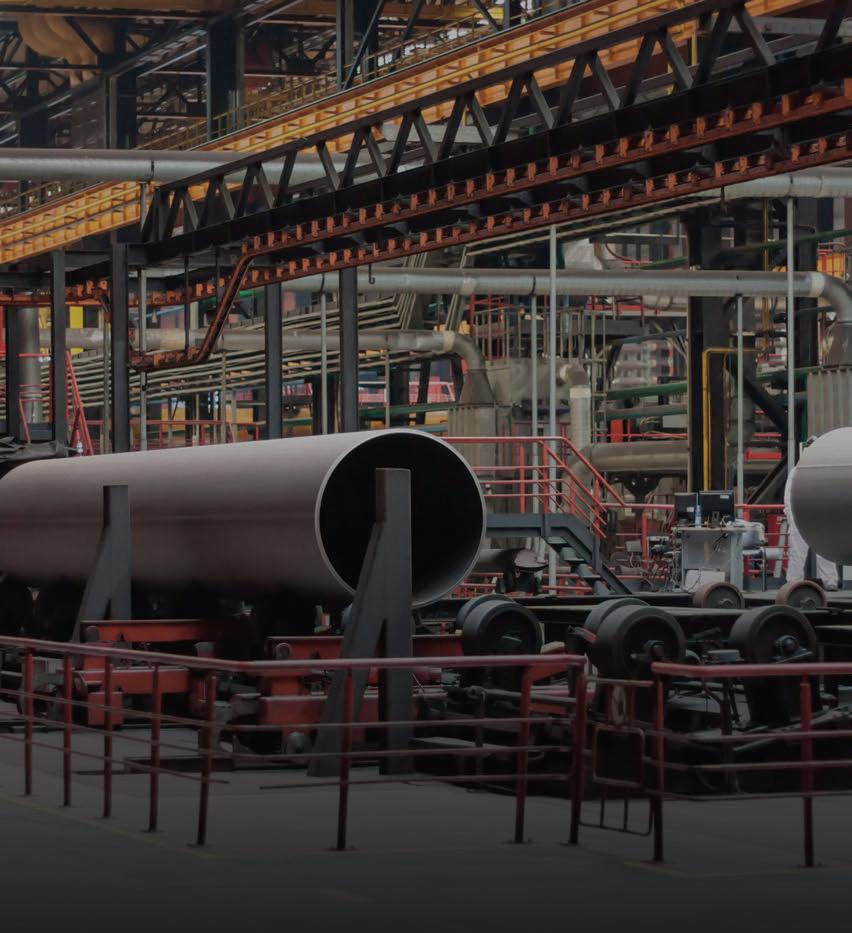
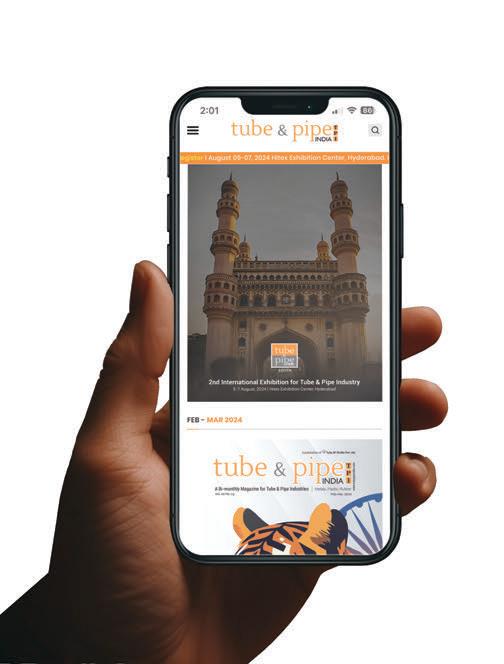


ensuring consistent quality. They are extensively used in towers, power transmission structures, construction, and general engineering applications.
Wire Rods are long, semi-finished steel products produced through the hot rolling of billets. Known for their high dimensional accuracy and excellent thermo-mechanical properties, our wire rods are free from surface defects and benefit from an advanced cooling system that minimizes scale formation. With low phosphorus and sulphur content, they are ideal for manufacturing industrial wires, fasteners, chain and rivet wires, springs, wire mesh, and various automobile components.
Endeavouring for customer empowerment & governance, through the trailblazing Vedanta Metal Bazaar E-Commerce initiative, ESL Steel has ensured to maintain the highest standards of ease of doing business to facilitate a customer-centric approach via end-to-end order lifecycle management.
TPI: What is your USP that sets you apart from others? How do you manage to stay ahead of the curve in the industry?
RS: At ESL Steel, we are committed to delivering best-in-class steel products and services that consistently meet and exceed customer expectations. Our focus on quality is firm, with rigorous standards upheld at every stage of production, powered by international expertise and sustainable solutions from reputed global partners. We are driven by a spirit of continuous innovation, pushing boundaries in both current operations and future endeavours.
At the heart of ESL Steel are our people and the communities we serve. Empowering individuals and fostering a culture where excellence and empathy go hand in hand is central to our mission. We remain dedicated to transforming lives, uplifting communities, and setting benchmarks in operational excellence, sustainability and inclusive growth. What truly sets us apart is Vedanta’s
dynamic culture of empowering young talent. Unlike traditional conglomerates, we promote lifelong learning and encourage continuous upskilling to stay ahead in a rapidly evolving world.
TPI: How are you addressing sustainability and environmental concerns in your production?
RS: As a leader in environmental, social, and governance (ESG) initiatives, we are taking bold steps toward a greener future. Sustainable development has always been a vital spoke of ESL’s Wheel of Goals. Aligned to Vedanta’s seven
organized Sustainability Assurance Programme known as VSAP has been developed to conduct regular analytic assessments. We are committed to sustainability in energy conservation, recycling, proper treatment and disposal of waste, health and safety practices, employee wellbeing and local community development.
In alignment with the government’s progressive regulatory framework and the increasing global demand for sustainable practices, we are preparing to embark on a transformative journey toward the production of Star-Rated green steel.
“ESL operates a state-of-the-art 1.5 million TPA integrated steel plant located in the Bokaro district of Jharkhand, with 100% production at a single site.”
pillars, we continuously strive to enhance our contribution to the global sustainability movement by incorporating pragmatic and environmentally friendly alternatives along with ensuring social and environmental compliance.
Our approach towards sustainability is strategized effectively based on the PDCA (plan–do–check–act) cycle intertwined in the fabric of needbased assessment. Being a responsible IMS-certified organization, ESL Steel executes every project with strict sustainability-centric considerations in line with the updated rules and regulations.
Following Vedanta’s structure, an
In addition to being already categorized as a primary steel producer officially, our forthcoming strategy will focus on innovation, environmental stewardship, and longterm competitiveness in the evolving steel industry. Our future green steel initiative will be anchored on the following key pillars:
• Coke Dry Quenching (CDQ) Technology Deployment: We plan to implement this advanced technology to reduce emissions and boost energy efficiency in our coke-making operations—an essential step toward low-carbon steel production.
• Carbon Capture, Utilization, and Storage (CCUS): We are actively exploring solutions to manage and repurpose CO₂ emissions, contributing to our broader decarbonization objectives.
• Integration of Renewable Energy: Aiming for 70% renewable energy usage by 2030, we will work toward embedding clean energy into our operations as a core component of our sustainability roadmap.
• Green Hydrogen Trials: As we look ahead, trials with green hydrogen—an alternative to fossil fuels—will form a key part of our low-emission energy strategy.
• Decarbonizing Transportation: By 2030, we aim to fully transition our light motor vehicle (LMV)
“We are significantly reducing carbon emissions with the concept of green steel produced for minimal or zero carbon emissions. The EAFs or hydrogen-based technologies are also gaining momentum globally. ”
and implementation of our program.
TPI: Shed light on your recent developments. Where do you see yourself five years down the line?
RS: At ESL Steel, we continue to evolve through innovation, operational excellence, and a strong focus on sustainability and community impact. We have achieved significant milestones across quality, environment, and social development. We received several prestigious accolades, showcasing the dedication, hard work, and collective excellence of the entire team. The company was honoured with the ‘Happy Place to Thrive Award 2023’ by ET HR World, recognized as Best in Large & Gen Y at the W.E. Global Awards, and received the CII Award for Excellence in Women in STEM. ESL Steel also earned a Star-Rated Memento at the ENCON Awards and the ‘Excellence Award for TMT Supply at Samvaad 4.0, presented by the Union Minister of Heavy Industries & Steel.
engagement rate and contributing to increased agricultural productivity. Additionally, 50 young athletes are being groomed to represent at state and national levels.
Over the next five years, we visualise ESL becoming a benchmark in the Indian steel industry for responsible, ESG-centric manufacturing and technological leadership. We aim to expand our capacity, further reduce our carbon footprint, and deepen our engagement with the communities we serve. Our focus will remain on empowering talent, fostering innovation, and delivering value to all stakeholders while contributing meaningfully to India’s infrastructure and economic development journey, thus furthering our Chairman, Mr. Anil Agarwals’s vision of nation building.
TPI: What trends do you see shaping the future of the metal industry?
fleet to low-emission alternatives, contributing to a cleaner logistics footprint.
• Expansion of Gas-Based DRI (Direct Reduced Iron): Looking to the future, we plan to scale up the use of gas-based DRI—a more sustainable and less carbon-intensive method of steel production.
This integrated approach, anchored in the adoption of breakthrough technologies like CDQ and green hydrogen, not only ensures regulatory compliance but also positions us as a leader in the global transition to sustainable steelmaking.
With a group philosophy of ‘Zero Harm, Zero Discharge & Zero Waste’, we have developed the Vedanta sustainability framework with the standards of internationally recognized institutions such as ICMM, IFC, OECS, UNEP etc. Our framework covers four crucial areas; governance, environment, health & safety and social performance. We have also engaged an independent, external consultant for periodic reviews to measure the effectiveness
Furthermore, the company made significant strides in community development through its impactful social initiatives. Over 2,784 women were empowered through Self-Help Groups (SHG), fostering financial independence and community leadership. Simultaneously, 1,941 youth were trained in industryrelevant skills, achieving an impressive 74.56% job placement rate. The company also supported 500 farmers through enterprise training programs, resulting in a 100%
RS: Globally, the metal industry is undergoing a major transformation, influenced by emerging trends focused on sustainability and technological innovation. As India moves towards becoming the third-largest economy, we anticipate a substantial boost in the manufacturing, infrastructure, and engineering sectors. This growth will naturally accelerate demand within the metal and steel industries.
Although, it must be noted that in recent times, there has been

a shift toward more sustainable manufacturing practices. With rising consumer awareness and preference for eco-friendly products, sustainable steel has come to the forefront.
Some of the measures that companies are implementing range from using energy-efficient electric arc furnaces (EAFs), which use electric currents to melt recycled or scrap metal, significantly reducing carbon emissions compared to traditional coal-fired blast furnaces. The concept of green steel produced with minimal or zero carbon emissions, often through EAFs or hydrogenbased technologies is also gaining momentum globally.
Looking ahead, we expect manufacturers to continue integrating transformative technologies, leading to the rise of smart factories that prioritize innovation and environmental responsibility.
TPI: Tell us about your local and international market footprint. How do you plan to enhance your business presence in India as well as at the global level?
RS: ESL Steel has emerged as a key player in the steel industry, offering a wide range of products including TMT bars, wire rods, DI pipes, billets, and pig iron. With a strong foothold across sectors like construction, infrastructure, automotive, engineering, and machinery, the company plays a vital role in nationbuilding and strengthening India’s self-reliance. Given the strong domestic demand and ongoing global uncertainties, ESL Steel has strategically chosen to prioritize the Indian market. This move allows the company to leverage local opportunities and respond effectively to the country’s growing steel needs.
Although exports currently make up less than 2% of its overall business,
ESL Steel continues to maintain a global footprint with targeted exports to regions such as the Indian subcontinent, Europe, the USA, MENA, and JKT. This diversified export strategy enables the company to remain agile amid changing global demand patterns.
At the core of ESL Steel’s operations is a strong customerfirst philosophy. The company’s teams work closely with clients to understand their requirements and deliver customized solutions. This approach is further strengthened by digital advancements like the Vedanta Metal Bazaar portal, an integrated digital platform designed to simplify customer interactions and enhance transparency. With a clear focus on customer satisfaction, digital transformation, and a wellthought-out market approach, we are well-positioned to grow further and solidify our standing in the steel sector.
Apollo Pipes Limited is expecting an enhancement of 41,500 tonnes in its capacity in the next three years through greenfield and brownfield expansions.
Mar 5, 2025
Apollo Pipes Limited, leading manufacturer of PVC pipes and related products in India, has announced plans to increase its capacity from the existing 2.16 lakh tonnes to 2.86 lakh tonnes in the next three years.
Presenting its earnings for Q3 FY’25, the company said it is undertaking brownfield expansion at its Dadri facility to cater to the strong demand in northern parts of the country. This will enhance the current capacity of the facility by 28,500 tonnes.
Apollo Pipes will continue to focus on improving utilization at Dadri, Ahmedabad, Bengaluru and Raipur facilities. The existing capacity of Apollo Pipes’ four facilities stands at 1,56,000 tonnes.
The company will establish plants for the manufacturing of value-added products, such as PVC-O pipes and window & door profiles, at new locations.
The company expects a capacity enhancement of 41,500 tonnes in the next three years through greenfield and brownfield expansions. NEWS
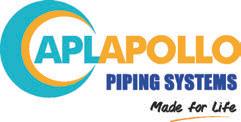
It expects an addition of 11,500 tonnes through these products by FY’26. Applications of the products include water infrastructure and home building material.
Apollo Pipes expects its greenfield plant at Varanasi, having a capacity of 30,000 tonnes, to become operational by FY’26.
Organized by: FOR IMMEDIATE RELEASE
dynamics, and sustainable practices.

New Delhi, India, April 11: The Bharat Metal Expo 2025 (BME25) is set to debut from November 4–6, 2025, at Pragati Maidan, New Delhi. This expo, alongside the Cable & Wire Fair (CWF) and Tube & Pipe Fair (TPF), will be a crucial component of an integrated platform for three key industries. The global demand for steel is surging, driven by rapid infrastructure growth and technological advancements. This massive three-industry mega event will be a one-stop hub for steel manufacturers, suppliers, and traders, boasting over 500 exhibitors, 15,000+ attendees, and a 35,200 sq.m show area.
Where Success is Legacy
The launch of BME follows the remarkable success of its co-located events:
Cable & Wire Fair (CWF): One of Asia’s leading exhibitions for the wire and cable industry, witnessed 350+ exhibitors, 12000+ visitors, and participation from over 20 countries in its previous edition.
Tube & Pipe Fair (TPF): Showcasing cutting-edge innovations and a global exhibitor base, the quickly growing exhibition serves the tube and pipe industry. The August 5-7, 2024 edition saw participation from over 100 brands and attracted more than 5,000 visitors.
BME is strategically positioned to capitalize on increased customer traffic, improved supply chains, and new business opportunities, thanks to its support from CWF & TPF, which brings together the stakeholders of two important steel consumer industries.
Event Highlights
Exhibition and Showcase: Leading brands will display state-of-the-art steel processing, manufacturing, and recycling technologies.
Conferences and Knowledge Sessions: Industry experts will share insights on emerging trends, market
Networking and B2B Meetings: A platform to connect with key decision-makers, investors, and policymakers.
Live Demonstrations: Showcasing cutting-edge machinery, automation, and production innovations.
“India’s steel sector is at a crucial juncture of transformation and growth. Bharat Metal Expo 2025 will be a game-changer, offering a worldclass platform for businesses to connect, showcase innovations, and explore emerging opportunities. Being co-located with two highly successful expos, i.e., CWF and TPF which showcase two of the mega steel consumer industries, no doubt BME is going to be a perfect platform for the Indian steel industry to exhibit its products, processes, and technologies,” said Priyank Jain, CEO, Tulip 3P Media
Why Attend BME25?
• Learn about the latest trends in the steel industry directly.
• Network with key decision-makers, buyers, and suppliers to grow your business.
• Discover breakthroughs in the science of steelmaking.
• Get valuable market knowledge from industry professionals.
• Watch live demos highlighting breakthroughs in steel manufacturing.
Don’t miss this landmark event. Register now to secure your spot at BME25! For exhibitor and sponsorship opportunities, visit: https:// bharatmetalexpo.com/
About the Organizer
Tulip 3P Media Pvt. Ltd. is a leading trade fair organizer and a well-established publisher of highquality industry publications. With a proven track record in launching successful B2B expos, the company is committed to create business growth and knowledge-sharing platforms for various industries.
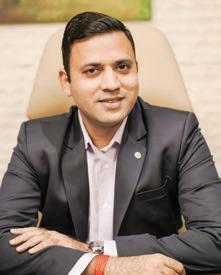
Sambhv Steel Tubes Private Limited, a subsidiary of Sambhv Steel, has acquired land (in Chhattisgarh) for the establishment of a greenfield project. The company has also expanded its product portfolio by manufacturing specialty alloy steel pipes, including Corten steel pipes, and has increased the installed capacities for ERW (Electric Resistance Welded) and GI (Galvanized Iron) pipes to better meet the rising demand from both domestic and international markets. In an exclusive interview with Tube&PipeIndia , Mr. Vikas Goyal, CEO & Managing Director of Sambhv Steel Tubes, shares valuable insights into the company’s recent developments and its ambitious expansion strategies aimed at boosting production capacity across the tube, pipe, and stainless steel segments; driving sustainable growth; enhancing operational excellence and expanding global presence.
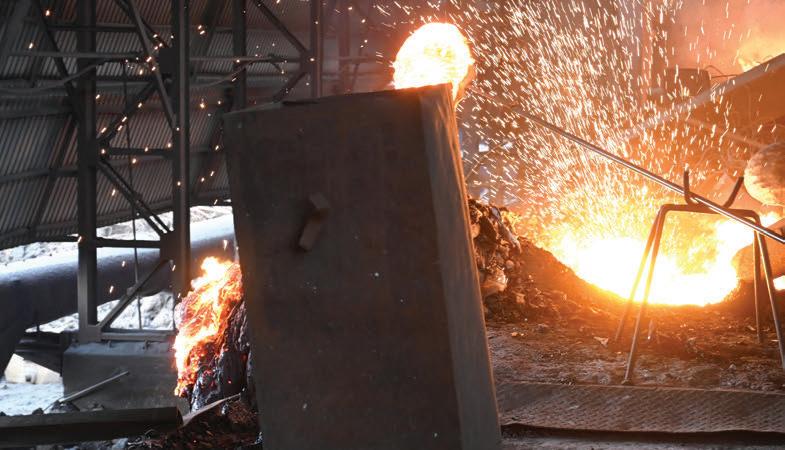
“At Sambhv Steel, we have developed the capability to produce steel directly from ore, and subsequently convert it into our final product, thereby reducing our dependency on the external market and allowing greater control over quality and cost.”
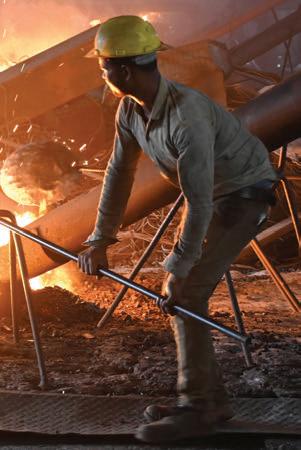
Tube & Pipe India: Please share your views on the Indian vis-a-vis the global steel industry. What is the role of the Indian government in the growth of this sector?
Vikas Goyal: The global steel industry is undergoing a transformation, driven by decarbonization, digitalization, and dynamic trade policies. While developed markets are maturing, India is clearly in a growth phase, both in terms of consumption and capacity creation.
The government’s focus on infrastructure, renewable energy, railways, and electric vehicles is further fuelling demand. Initiatives like PLI schemes and the National Steel Policy 2017 have created an enabling environment for domestic players to scale, integrate, and innovate. India is well-positioned to be a global hub for value-added steel and steel products and governmentindustry collaboration will be the key in realizing this potential.
TPI: What are the major ongoing challenges in the Indian steel industry?
VG: The steel industry is facing few headwinds. Some of them are:
Macroeconomy: With the global economy facing a slowdown, the government and individual spending may slow down as well, affecting demand for steel.
Global demand-supply scenario: Typically, when global demand is high, steel availability in India for domestic consumption gets impacted. The cost of imported raw materials in India, such as iron ore and coking coal can be affected by fluctuations in global demand and supply.
Raw material availability: India is self-sufficient in iron ore, but it has high dependence on imports for coal and scrap. Factors such as regulatory issues, environmental concerns, international trade restrictions and logistical constraints pose challenges to the availability of raw materials. Any disruption in the availability of raw materials
can result in increased production costs, decreased profitability and reduced competitiveness for steel manufacturers.
Raw material prices: Raw materials account for ~70% of production cost in the steelmaking process. Iron ore, coal, melting scrap, etc., are the major raw materials used in steelmaking. Any variation in the prices of these raw materials can significantly affect the margins of steelmaking companies, thereby affecting their competitiveness.
Decarbonisation: With the global steel industry moving towards achieving net-zero emissions from its steelmaking process, major countries are imposing restrictions on the trade of steel that does not meet their decarbonisation standards. The European Union (EU) has introduced the Carbon Border Adjustment Mechanism (CBAM) to support its rising climate ambition, which is expected to impact steel imports into the nation.
Trade restrictions negatively affect India’s steel exports, thereby impacting the overall growth of the industry. Domestic steelmakers are making capital investments to upgrade their facilities to produce green steel, in line with the government’s climate targets and to remain competitive in the market.
TPI: How can these challenges of the industry be addressed? How is your company contributing towards this transition?
VG: Addressing these challenges needs a multi-pronged approach.
Firstly, the steel industry needs to enhance raw material security by adopting backward integration. At Sambhv Steel, we have developed the capability to produce steel directly from ore, and subsequently convert it into our final product such as steel pipes and tubes, and stainless steel coils. This reduces our dependency on the external market and allows greater control over quality and cost.
Secondly, in order to reduce input
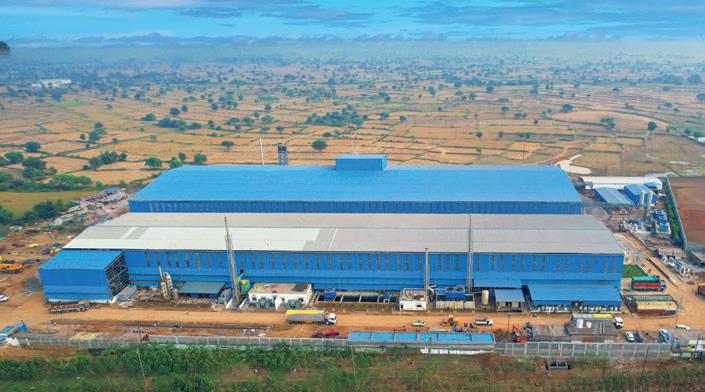
cost, especially power cost, we have to promote captive renewable energy generation. We have set up a 25MW captive power plant to optimize our power cost.
The industry also needs to strengthen logistics and infrastructure by upgrading last-mile connectivity. At Sambhv Steel, we are leveraging our natural geographical advantage. Being located in the central region of India, we enable efficient pan-India distribution and quicker access to key demand centres.
Lastly, the industry must accelerate decarbonisation by offering incentives on green steel adoption, and encouraging R&D for energy efficient processes. We, at Sambhv Steel, have invested in sustainable energy practices like installing a 16MW captive power plant from renewable source and Waste Heat Recovery Boiler (WHRB), reducing our environmental footprint
TPI: Can you tell us about the recent developments at your organization?
VG: Over the past 12 months, we have achieved significant milestones that have expanded our production capacities, and broadened our product portfolio. We have increased our installed capacity of ERW and GI pipes to increase our ability to meet rising domestic and international demand. We have also expanded the production capacities of our intermediate products, including
captive power generation, striving to achieve greater self-reliance.
We have manufactured specialty alloy steel pipes, such as corten steel pipes to further diversify our product offerings, and have also introduced value-added products like pre-galvanized (GP) coils and pipes which are widely used across diverse industries particularly in coastal regions.
Further, we have also entered into the stainless steel segment with integrated production of stainless steel flat products.
Our subsidiary, Sambhv Steel Tubes Private Limited has acquired land, where we are planning to commission a greenfield project, with one of the critical machinery (HR Mill) already procured and in process of being imported. We are also proud to have been officially certified as a Great Place to Work® in 2025.
TPI: Brief us about your specialized steel products along with their USPs. Where do your products find their applications? VG: We specialize in manufacturing ERW steel pipes and tubes and stainless steel coils offering a range of size, thicknesses, and value added options tailored to customer needs.
Our USPs include end-to-end customization, quick turnaround time, strategic geographic location, advanced galvanizing unit, specialized alloy steel capabilities, and captive
and sustainable power infrastructure.
With control over the end-to-end supply chain, we offer customization in terms of size and thickness striving to ensure that each product aligns with our customer’s requirement. Further, our backward integration strategy minimizes reliance on external markets for raw materials (such as HR coils), and provides our company with the ability to fulfil orders in faster lead times. Situated in the central part of India, we are able to achieve logistics and supply chain efficiency, enabling timely delivery across diverse markets.
We have set up a galvanizing line based on advanced technology ensuring superior coating quality with less consumption of Zinc. We also manufacture alloy steel pipes, including Corten steel pipes which expand our product basket to meet industry specific needs. Lastly, our captive power plant that includes a Waste Heat Recovery Boiler (WHRB) system enables us to conserve energy as no fuel is required for power generation.
Our steel pipes, tubes including GP pipes and stainless steel coils are integral to a wide range of critical sectors. Key application areas include architecture, building, and construction which include modern building frames, pre-fabricated buildings, purlins, fencing, handrails and industrial and manufacturing applications. Further, these products
are used in automobiles, railways, and transport (ART).
Steel pipes and tubes are also solar energy sector products, where they are utilized in the fabrication of module mounting structures for solar panels.
The urban infrastructure such as airports, telecom towers, transmission poles, signage and display structures etc. and the general engineering such as the construction of HVAC systems, fire safety systems, electrical panels, cable trays etc also use steel products. Lastly and most importantly agriculture uses steel pipes and tubes for water pipeline and irrigation systems, and manufacturing of agriculture equipment like tractors, cultivators etc.
TPI: What are your future growth plans or investments aimed at strengthening your market position?
VG: As we look to the future, our focus remains firmly on expanding
capacities, driving sustainable growth, enhancing operational excellence and expanding our global presence.
Our strategic priorities include capacity expansion of our pipes and tube segment with backward integration, as well as our stainless steel segment from our greenfield project. In addition to it, we also plan to increase our international footprint, and focus on renewable energy sources including solar power which will further reduce greenhouse gas emissions and carbon dioxide emissions, thereby reducing our power costs and enhancing operational sustainability.
Our integrated approach to capacity expansion, global outreach, and sustainable energy adoption positions us for long-term growth, improved operational efficiency, and a reduced environmental footprint—reinforcing our commitment to responsible and future-ready business practices.
SAMBHV STEEL TUBES LIMITED is proposing, subject to, receipt of requisite approvals, market conditions and other considerations, to undertake an initial public offer of its Equity Shares and has filed the draft red herring prospectus dated September 30, 2024 and the corrigendum dated November 28, 2024 (“DRHP”) with the Securities and Exchange Board of India (“SEBI”), BSE Limited and National Stock Exchange of India Limited. Any potential investor should note that investment in equity shares involves a high degree of risk and for details relating to such risk, please see the section entitled “Risk Factors” of the red herring prospectus, when filed. Potential investors should not rely on the DRHP for making any investment decisions.
For the preparation of the report, CRISIL MI&A has relied on third party data and information obtained from sources which in its opinion are considered reliable. Any forward-looking statements contained in the report are based on certain assumptions, which in its opinion are true as on the date of the report and could fluctuate due to changes in factors underlying such assumptions or events that cannot be reasonably foreseen. The report does not consist of any investment advice and nothing contained in the report should be construed as a recommendation to invest/disinvest in any entity. The industry report is prepared for use in the Offer Documents to be filed by the Company with the RoC, SEBI and the Stock Exchanges in India.
Man Industries (India) Limited plans to complete its INR 650 crore pipe manufacturing expansion facility in Damman, Saudi Arabia, in the FY 2025-26, and will be investing a fresh capex of INR 500 crore to complete the plants that will be operational by OctoberNovember.
May 03, 2025
Man Industries (India) Limited is set to complete its pipe manufacturing expansion facility worth INR 650 crore in Damman, Saudi Arabia, in the FY 2025-26. For this, the company plans to invest a fresh capex of INR 500 crore to make the plant operational by OctoberNovember.
Justifying its plan to have a facility in Saudi Arabia, Mr. Nikhil Mansukhani, MD of Man Industries said the country is levying a 20% duty on imports, on top of the freight cost of USD 100-200 per tonne incurred for shipping large diameter pipes. The new facility will help it capitalise on growing demand, ending import duties and cater to growing markets in Europe and America.

Mr. Mansukhani also added that apart from making special-grade pipes for the oil and gas sector and the transportation of water, Man Industries is also entering the manufacturing of special-grade pipes for hydrogen transportation. These pipes have already been tested and certified in Italy and the company is expecting orders from European countries that are developing a pipeline network for LNG transportation which will later be used for hydrogen distribution.
Vardhman Special Steels Limited (VSSL) plans to increase its rolling mill capacity to 270,000 tonnes by successful commissioning of the Kocks Block and installation of a new reheating furnace in FY26. The company is coming up with an INR 2,000 crore investment for a new 5,00,000 TPA steel plant in Punjab for the manufacturing of special and alloy steel. This was revealed by Ms. Soumya Jain, Executive Director, Vardhman Special Steels Limited in an exclusive interview with Tube&PipeIndia

Ms. Soumya
Jain, Executive Director, Vardhman Special Steels Limited
Tube & Pipe India: Kindly share details about your business journey, highlighting major milestones and crucial achievements.
Soumya Jain: Vardhman Special Steels Limited (VSSL) has undergone a remarkable transformation since its inception in 1973 as Oswal Steels with an initial capacity of 50,000 TPA of special and alloy steels. The company demonstrated early ambitions for growth with the acquisition of Mohta Alloys in 1986, expanding capacity to 1,00,000 TPA. Over the following decades, the company consistently invested in technology and infrastructure, installing a modern steel melting shop with electromagnetic stirrer in 1995 and commissioning a vacuum degassing system in 2000. In 2001, it further diversified its offerings by adding a bright bar facility. A key strategic shift came in 2010, when the company gained an independent identity under the prestigious Vardhman Group, setting the stage for a new era of growth and recognition, including being listed on both the BSE and NSE in 2012.
The 2010s marked a period of aggressive capacity expansion, technology upgrades, and corporate strengthening. In 2013, the company installed a fully automatic rolling mill and advanced testing systems from global leaders. The years that followed saw further infrastructure upgrades, such as the fume extraction system (2015), transformer enhancements (2016), and significant increases in both bright bars and hot rolled capacities. Capital infusions through a rights issue (2017) and a QIP (2018), land acquisitions, and a credit rating upgrade by CRISIL strengthened the company’s financial and operational position.
A landmark collaboration came in 2019 with Japanese specialty steel manufacturer, Aichi Steel Corporation of Japan, bringing in both technical expertise and strategic equity investment, marking a new phase of international alignment. More recently, the partnership with Aichi
Steel Corporation led to the commencement of mass production in 2023 and authorised approvals from Toyota & Maruti, showcasing Vardhman’s readiness to compete on a global scale. VSSL has announced a capex of INR 2,000 crore for a new greenfield steel plant in Punjab for the manufacturing of special and alloy steel.
TPI: Shed light on your recent developments. Where do you see yourself five years down the line?
SJ: We recently commissioned the Kocks Block. It is currently in the stabilization phase. We are planning to install a new reheating furnace in FY26. Once both are fully operational and stabilized, they will enhance our productivity, reduce inventory requirements and increase the rolling mill capacity to 270,000 tonnes from the current 200,000 tonnes. We realise that these incremental additions will suffice only for a couple of years, so we are setting up a state-of-the-art steel plant in Punjab with a planned capacity of 5,00,000 TPA of billet
“More recently, the partnership with Aichi Steel Corporation led to the commencement of mass production in 2023 and authorised approvals from Toyota & Maruti, showcasing Vardhman’s readiness to compete on a global scale.”
production with commensurate rolling mill and testing facilities. All inputs in the plant will be from Aichi Steel. This will make us distinct from others in the industry. We shall be producing Green Steel from this new plant. The company also aims to keep the flexibility in the new unit to diversify into new product segments. The new capacity, expected to be commissioned by FY 2029-30, will reduce the overall cost of steel manufacturing. The project aligns with trends such as the circular economy and green steel, a trend gaining momentum in the Western world that will soon cascade to the Indian shores. Vardhman may look forward to forging business in India. We expect Aichi Steel Corporation to invest more in VSSL.
TPI: Please give information about your manufacturing plants and annual production capacity catering to the steel sector.
SJ: VSSL operates its primary manufacturing facility in Ludhiana, Punjab. We have increased our billet-making operating capacity from 50,000 TPA in 2010 to 3,00,000 TPA in FY25, largely through process improvements and an investment of over INR 150 crore, which is a fraction of what we would have otherwise invested for a brownfield expansion of the same size.
TPI: Please tell us about your steel-related products basket. Which are the industries where these products find application?
SJ: Our products are majorly used for making components having application in the automotive industry. Some of the components made from our steel include axle gears, stabilizer bar, piston, knuckle spindle, connecting rod, camshaft, center velocity joint, crankshaft, differential gears, transmission gear, drive-shaft, tie-rod, bearings, companion-flange, axle shaft, pistonpin, steering-yoke, and steering shaft.
TPI: What is your USP that sets you apart from others? How do you manage to stay ahead of the curve in the industry?
“
Vardhman is among the few steel manufacturers with low carbon intensity with 0.73 tonnes of CO2 per tonne of steel as against about 3 tonnes of CO2 per tonne of steel of peers. ”
SJ: Vardhman is among the few steel manufacturers with low carbon intensity with 0.73 tonnes of CO2 per tonne of steel as against about 3 tonnes of CO2 per tonne of steel of peers. Our partnership with Aichi has enabled us to build an optimal global production system and meet customer requirements. We plan to manufacture Japanese quality steel in India for auto majors in the country as well as for the ASEAN region, while focusing on reduced manufacturing costs through waste elimination. We have the best-in-class R&D facility, which ensures the highest level of quality and compliance.
TPI: Tell us about your local and international market footprint. How do you plan to enhance your business presence in India as well as at the global level?
SJ: We have a strong domestic and international base of 200+ reputed and long-term customers. Our major clients include Toyota, Maruti, Hero Moto Corp, Caterpillar, Hino Motors, Bajaj and Hyundai. In FY-25, we exported 6 percent of our products in countries such as Thailand, Taiwan, Turkey, Russia, Germany and Spain. Our collaboration with Aichi Steel Corporation will increase this
percentage in future.
TPI: How are you addressing sustainability and environmental concerns in your production?
SJ: Vardhman is among the few steel manufacturers with low carbon intensity. By adopting the Electric Arc Furnace (EAF) route for steel making since its inception, we have embedded environment management as our operating platform. The EAF route uses 80 percent ferrous scrap, which shows we are best suited to auto OEs in complying with the Circular Economy norms. We are at 0.73 tonnes of CO2 per tonne of steel against about 3 tonnes of CO2 per tonne of steel for manufacturers using the blast furnace route. We are going a few steps further. We have contracted for setting up a 42 MW AC solar power plant, which will further optimize our carbon footprint to about 0.45 tonnes of CO2 per tonne of steel. Apart from this, we have developed Miyawaki Forest of about 12 acres, which will become a denser forest in the next 2-3 years. It will further reduce our carbon footprint. Also, we have replaced fuel oil with natural gas in all the operations of our plant. We have installed a fume extraction system, which collects dust particles before they are released in air.
TPI: What trends do you see shaping the future of the metal industry?
“ With the right blend of technology, sustainability, and customercentric approach, Vardhman Special Steels will play a leading role in shaping the future.”
SJ: India is fast emerging as a global manufacturing powerhouse. The metal industry is undergoing a transformation driven by technological advancements and a strong global push towards sustainability. Environmental regulations and customer expectations are pushing metal manufacturers to reduce carbon footprints. This includes adopting green steel, electric arc furnaces, and renewable energy in production. The move towards a circular economy is another crucial trend. With raw material scarcity and environmental concerns, metal recycling is gaining prominence. This is encouraging closed-loop systems to reduce waste and reliance on virgin ores.
Supportive government policies, such as PLI schemes and infrastructure initiatives, National Steel Policy, and infrastructure spending are directly aiding the growth of domestic manufacturing and exports. Infrastructure, construction, automotive, and renewable energy projects are driving up demand for steel, aluminium and specialty alloys, particularly in emerging markets like India.
Multinational corporations are de-risking their supply chains by diversifying away from China. India is becoming a key alternative hub for sourcing and manufacturing, boosting domestic capacity and foreign investment in metals and forging. Lastly, as geopolitical tensions and trade dynamics reshape the global landscape, building resilient, localized supply chains has become vital. We are forging long-term partnerships and diversifying our procurement strategies to remain agile and secure. We are investing in energy-efficient processes, waste reduction, and increased use of recycled materials to ensure that we stay ahead of environmental expectations. Overall, we see this as a time of great opportunity. We’re confident that with the right blend of technology, sustainability, and customer-centric approach, Vardhman Special Steels will play a leading role in shaping the future.
Astral Limited has been granted certification by the Bureau of Indian Standards (BIS) for its Oriented Polyvinyl Chloride (OPVC) pipes used for water supply.
Apr 03, 2025
Astral Limited has announced that it has been granted a certification by the Bureau of Indian Standards (BIS) for its Oriented Polyvinyl Chloride (OPVC) pipes used for water supply.
The company informed the stock exchange board about the certification that will strengthen Astral’s position in the market and is expected to enhance

product reach and revenue potential going forward. The certification is a significant achievement for Astral, reinforcing its commitment to the quality standards in its OPVC segment.
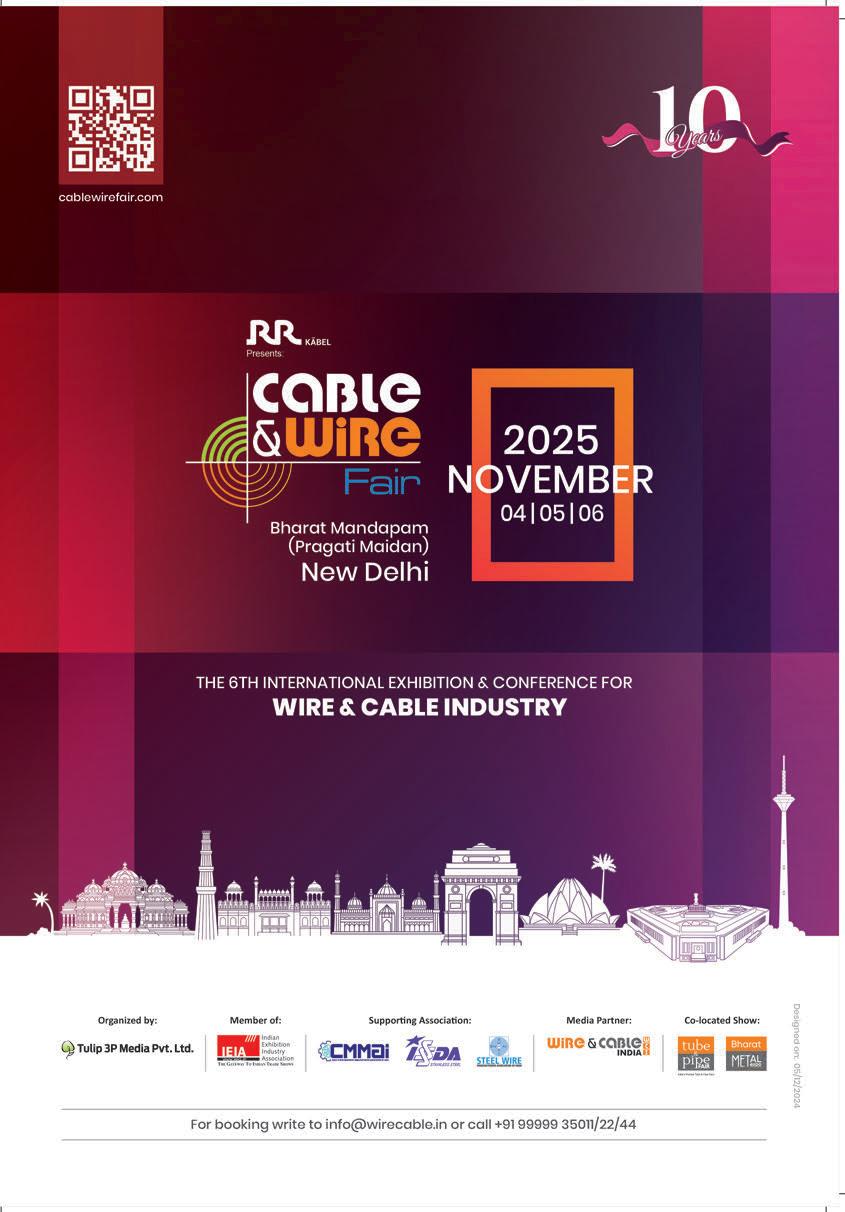

Ratnadeep Metal & Tubes is making significant strides towards the company’s growth through backward integration. In an exclusive interview with Tube&PipeIndia , Mr. Bharat Sanghavi, Managing Director & CEO of Ratnadeep Metal & Tubes, and Mr. Jaimik Sanghavi, Director of the company, discuss the company’s plans to produce raw materials inhouse. With this strategic move, Ratnadeep Metal & Tubes aims to boost its production capacity to 15,000 metric tonnes per annum from 12,000 tonnes per annum within the year.
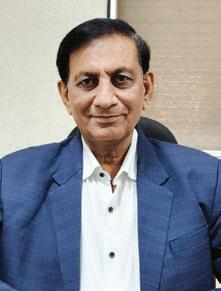
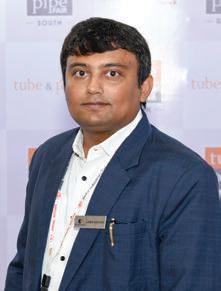
Tube & Pipe India: How do you view the Indian steel industry in comparison to the global market? Bharat Sanghavi: We see robust growth in the Indian steel industry and expect the domestic steel consumption to grow at a healthy rate of 9-10 percent in FY2025. For the past three years, the steel industry has witnessed one of the fastest growth periods since the global financial crisis of 2020, following the pandemic. In FY24, the industry registered a consumption growth of more than 13 percent, giving a positive outlook to the industry.
Jaimik Sanghavi: In recent years, the steel industry has witnessed remarkable growth. If you look at the government data, the performance of the Indian steel sector during April-June FY25 (Q1:FY25) surpassed the levels for this period in any fiscal year. The crude steel production reached 36.61 million tonnes, finished steel production was at 35.77 million tonnes, while finished steel consumption reached 35.42 million tonnes. India is set to become a major global player in steel production, showing an upward trajectory
in both crude and finished steel production, as well as in finished steel consumption. The robust demand and expansion in the sector position it for consistent growth in the coming quarters. India, which is currently the world’s second-largest producer of steel, will play a significant role in shaping global steel markets and supporting industrial advancements worldwide.
TPI: How do you see the growth trajectory of the tube and pipe segment? What role does the Indian government play in supporting the growth and development of this sector?
JS: We foresee huge growth in the Indian tube and pipe industry, owing to the government’s increased investment in sectors such as oil & gas, fertilizers, power plants and nuclear energy. However, several policies require immediate attention of the government. For example, certain types of steel are neither melted nor produced in India. We believe the government should recognize the needs of the steel industry and support the production or melting of these specialized steels
domestically. This would reduce our reliance on imports and enable the Indian companies to manufacture special grades like nickel alloys, which hold significant potential in future markets.
TPI: Tell us briefly about your company.
BS: Established in 2004, Ratnadeep Metal & Tubes specializes in the manufacturing of seamless and welded tubes and pipes composed of stainless steel, nickel alloy, duplex and super duplex, titanium, carbon steel and alloy steel. Equipped with modern production facilities, the company has an in-house bright annealing system and testing facility to ensure that every single product is of the highest quality and meets international standards. Ratnadeep Metal & Tubes leverages its strong infrastructure and highly-skilled engineers to create efficient products, building transparency and longterm customer relationships. The company produces tubes and pipes with external diameters ranging from 3.0 mm to 323.9 mm and a wall thickness of 0.5 mm to 15.0 mm. The tube and pipe company has an annual
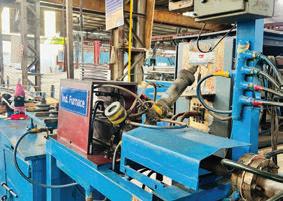
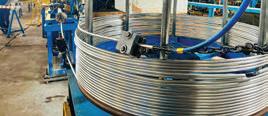
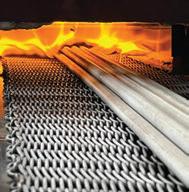
production volume 12,000 metric tonnes.
TPI: Can you mention some of the recent developments in the company?
JS: Our company will significantly expand its manufacturing capacity this year. Our capacity enhancement plans further include technology upgradation and automation of machinery. We are implementing a backward integration strategy to produce raw materials in-house. Currently, our production capacity stands at approximately 12,000 metric tonnes per annum. With these developments, we expect to increase our capacity to 15,000 metric tonnes per annum within the year.
We are proud to be part of Chandrayan – 3 mission by supplying our stainless steel seamless instrumentation tubes for critical application. Recently, we installed two high-speed cold pilger mills to produce tubes from 10 mm OD to 38.10 mm OD. We have also installed a bright annealing furnace with a fast cooling chamber for special alloys materials and for better surface roughness of tubes and pipes.

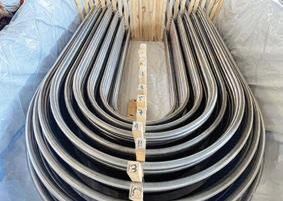
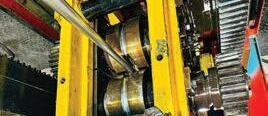

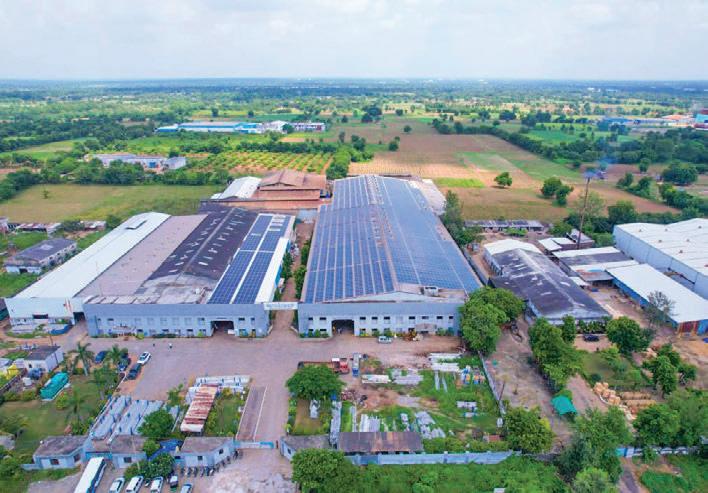
TPI: How do you ensure quality management of your products?
BS: Ratnadeep Metal & Tubes upholds high manufacturing standards by sourcing premium raw materials and implementing rigorous quality control measures. By leveraging advanced technologies and precise quality testing methods, including hydrostatic tests, Eddy Current tests, ultrasonic tests, and various other parameter checks, the company ensures consistent product quality that meets international standards. Its robust quality management system guarantees complete traceability, supported by comprehensive documentation.
TPI: How do you stay ahead of the curve?
JS: Ratnadeep Metal & Tubes caters to a wide range of clients due to inhouse manufacturing & testing of product mix in terms of metallurgy & size range. The founder of Ratnadeep Metal & Tubes, Mr. Bharat S.
Sanghavi, has a rich experience of manufacturing tubes and pipes for over 40 years. We have approvals in all major domestic & international end users, engineering companies & fabrication industry. A very highlyskilled & experienced team of employees has been part of Ratnadeep Metal & Tubes since beginning, which provides seamless solutions to clients. Our consistency on quality and delivery plays a major role in getting repetitive business.
TPI: Can you tell us about your key clientele and market footprint, including your reach in international markets?
JS: Our key domestic clientele include leading organizations such as Bharat Heavy Electricals Limited (BHEL), National Thermal Power Corporation Limited (NTPC), Engineers India Limited (EIL), Bharat Petroleum Corporation Limited (BPCL), Hindustan Petroleum Corporation Limited (HPCL), Reliance Industries Limited (RIL), Indian Oil Corporation
(IOCL), Indian Farmers Fertiliser Cooperative Limited (IFFCO), Larsen & Toubro (L&T), Oil and Natural Gas Corporation (ONGC), Nayara Energy, Chennai Petroleum Corporation Limited (CPCL), Steel Authority of India Limited (SAIL), HPCL Mittal Energy Limited (HMEL), TATA Projects Limited, Gas Authority of India Limited (GAIL), Numaligarh Refinery Limited (NRL), CAIRN, and many more. Additionally, on the international front, we also serve many renowned companies.
TPI: How do you incorporate sustainability into your manufacturing process?
BS: Ratnadeep Metal & Tubes powers its manufacturing operations with sustainable green energy, reducing carbon footprint and promoting environmental responsibility. The company has installed 1229 KVA solar panels at its manufacturing facility to meet its power demands, reinforcing its commitment to a greener future.

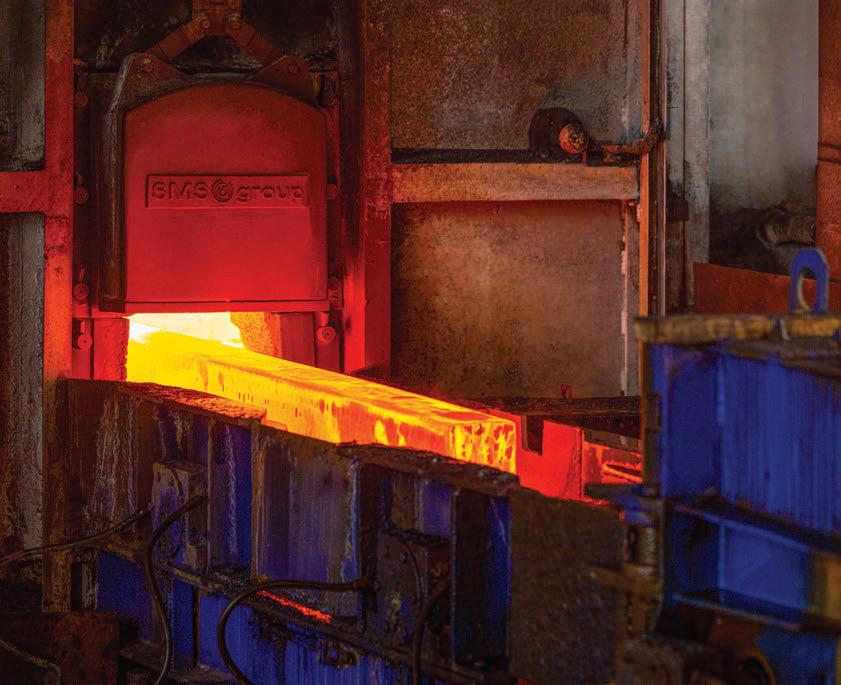
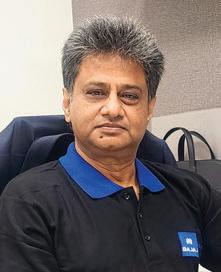
Mukand Limited, comprising two divisions - steel and industrial machinery, is looking forward to contributing and being a part of a greener, smarter and more resilient metal industry through capacity expansion, process automation and digital transformation. Mr. Neeraj Kant, CEO, Mukand Limited, said during an exclusive interview with Tube&PipeIndia that the company aims to explore new markets in high-end applications such as aerospace, defence and precision engineering, while taking steps to reduce its carbon footprint.
Tube & Pipe India: Kindly share details about your business journey, highlighting major milestones and crucial achievements.
Neeraj Kant: Mukand Limited, a Bajaj Group company, is a leading manufacturer of specialty steel long products and heavy machinery in India. Mukand Iron & Steel Works Limited was registered on November 29, 1937 and operated its re-rolling mills and foundry in Lahore and at Reay Road, Bombay. In 1939, two new rolling mills and an electric arc furnace were commissioned at the factory in Lahore. Lala Mukand Lal, who at that time had a controlling interest in the company, expressed his desire to Mahatma Gandhi to wind up the business due to the severe financial crisis. Mahatma Gandhi, in turn, asked Jamnalal Bajaj and Jeewanlal Motichand to take over the company and steer it into the future.
In 1953, the factory was shifted from Reay Road to Kurla. In 1965, the steel plant at Kalwe commenced operations with the commissioning of an electric arc furnace (EAF) and a continuous casting machine, followed by a Swedish wire rod mill in 1966. These
two events heralded the first time in the country that high-carbon steel wire rods were indigenously produced and boosted import substitution.
In 1981, Mukand became the fourth plant in the world to install and commission an eight-stand, highspeed finishing block and an easydraw continuous cooling system. In 2005-06, Mukand became the first steelmaker in India to get approval for use of stainless steel products in manufacturing of critical applications such as nuclear reactor equipment. In 2009-10, the enhanced specialty steelmaking, rolling, heat treatment, pickling, bright drawing, peeling and wire drawing facilities were commissioned.
Today, the company has two divisions - steel and industrial machinery. The steel division manufactures specialty steel long products in the form of wire rods, bars, wires and bright bars that feed into the automobile and engineering industries. The industrial machinery division designs, manufactures, assembles and commissions heavy duty cranes, bulk material handling equipment, process plant machinery and turnkey projects. Mukand produces alloy steel
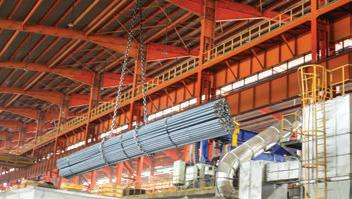
from its facility in Hospet, Karnataka and stainless steel from its facility in Thane, Maharashtra.
Mukand has a long history of firsts and achievements that help us stand apart in a sea of competition, from being the first indigenous stainless steel producer in India, to being the first to use the VOD production process, we are the only company in the country capable of producing nuclear-grade stainless steel for the Kalpakkam nuclear power station. Our track record of success is unparalleled in the Indian steel industry. While these are just a few examples of our commitment to innovation and excellence, we continue to set the standards for quality and performance that the rest of the industry strives to follow to date.
TPI: Please give information about your manufacturing plants and annual production capacity catering to the steel sector. NK: Mukand Limited operates state-of-the-art manufacturing facilities that are equipped with advanced technology to produce stainless steel with a high degree of precision and customization.
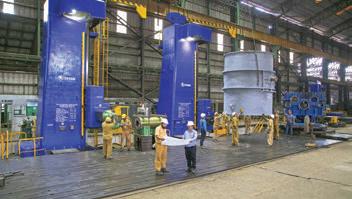
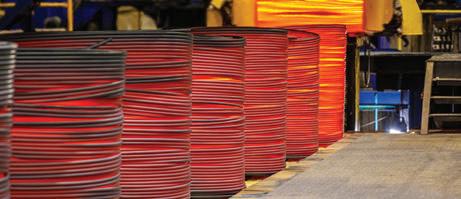
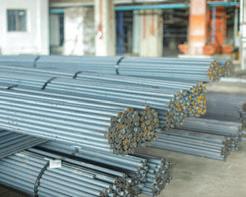
“Mukand
has a long history of firsts and achievements that help us stand apart in a sea of competition, from being the first indigenous stainless steel producer in India, to being the first to use the VOD production process, we are the only company in the country capable of producing nucleargrade stainless steel for the Kalpakkam nuclear power station.”
Mukand Limited has a total installed capacity of approximately 1,80,000+ MTPA for stainless steel, ensuring a steady supply of stainless steel long products to both domestic and international markets. With continuous modernization and sustainable manufacturing practices, our plants ensure superior quality, higher efficiency and adherence to global standards. We are committed to scaling up our capabilities to meet the growing demands of the industry, while maintaining a strong focus on innovation and environmental responsibility.
TPI: Please tell us about your steel-related products basket. Which are the industries where these products find application?
NK: With a rich legacy spanning decades, our company has been at the forefront of supplying highquality alloy and stainless steel products to a diverse range of industries. Our alloy steel finds its niche in the thriving automobile and auto component industry, where it serves as the backbone of several critical components. Our alloy steel is used to manufacture fasteners, bearing transmissions, crankshafts, steering components, suspension springs and fuel injection equipment, including common rail diesel injection systems, braking systems and drive axle components. These products are quite in demand amongst automobile manufacturers due to their exceptional strength, durability and reliability. This robust material empowers vehicles with the performance and safety standards demanded by today’s discerning consumers.
In the realm of stainless steel, Mukand Limited has carved a distinctive space owing to its high-quality products. Our stainless steel products are indispensable in numerous industries, underpinning the very foundation of progress and innovation. The oil and gas sector benefits from the corrosionresistant properties of Mukand’s stainless steel, ensuring the durability and safety of critical infrastructure. Power and nuclear industries rely on our stainless steel products for their high-temperature and highpressure applications, safeguarding the efficient and secure generation of energy. Automotive manufacturers utilize components made from Mukand’s stainless steel to enhance the performance and longevity of their vehicles. In the chemical and pump sectors, our stainless steel’s resistance to corrosion and extreme temperatures makes it an invaluable asset. At Mukand Limited, our unwavering commitment to customer satisfaction is the cornerstone of our success. We cultivate enduring partnerships with our customers, viewing them as integral collaborators in our journey. Our approach extends far beyond mere product transactions; it revolves around crafting holistic
solutions to address their unique challenges and needs.
TPI: What is your USP that sets you apart from others? How do you manage to stay ahead of the curve in the industry?
NK: What truly sets us apart is our commitment to innovation, customization and sustainability. With over 85 years of legacy, we have built a strong reputation as a trusted and reliable steel manufacturer, consistently delivering highperformance alloy and stainless steel products that adhere to the most stringent industry standards.
Our state-of-the-art manufacturing facilities allow us to integrate cutting-edge technology, precision engineering and stringent quality control into our production processes. Our focus on customization and R&D-driven solutions enables us to develop steel products tailored to mission-critical applications, ensuring superior mechanical properties and durability.
To stay ahead of the curve, we continuously invest in advanced research and process improvements to enhance quality and efficiency. Our customer-first approach ensures on-time delivery, quality consistency
“We have signed a power delivery agreement (PDA) for the supply of power from renewable sources like solar, wind and hydro. These sources are likely to fulfill approximately 70 percent of our total power needs.”
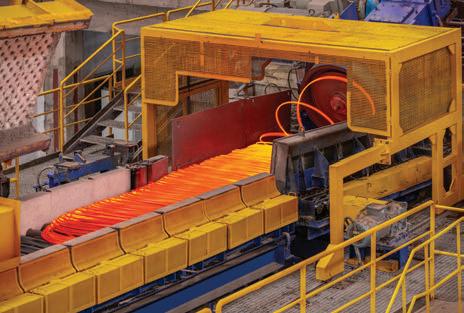
and competitive pricing, making us a preferred choice for industry leaders.
Additionally, sustainability is at the core of our operations - we actively implement green manufacturing practices to minimize environmental impact and reduce emissions.
With our export footprint across more than 25 countries, a commitment to technological advancement and a vision for a sustainable and innovative future, Mukand Limited continues to drive excellence and redefine industry benchmarks in the global steel sector.
TPI: Tell us about your local and international market footprint. How do you plan to enhance your business presence in India as well as at the global level?
NK: Mukand Limited has established a strong footprint both in India and internationally, supplying highquality specialty steel and industrial machinery to diverse industries. Domestically, we serve leading manufacturers in the automotive, railways, defence, aerospace, power and infrastructure sectors, ensuring that our products meet the most stringent industry standards.
On the global front, Mukand exports its products to over 25 countries, catering to clients across Europe, the Middle East and Southeast Asia.
To further expand our market
presence, we are focused on new product development to meet evolving customer needs. We are also leveraging digital transformation, strategic partnerships and sustainable manufacturing practices to enhance efficiency and reduce our environmental footprint.
Additionally, our participation in global exhibitions, industry collaborations and technical advancements ensures that we remain at the forefront of the steel industry, delivering superior quality and value to customers across the globe.
TPI: How are you addressing sustainability and environmental concerns in your production?
NK: At Mukand Limited, sustainability and environmental responsibility are at the core of our operations in the steel industry. We believe that as a leading player in this sector, it is our duty to take proactive steps towards reducing our carbon footprint and embracing green technologies. I’m delighted to share with you some significant initiatives that showcase our commitment to sustainability. We have signed a power delivery agreement (PDA) for the supply of power from renewable sources like solar, wind and hydro. These sources are likely to fulfill approximately 70 percent of our total power needs. In addition to that, through the implementation
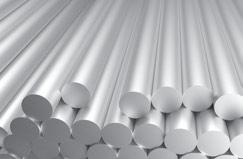

of various energy-saving measures, we have achieved substantial energy savings. We recognize the importance of clean energy sources and these investments align with our goal of reducing environmental impact and supporting sustainable practices. We firmly believe that this commitment benefits not only the environment but also our customers, employees and stakeholders.
TPI: Shed light on your recent developments. Where do you see yourself five years down the line?
NK: At Mukand Limited, we are continuously evolving to meet the demands of a dynamic and competitive market. Our recent developments include successful execution of specialized engineering projects, expansion of our highquality alloy & stainless steel product range, and adoption of advanced manufacturing technologies to enhance efficiency and precision. We have also strengthened our commitment to sustainability by implementing energy-efficient processes and waste reduction initiatives to minimize our environmental impact.
Over the next five years, Mukand aims to further expand its market presence, both domestically and internationally by investing in capacity expansion, process automation and digital transformation. We are committed
to developing innovative steel solutions, strengthening our R&D capabilities and exploring new markets in high-end applications such as aerospace, defence and precision engineering. Our vision is to be at the forefront of the specialty steel and engineering industry, delivering unmatched quality, sustainability and technological excellence, while continuing to contribute to the growth of India’s manufacturing sector and global industrial landscape.
TPI: What trends do you see shaping the future of the metal industry?
NK: The metal industry is undergoing a transformational shift, driven by technological advancements, sustainability initiatives and evolving market demands. Several key trends are shaping its future, such as green & sustainable steel production, advanced alloys & high-performance materials, digitalization & smart manufacturing, electrification & automotive evolution, growing
infrastructure & construction demand, and reshoring & supply chain resilience.
With increasing global emphasis on carbon neutrality, the industry is moving towards low-carbon and hydrogen-based steelmaking technologies. Sustainable practices such as recycling, waste heat recovery and energy-efficient manufacturing are gaining prominence.
The demand for high-strength, corrosion-resistant and lightweight alloys is rising, particularly in automotive, aerospace and defence industries. Advanced metallurgy is enabling the development of stronger yet lighter materials to enhance fuel efficiency and durability. Industry 4.0 is revolutionizing steel production with automation, artificial intelligence (AI), IoT and predictive analytics. These technologies are optimizing process efficiencies, reducing downtime and enhancing quality control.
The rise of electric vehicles (EVs) and lightweight transportation is driving demand for high-grade steel and alloys that support weight reduction and energy efficiency. This shift is reshaping material requirements for the auto sector. Rapid urbanization and industrialization are fueling demand for high-quality structural steel in sectors like construction, renewable energy (wind, solar) and transportation. Global supply chain disruptions have led to a trend of localized production and strategic sourcing, encouraging investments in domestic steelmaking capabilities.
At Mukand Limited, we are aligned with these trends, continuously innovating to deliver sustainable, high-performance steel solutions while integrating digitalization and process efficiency to stay ahead of the curve. The future of the metal industry is undoubtedly greener, smarter and more resilient, and we are excited to be a part of this journey.
Jindal Steel & Power Limited, through its subsidiary Jindal Steel Odisha Limited, has acquired Allied Strips Limited for INR 217.53 crore. The acquisition includes a 100% equity stake in ASL, along with the purchase of convertible debentures and the novation of unsecured intercompany debt.
Apr 3, 2025
Jindal Steel Odisha Limited (JSO), a wholly-owned subsidiary of Jindal Steel & Power Limited (JSPL), has announced the acquisition of Allied Strips Limited (ASL). This marks a strategic move to expand its valueadded product portfolio. With a total cash transaction of INR 217.53 crore, ASL will now operate as a subsidiary of JSPL.
The transaction involves the acquisition of 100% equity in ASL, purchase of optionally convertible debentures issued by ASL. and renewal of unsecured intercompany debt. The company will hold back an amount of INR 50 lakh and will be released after certain conditions are fulfilled.
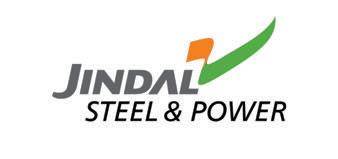
The acquisition aligns with JSPL’s strategy to integrate downstream steel manufacturing and boost production. The steel produced by JSO will be routed to ASL for further processing, thereby improving operational efficiency and expanding the market presence.
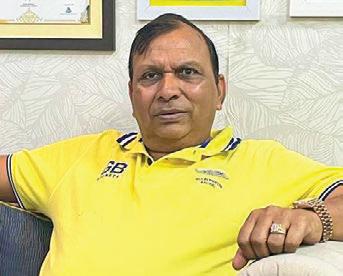
Kamdhenu Limited, a one-stop construction material solutions company engaged in manufacturing and supply of TMT bars, structural steel and colour coated sheets, aims to contribute and become a part of the Indian steel industry’s growth story, owing to its installed capacity of 52.5 lakh MT; brand turnover of more than INR 21,200 crore in retail; and operations over 80 manufacturing units spread across India via our unique franchisee based business model. Mr. Sunil Kumar Agarwal, Director, Kamdhenu Limited, revealed this and much more, during an exclusive interaction with Tube&PipeIndia
Tube & Pipe India: Please share your views on the Indian vis-a-vis the global steel industry. What is the role of the Indian government in the growth of this sector?
Sunil Kumar Agarwal: India plays a pivotal role in the global steel industry both as a major consumer and producer of steel. It is the second-largest producer of crude steel, has abundant iron ore reserves, and a net exporter of steel.
The country is also one of the fastest growing steel consumers in the world, driven by increasing urbanisation and large scale infrastructure development projects. Government initiatives such as the National Steel Policy 2017, the Production-Linked Incentive (PLI) and Make in India have significantly contributed to the growth of the steel industry.
Despite this progress, India’s per capita steel consumption remains below the global average of approximately 230 kg, indicating considerable potential for further growth of the steel sector.
TPI: What are the major ongoing challenges in the Indian steel industry?
SKA: While there are abundant reserves of iron ore deposits in the country, the same is not true for coking coal. The country primarily meets its demand for coking coal through imports, exposing the steel industry to global supply chain risks and price fluctuations.
India produces and exports finished and semi-finished steel products, while importing high-grade steel and specialty alloys. The capacity for the production of high-grade steel products and specialty alloys needs to be ramped up to meet domestic demands and expand the export portfolio.
“Strengthening the steel industry requires a concerted effort by both the government and industry players in terms of enabling policies and investment in advanced technologies and expertise.”
Steel production in India relies heavily on coal. To accelerate the decarbonisation of the industry and align with sustainability goals, there is a strong need for initiatives to adopt greener fuels and more sustainable production methods.
TPI: How can these challenges of the industry be addressed? How is your company contributing towards this transition?
SKA: Strengthening the steel industry requires a concerted effort by both the government and industry players in terms of enabling policies and investment in advanced technologies and expertise. Most steel producers are actively looking at ways to offset their carbon footprint and adopt greener practices in their workflow. Government initiatives like the ‘Taxonomy on green steel’ will also go a long way in pushing adoption of decarbonisation measures among industry players. The initiative defines green steel with parameters for giving star ratings on products based on the amount of carbon dioxide (CO2) emitted during the production process.
TPI: Brief us about your specialized steel products along
with their USPs. Where do your products find applications?
SKA: Kamdhenu NXT is a next generation TMT bar with angular double rib design, manufactured with cutting edge technology at par with the futuristic national and international quality standards. It is best suited for modern architectural patterns and designs meant for newlyengineered structures.
Kamdhenu Limited’s Power Alloy
Steel 10000 (PAS10000), made from an alloy-based steel, is capable of strength up to 10000PSI with concrete and surpasses the current BIS standard. The alloy’s unique Rib design enables a 360 degree locking, giving it the capability to bear 28 percent more weight and enhance earth-quake resistance of the building.
Kamdhenu Colour Max Sheet is an eco-friendly pre-painted product offering a wide spectrum of appealing colors for selection. A unique coating on the multiple layers of high-quality steel alloy enables ‘Kamdhenu Colour Max’ to resist cracking and peeling under extreme weather conditions and construction process.
Kamdhenu also manufactures a variety of structural steel products under franchisee agreement. Highquality angles, channels, beams, flats, round and squares are manufactured at our partner facilities.
TPI: Share with us about your major projects, market footprint and clientele you are catering to.
SKA: Kamdhenu has over 80 manufacturing units spread across India via our unique franchisee based business model with an installed capacity of 52.5 lakh MT. The brand has achieved a turnover of more than INR 21,200 crore in retail with a CAGR growth of 14 percent over the last decade. We are a one-stop construction material
solutions company, engaged in the manufacturing and supply of a variety of products, including but not limited to TMT bars, structural steel, colour coated sheets, etc. Our wide range of products cater to various kinds of structural, aesthetic and luxury requirements in construction.
TPI: What are your future growth plans or investments aimed at strengthening your market position?
SKA: Kamdhenu’s franchisee-based model has allowed faster growth, while the in-house Innovation Centre has ensured that customers have easy access to cost-efficient and high-quality products for their construction needs. A strong focus on training, technical support and continuous improvement to meet customer expectations has enabled us to stay ahead in the industry. The steel industry has room for much more growth, considering the lower than average per-capita steel consumption and we are perfectly poised to partake in this growth. With a strong focus on quality controls, self-reliance and consumer connect, we are excited to be a part of this growth story.
“Kamdhenu’s franchisee-based model has allowed faster growth, while the in-house Innovation Centre has ensured that customers have easy access to costefficient and highquality products for their construction needs.”
Arya Tubes, a division of KnitPro International, specializes in the manufacturing and export of small diameter and thin-walled stainless steel (SS), capillary and welded tubes. Utilizing ASTM-certified stainless-steel grades for product development, the company is catering to a wide range of industrial applications, including thermostatic control instruments, automotive components, home appliances and various other devices. In an exclusive interview with Tube&PipeIndia , Mr. Munish Bhalla, Vice President of Operations at KnitPro International, discusses Arya Tubes’ journey describing how the company is consistently delivering niche products via its standardized manufacturing process, rigorous in-housing testing facility, and quality management system.
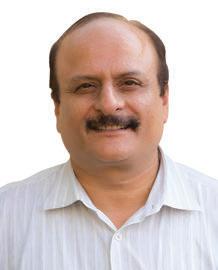
Mr. Munish Bhalla, Vice President of Operations at KnitPro International
Tube & Pipe India: Can you give a brief overview of the company and its background?
Munish Bhalla: Arya Tubes is a unit of KnitPro International. It manufactures, exports, and supplies a broad range of stainless steel (SS) capillary tubes used for various industrial, instrumentation, home appliances and other applications. These tubes are annealed and drawn from In House Tube Welding machines. Crafted using top-grade raw materials, such as ASTM 304, 304L, 316L and 321, these tubes are known for their premium quality, and are thoroughly verified by a highly experienced quality assurance department.
The company serves diverse clients both in the international and domestic market, operating in Delhi-NCR.
The Group started its journey in 1988 by collaborating with a German business house in the field of metal forming and high-quality artist brushes. Next addition was the launch of Makeup Accessories brand Vega in India which is now a household name in India. Knitpro is the third addition which has become the is the world’s largest manufacturer of knitting needles selling products under the brand Knitpro in more than 75 countries.
TPI: Please tell us about your product portfolio and its key applications?
MB: Arya Tubes manufactures stainless steel capillary tubes used primarily for industrial purpose. The company’s product portfolio consists of stainless-steel welded tubes, annealed and drawn tubes in small diameter and thin wall thickness used for making heating element, tubular heater, water geyser, and automobile components. The raw material is totally sourced from India.
Our stainless-steel tube/ pipe product ranges are from 2.00 mm to 25.00 mm in outer diameter, having a thickness ranging from 0.20 mm to 1.00 mm. This versatility enables the products to cater to diverse applications such as capillary thermostats and thermometers, heating elements and heat exchangers, pressure gauges, process control, thermostatic control instruments, industrial instrumentation, water geyser assembly, refrigeration, automobiles components, fuel injection assemblies, food and beverage handling equipment’s, domestic appliances, and chromatography instruments.
TPI: What is Arya Tubes’ USP that sets them apart from their competitors?
“We have established a fully functional in-house quality inspection lab to test and measure the quality of our processes and finished products, thereby ensuring high quality products that complies with the ISO 9001:2015, ISO 14001:2015, ISO 45001:2018 and BIS 17678:2022 regulations, during the production process.”
MB: At Arya Tubes, we are always focused on providing quality tube and pipe solutions in niche areas and import substitutes to reduce our reliance on other countries.
Having a rich experience in working with top companies, our products stand out for their precision engineering and adherence to international quality standards. The company has a state-of-the-art manufacturing unit with advanced machineries, delivering high quality tubes and pipes. The products are known for their durability, leakproof design, high strength, and easy installation, suitable for diverse industries. They come in various sizes and grades, with customization options to meet specific customer requirements.
Our efficient manufacturing process ensures quick access to supplies, minimizing production lead times in a dynamic market. We also efficiently fulfil customer demands for complex configurations and provide final finishes to the products.
TPI: Could you tell us about your quality management system and the in-house testing facilities that you have in place to ensure product reliability and compliance?
MB: Arya Tubes ensures business growth by establishing robust quality management systems and prioritizing customer satisfaction. To achieve this, we undertake effective quality checks and foster continuous improvement in our product development processes across the organization. We have established a fully functional inhouse quality inspection lab to test and measure the quality of our processes and finished products, thereby ensuring quality products that complies with the ISO 9001:2015, ISO 14001:2015, ISO 45001:2018 and BIS 17678:2022 regulations, during the production process.
TPI: How do you ensure environmental initiatives and sustainability in your production process?
MB: We are deeply committed to environmental responsibility and are actively working to reduce our carbon emissions at the corporate level by continually increasing our investment in solar power generation.
By transitioning to renewable energy sources like solar power, we are decreasing our reliance on fossil fuels, significantly reducing greenhouse gas emissions associated with traditional energy consumption and aligning with global efforts to support a cleaner, more sustainable future.
In steel production, we have consciously avoided the pickling process for health, safety and environment concerns. In traditional steel manufacturing, the pickling process is used to remove surface impurities like rust, scale, or oxide layers from steel by immersing it in
strong acids—usually hydrochloric acid (HCl) or sulfuric acid (H₂SO₄).
By consciously avoiding this step, we reduce our environmental footprint, ensure a safer working environment for our employees and eliminate the need for complex waste treatment and acid handling systems, demonstrating our commitment to sustainable and responsible manufacturing.
TPI: What certifications or accreditations does the company possess?
MB: Our products are manufactured using ASTM-certified stainless-steel grades such as 304, 304L, 316L and 321, known for their excellent welding properties and post-weld annealing characteristics.
The company is also ISO 9001:2015, ISO 14001:2015, ISO 45001:2018 and BIS 17678:2022 certified, demonstrating our adherence to strict international standards. This certification applies to rigid stainlesssteel needle tubing suitable for use in the manufacture of hypodermic needles and other medical devices primarily for human use. It specifies the dimensions and mechanical properties of steel tubing of designated metric sizes from 3,4 mm (10 Gauge) to 0,18 mm (34 Gauge). These certifications reflect the company’s commitment to delivering high-quality, consistent, and reliable products.
“We are working to reduce our carbon emissions at the corporate level by continually increasing our investment in solar power generation.”
TPI: What are the current and the future trends shaping the steel industry?
MB: India’s domestic steel demand is projected to grow by 9–10% in FY25, according to ICRA. This robust growth is largely driven by the availability of raw materials like iron ore and a competitive labor market. The steel industry continues to play a crucial role in powering India’s manufacturing, infrastructure, and housing sectors—fueled by rapid urbanization, industrial expansion, and progressive government policies.
The annual steel production is expected to surpass 300 million tonnes by 2030–31, marking a significant leap in the country’s industrial capacity.
With expanding manufacturing opportunities and evolving global market dynamics, the Indian steel industry is on a promising growth trajectory. While the government provides a strong policy framework and infrastructure push, it is equally essential for manufacturers to focus on delivering high-quality, globally
competitive products. Strategic investments in import substitution, technological upgrades, and capacity building will be key to reducing dependency on imports and fostering self-reliance.
Although challenges remain, the long-term outlook of the steel sector is quite optimistic. Through focused execution, innovation, and collaboration between public and private sectors, India is wellpositioned to emerge as a global leader in the steel industry.
Naveen Jindal aims to transform the traditional blast furnaces of Acciaierie d’Italia (ADI), having an annual steel production capacity of around 10 million tonnes, into energyefficient electric arc furnaces, aligning with modern environmental standards.
Feb 10, 2025
Chairman and promoter of Jindal Steel and Power Limited (JSPL), Mr. Naveen Jindal, has submitted a bid of more than USD 1 billion to acquire and rejuvenate Italian steel manufacturer Acciaierie d’Italia (ADI).
Made through Mr. Jindal’s privately-held overseas companies, the bid focused on transforming the traditional blast furnaces of ADI, having an annual steel production capacity of around 10 million tonnes, into energy-efficient electric arc furnaces, aligning with modern environmental standards.
Other bidders include a consortium led by the government of Azerbaijan and Baku Steel, which has pledged natural gas supplies to support ADI’s operations; Bedrock Industries from the US and various Italian industrial groups, some of which have shown interest in specific assets rather than the entire company.
Given its significant role in the nation’s industrial landscape, the government of Italy has been closely monitoring the reorganisation of ADI. The company required substantial capital to offset past losses and upgrade its technology to meet the stringent European environmental regulations.

ADI has been under the administration of the government of Italy since February 2024. It was previously a public-private partnership company being run by ArcelorMittal and Invitalia, Italy’s state development agency. In February 2024, ArcelorMittal announced that ADI had entered extraordinary administration, thus transferring control to government-appointed commissioners.
Those in the know-how of the matter revealed that the bidding process for ADI was expected to conclude within six months, with the Italian government evaluating proposals based on technological innovation, financial viability and commitments to workforce retention.
Hisar Metal Industries, performing end-to-end manufacturing of stainless steel coils, pipes and tubes, plans to increase its exports to 50 percent in the coming years by enhancing its presence in Europe and the US, and increase its overall capacity by 20 percent by the end of the year. The company has recently ventured into the stainless steel water plumbing business, and further aims to enter the household product segment like modular kitchen, stainless steel tanks, or other such products. Mr. Karan Dev Tayal, Director at Hisar Metal Industries Limited revealed this and more during an exclusive chat with Tube&PipeIndia
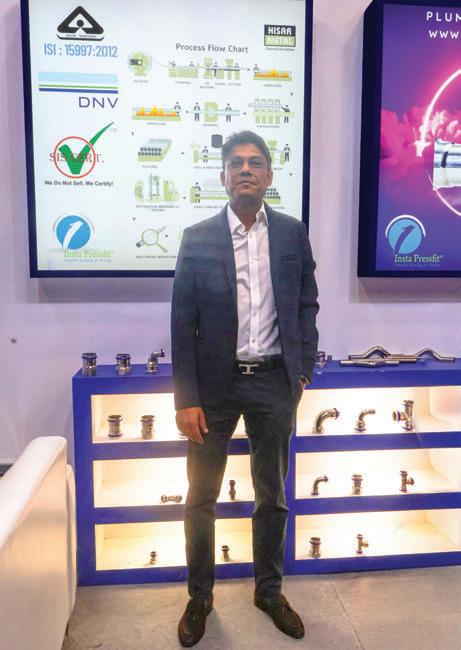
Tube & Pipe India: Please provide a brief overview of your company, including its history, mission and values.
Karan Dev Tayal: Hisar Metal Industries Limited was set up in 1991 to produce high-precision stainless steel coils, pipes and tubes. We are a 35-year-old company and one of the oldest cold rolling manufacturers in the country. Utilizing stateof-the-art-technology and high precision imported machinery, we can manufacture ultra-thin (up to 0.03mm) high precision stainless steel strips with dimensional accuracy, excellent flatness and smooth surface finish. Backed by a dedicated and skilled technical workforce of around 300 people, coupled with a flair to excel in providing services, Hisar Metal Industries is today one of the leading suppliers of high-quality stainless steel strips to the domestic as well as overseas industries. We are the only company in India to have end-to-end manufacturing. We have our own integrated plant, where we manufacture coils, tubes and fittings, and also provide solutions.
TPI: Kindly walk us through your infrastructure setup. What is your annual manufacturing capacity and how do you plan to enhance it?
“We have one of the highest cold rolling capacities in the country. Our cold rolled stainless steel capacity is 4,000 tonnes, while tube capacity is 500 tonnes.”
KDT: We have one of the highest cold rolling capacities in the country. Our plant is located in Hisar, the ‘Stainless Steel City of India,’ in an area of 20 acres. Our cold rolled stainless steel capacity is 4,000 tonnes, while tube capacity is 500 tonnes. We have established a new rolling mill, which will come up by next month. We have also set up some new slitting lines as well as annealing lines to increase our capacity. At the end of the year, we are expecting another 20 percent increase in our overall capacity. On the tube side, we are installing some new machines as well.
TPI: Please tell us about your market footprint. Are you eyeing any particular market?
KDT: We’re currently exporting around 25 percent of our products to various countries, including the US, Mexico, UK, Italy, Germany, and the Middle East. We plan to increase our exports to 50 percent in the coming years. We have offices all over India, as well as in the UK and the US. With all the tariff measures coming in, we
think the US is a lucrative market. We’re focusing on high quality and niche products, and are hopeful of enhancing our presence in Europe as well as the US.
TPI: How do you see the steel industry shaping amid the steel tariff war?
KDT: It’s a very good thing for India. The world has shifted its focus towards India and it’s going to remain so for the next 10 years. We definitely see a lot of collaborations happening in the country soon. There will be a lot of growth in the steel and manufacturing sectors.
TPI: Do you think the Government initiatives will help Indian steel manufacturers?
KDT: The Government has done a great job in the last 5-7 years. More and more steel companies are coming up in the country, fueling the steel sector growth, which will result in a boom in the manufacturing sector. The Government is discouraging cheap Chinese imports with the help of safeguard duties and BIS. We are one of the first companies in India to apply for BIS for tubes, which we are hopeful of getting in a month or two.
TPI: Please tell us more about your partnership with Insta Pressfit®. How did it enhance your brand positioning in the market?
KDT: To evolve is the only way to stand against the fierce onslaught of global competition. We did a joint venture with Insta Pressfit® in 2023 to produce best quality stainless steel pipes at best prices. Hisar Metal Industries in itself is a very big brand in the stainless steel industry, and Insta Pressfit® is known for its high- quality products. It was sort of a natural collaboration, boosting the consumers’ confidence in buying our products.
TPI: What new products or technological advancement do
you plan to introduce in the near future?
KDT: We have recently entered the water plumbing business. We want to give the cleanest and healthiest water to our consumers. It also aligns with our aim to become green and environmentally friendly.
In plumbing tubes, the most important thing is the quality of pipe and welding strength. We’re enhancing our welding capabilities. We’re going for better technology that gives better welding strength to the pipes to increase their life. We are introducing high-end grades for coastal areas and high corrosive environments where the TDS of water is much more.
We would like to request consumers not to look for initial cost but look upon the cost analysis based on lifespan and overall quality of the product. Stainless steel plumbing pipeline is a great solution for
“The world has shifted its focus towards India and it’s going to remain so for the next 10 years. We definitely see a lot of collaborations happening in the country soon.”
households. India is lacking much behind in stainless steel plumbing as compared to the US, Vietnam, China, Taiwan, and Saudi Arabia. In India, people use more plastic plumbing solutions, without realizing its disadvantages.
We’re providing our customers with personalized solutions that benefit them in the long run. We personally visit the site, do all kinds of assessments- including water testing and then recommend solutions to our customers. We believe in long partnerships with our customers.
TPI: What are your future plans for the next five years?
KDT: We have already enhanced our capacities and are looking forward to increasing our exports in the future. We are planning to enter the household product segment. We may go for either modular kitchen
“More and more steel companies are coming up in the country, fueling the steel sector growth, which will result in a boom in the manufacturing sector.”
or stainless-steel tanks, or other consumer products that we can supply at the best possible quality and price.
TPI: How do you incorporate sustainability in your business processes?
KDT: We’re one of the leaders in sustainability. We’ve been doing rainwater harvesting for the last three years. Currently, 25 percent of our power is solar. We are planning to increase it to 60 percent by the end of next year. In the tube unit, 75 percent power is solar.
We are working on sustainable packing solutions. We do not use any plastic in Insta Pressfit® products and plumbing solutions. All our tubes and fittings are made of stainless steel, which is 100 percent recyclable. We are also working with our raw material suppliers for green steel. Sustainability is on top of our priority list.
This year, the company has dispatched 324,000 tonnes of seamless pipes in nine months and will dispatch around 435,000 tonnes of seamless pipes in the entire financial year, which gives a volume growth of around 7 to 8% on a year-on-year basis.
Maharashtra Seamless Limited (MSL) has secured an order worth approximately INR 298 crore for the supply of seamless pipes in the oil and gas sector, as disclosed by the company’s regulatory filing. The order awarded will be implemented through gradual dispatches over the coming quarters as per customer requirements.
As per Kaushal Bengani, Deputy General Manager, last year, the company dispatched around 400,000 tonnes of seamless pipes. This year, the company has dispatched 324,000 tonnes of seamless pipes in nine months and will dispatch around 435,000 tonnes of seamless pipes in the entire financial year, which gives a volume growth of around 7 to 8% on a year-onyear basis. The company will dispatch approximately 500,000 tonnes in 2026-27.
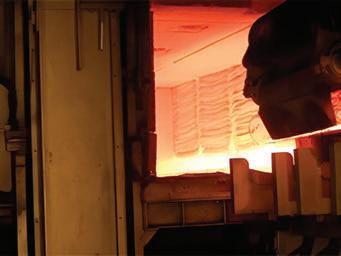
In the October- December 2024 quarter, the company reported revenue of INR 1,408 crore. The total order book as of January 20, 2025, stands at INR 1,674 crore.
Apollo Pipes Limited is set to expand its total production capacity by 70,000 tonnes through its ongoing expansions, including its INR 135 crore greenfield facility in Varanasi that will add 30,000 tonnes to its overall capacity by 2026, along with 11,500 tonnes in infrastructure and home building material. The company also plans a brownfield expansion of 28,500 tonnes, bringing the total capacity to 286,000 tonnes over the next 2–3 years. In an exclusive interaction with Tube&Pipe India , Mr. Dhruv Gupta from Apollo Pipes Limited also shared insights into how it is accelerating its move toward PVC profiles and gas pipelines, particularly for applications in the growing solar power sector and clean energy transmission.

Tube & Pipe India: Please tell us about your PVC pipe segment? What are the products that you have recently introduced in this segment?
Dhruv Gupta: PVC pipes, known for their high pressure applications, are one of the most significant products of our portfolio- which includes a variety of PVC products such as cPVC, uPVC, PVC-O pipe, PTMT taps, fittings, water storage tank and solvent of the highest quality. The products cater to an array of industrial applications such as agriculture, water management, construction, infrastructure, and telecom ducting segments.
Last year, we introduced a new product in this segment, called APL Apollo Ultima PVC-O pipes which can serve as a replacement for DI pipes. Crafted through a revolutionary molecular orientation process, these pipes maintain the inherent advantages of PVC while enhancing their physical and mechanical properties. These pipes are ideal for medium- and high-pressure water networks, and excel in irrigation, potable water supply, fire extinguishing, and pumping systems.
We have also launched two new products in the HDPE pipe segment. PLB duct pipes and PE gas pipes. PLB duct pipes are permanently lubricated duct pipes which are widely used in telecommunications and utility networks, and the PE gas pipes are yellow and orange pipes used for gas transmission purposes.
TPI: Could you walk us through your infrastructure setup and the manufacturing capacities?
DG: Apollo Pipes operates 8 state-of-the-art manufacturing facilities located in Dadri and Sikandrabad (UP), Ahmedabad (Gujarat), Tumkur (Karnataka), and
Raipur (Chhattisgarh), Mahagaon (Maharashtra), Silvasa (Dadar & Nagar Haveli) and Dewas (Madhya Pradesh).
With a robust production capacity of 2,16,000 tonnes, we have successfully established a pan-India presence supported by a strong network of over 1,000 channel partners and more than 10,000 customer touchpoints. Our diverse product portfolio includes over 2,600 SKUs, offering the widest range of solutions currently available in the Indian market.
TPI: Apollo Pipes has increased its stake in Kisan Moulding. What was the strategy behind Apollo Pipe’s decision to increase its stake in the company?
DG: We have acquired 57 percent in Kisan Mouldings with an investment of approximately INR 140 crore, providing a very strong footprint in West India. With a capacity of 60,000 tonnes, the company eyes a potential revenue of INR 750 crore in the next three years. Beyond its strategic value, Kisan Moulding is a well-established, highly recognized brand and one of the oldest brands in the PVC pipe segment in India which helped us expand our Indian presence.
TPI: Can you tell us about your market footprint? Are there any export opportunities for the company?
DG: We are currently expanding our footprint, with a strong focus on northern India, where we have established our largest plant in Dadri, UP, enabling us to supply large quantities of pipes, fittings, and other supplies to our clients in a timely manner. In 2021, we had set up a green field manufacturing facility at Raipur, Chhattisgarh to cater to the central and eastern part of the country.
We are also targeting new markets such as Gujarat and Maharashtra, while working to significantly increase
our overall production capacity.
In 2023-24, we kick-started the establishment of our greenfield facility near Varanasi. With a total capex outlay of INR 135 crore, the new establishment will add 30,000 tonnes to our overall capacity by 2026 and create the company’s pan-India presence.
While we are expanding our domestic presence, our exports are currently limited. However, we are actively
‘‘The Indian PVC pipes and fittings market expected to register 15% CAGR during FY24 - FY27. The domestic plastic pipes industry size is ~ INR 350 billion, and the organized players account for ~70% market share.”
pursuing opportunities to enter the international market.
TPI: What are your company’s USPs in the plastic pipe segment that keeps you ahead of the competition?
DG: There are many players in the plastic pipe segment, but what sets us apart from our competitors is the level at which we operate as an organization. We follow high standards of professionalism in our company, as compared to other organisations. Additionally, we have a significant number of plants and
distribution centers all over India with our distribution network being one of the largest in the building industry.
TPI: Could you give us an overview regarding how the plastic or PVC pipe segment is growing in India as well as globally , and what opportunities do you foresee in the future?
DG: The Indian PVC pipes and fittings market expected to register 15% CAGR during FY24 - FY27. The domestic plastic pipes industry size is ~ INR 350 billion, and the organized players account for ~70% market share.
The key features of the plastic pipes that are driving the growth of these segments include lightweightedness, ease of transportation, and longer life span. Moreover, the government’s push for cleanliness and sanitation to boost the water management sector, increased building of affordable houses and growing housing demand, and the requirement for infrastructure for irrigation and water supplies are further boosting the demands of these segments.
In the coming years, I see significant opportunities in the PPR segment, as it’s being increasingly used in HVAC systems all over the world. Along with that, I see a considerable potential in the PVC profiling business.
I have studied a published article about the shift from aluminium to PVC profiles for solar panels, which presents a big opportunity for the PVC market segment. I think China and the USA are one of the biggest manufacturers of solar panels and would present a substantial opportunity for the PVC players.
TPI: With the ongoing US-China tariff war impacting the steel segment, how do you see the plastic pipe segment poised for growth?
DG: We could see some advantages in raw material prices of the plastic
‘‘In the coming years, I see significant opportunities in the PPR segment, as it’s being increasingly used in HVAC systems all over the world.’’
pipes. If import prices from China fall, as a result of Chinese players trying to be more competitive and use their capacities, it could help manufacturers by lowering the production costs of plastic pipes and improving profit margins. This might also make plastic pipes a more attractive and affordable option in the market.
However, there’s another side to it. A big drop in raw material prices can sometimes signal a broader economic uncertainty and cause a bad market sentiment. If that happens, the overall demand for plastic pipes could slow
down as businesses become more cautious. So, this development could have both positive or negative sides.
TPI: Apollo Pipes has partnered with prominent figures like Mr. Amitabh Bachchan for brand promotions. Moving forward, how do you plan to further enhance your brand presence?
DG: We onboarded bollywood celebrities like Mrs. Raveena Tandon and Mr. Amitabh Bachchan as our brand ambassadors. Through this strategic investment and marketing campaign, we grabbed eyeballs and gained appreciable mileage for the brand.
Further, our product roster includes both industrial products and building materials. Our steel window frames and doors, in particular, have the potential to capture the public eye and create strong brand recall. Much like other prominent brands, we expect to gain a significant advantage in this segment as well.
TPI: What are your future plans for Apollo Pipes?
DG: Apollo Pipes is set to increase its capacity through its ongoing expansion including its greenfield facility in Varanasi that will add
30,000 tonnes to its overall capacity by 2026, along with 11,500 tonnes in infrastructure and home building material. The company also plans a brownfield expansion of 28,500 tonnes, bringing the total capacity to 286,000 tonnes over the next 2–3 years.
We also have several exciting products joining our roster this year, which will enhance our product portfolio and build our brand. With these new developments and expansion strategies, we drive the brand forward, aiming it to be synonymous with the highest quality, cutting-edge technology, and an unwavering commitment to services.
‘‘I observe a shift from aluminium to PVC profiles for solar panels which presents a big opportunity for the PVC market segment.’’
Jindal Steel has reportedly raised its bid for an Italian steelmaker plant to about EUR 4 billion.
Feb 27, 2025
Jindal Steel has raised its offer for a troubled Italian steelmaker to about EUR 4 billion (USD 4.2 billion) to outbid the competitors, as per a media report. The Indian steelmaker has proposed to the Italian government a payment of about EUR 1 billion for the assets and an investment of around EUR 3 billion to revamp the main steel plant in Taranto. The plant is currently operated at a reduced capacity. A tender for the Italian steel plant was launched after a clash

with operator ArcelorMittal returned the control back to the state. Bedrock Industries Management and a consortium formed by Baku Steel Co. and Azerbaijan Investment Co. are also bidding for the same.
With the launch of its India’s 1st CPVC antimicrobial pipes, Welspun World’s acquired Sintex is highlighting the health aspect in the water story. The company, which is currently going pretty aggressive, plans to grab five percent market share in the next seven years and has already announced an investment of INR 2,355 crore. Mr. Yashovardhan Agarwal, Managing Director, Welspun BAPL, & Director, Sintex, revealed that they also aim to enter the specialized water treatment segment soon.
Mr. Yashovardhan Agarwal, Managing Director, Welspun BAPL & Director, Sintex
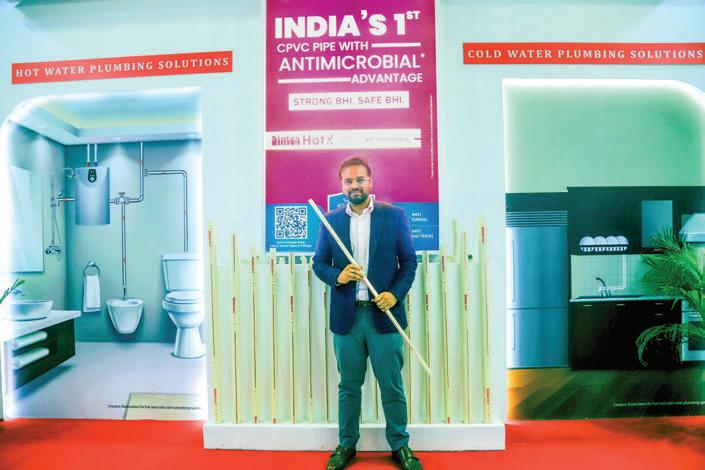
Tube & Pipe India: Kindly walk us through the Welspun World and its Group companies.
Yashovardhan Agarwal: Welspun World is a USD 5 billion global conglomerate with a robust presence in 50+ nations having a dedicated and determined team of 30,000+ employees. We have four major entities - Welspun Living, Welspun
Corp, Welspun Enterprise and Welspun One.
Welspun Living Limited, a USD 1.5 billion company, is one of the largest home textile manufacturers globally. Welspun Corp is also a USD 1.5 billion company, which manufactures large dia pipes for the oil and gas industry. Welspun Enterprise is one of India’s fastest growing infrastructure
developers, with a diversified portfolio of projects in road infrastructure and water management. Welspun Entreprises commenced the Dharavi waste water treatment project which is one of the largest Sewage Treatment Plant (STP) projects in Asia. All three of these companies are listed companies. Welspun One is an integrated fund, development
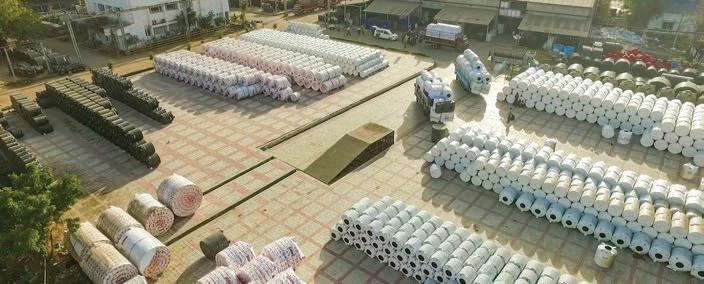
and asset management organization; designed to deliver large format institutional, Grade-A logistics parks across India. It is the only industrial warehousing platform backed by a global conglomerate.
Welspun World is one of the fastest growing global conglomerates. It is a technologically-advanced business house and amongst the first companies in the industry to use indigenously developed bots- a revolutionary AI-driven recruitment process, enhancing the interview
‘‘In large cities, the government can take care of water problems with the help of communities and localities. But in smaller tier 3 cities, more individual players are involved. People living in tier 3 cities prefer the brand Sintex.”
experience by eliminating human biases, freeing up time, and delivering scientific, data driven results. At Sintex, we have been using AI bots to communicate with our retailers and distributors for the past one year. Today if you want to place an order on Amazon, you have to make five clicks. We are currently working to reduce the number of clicks while ordering a Sintex tank and make it easier for the distributors.
TPI: Kindly tell us about your acquisition of Sintex.
YA: When Welspun decided to get into the water industry with large STPs (Sewage Treatment Plants), it thought of a trustworthy brand that people recognized and commanded a premium. Sintex was a perfect match for us.
It is a 50-year-old iconic and credible brand, which is well recognised by people across the country. People know the Sintex logo by heart. The company is also known for its innovations in WPC boards, electrical composite boxes and water tanks. The brand is well recognised and enjoys good brand equity across India. Even when it was under the National Company Law Tribunal (NCLT) for three years, the management never compromised on the quality of its products. Five years ago, when all
companies worked on credit, Sintex became the first building materials company to collect 100 percent in advance. During its time under NCLT, it was still cash positive company, registering net profit on a year-on-year basis. That is the power of the brand -Sintex.
Welspun Corp acquired Sintex in March 2023. Welspun and Sintex together are a strong brand. Wespun has a mindset and clarity of how to grow businesses. We are very bullish on business prospects and our growth. Today, Sintex is a leading manufacturer of a diverse range of plastic products in India, providing liquid storage solutions to billions for the last five decades, with a strong commitment to innovation and sustainability. The company’s varying portfolio includes water tanks, commercial water storage, uPVC doors and decorative panels, community water storage, pipes, electrical products and environmental solutions. Sintex is dedicated to improving the lives of its customers by providing high-quality, reliable products that make a positive impact on the environment.
TPI: How do you plan to extend your business after acquiring Sintex?
YA: India has 4 percent fresh water
right now and 18 percent of the world’s population. In large cities, the government can take care of water problems with the help of communities and localities. But in smaller tier 3 cities, more individual players are involved. People living in tier 3 cities prefer the brand Sintex. We want to capitalise on this strong brand equity. We want to be part of the whole water journey. From the time water comes to your house till it leaves, the whole process of transportation, harvesting, storage, we want to come full circle with it.
As part of the Welspun World, we have access to some of the best technologies, such as SmartOps and Veolia. We are focusing on using these technologies to make the STP structures more modular. On the other side, we are already into rainwater harvesting through biotanks. We’re working on developing this business with a clear vision. We want to make every home water positive.
TPI: You recently launched CPVC antimicrobial pipes. Please tell us about it.
YA: For the fundamental growth of any business, it’s important to keep innovating, otherwise it becomes a commodity. That is why we continue innovation in all our businesses. This year, we launched our much-anticipated CPVC pipes with antimicrobial properties, which will gain traction and achieve market share. Our R&D team worked tirelessly and developed a compound, that took a while to create, but the end pipes have turned out really well. This will be India’s 1st antimicrobial CPVC pipes.
We are also bringing the health aspect to the water story. CPVC antimicrobial pipes ensure that the water you store in your house, along with the pipe used to transport it, are clean and
hygienic.
Our products will come with Sintex NXT Advantage, offering builtin protection with antifungal, antibacterial, antimicrobial and antiviral properties ,ensuring hygiene and safety. We want to empower the end user, so that a customer knows exactly what he is buying. For
‘‘Welspun Enterprises Limited (WEL) is collaborating with the Brihanmumbai Municipal Corporation (BMC) to build a 2,000 million litres per day water treatment plant at Bhandup Complex in Mumbai, Maharashtra.”
example, HotX implies that the pipe is for hot water.
TPI: The industry has witnessed many mergers and acquisitions in recent times. How do you see this affecting market growth?
YA: Around 60 percent of the pipe market is unorganized right now and consolidation is bound to happen. We don’t see that as a worry, in fact, we see this as an opportunity. Two years back, companies were highly priced. The P/E ratios were going absurd, which was not a sustainable trend. Now that P/E ratios are getting
corrected, acquisitions are taking place. We’re open to acquisitions, provided it fits our mindset. As a brand, we are very strong. We need to see what the prevailing market conditions bring to us. At the end of the day, we don’t want to buy a 20-year-old asset with a 20-year-old machine.
TPI: What effect will the US-China steel tariff war have on the Indian plastic industry?
YA: The industry expects that the anti-dumping duties imposed by the Government will play a strong and positive role in raw material pricing. We are not going into any hypothetical situation, but we know it will happen as we have evaluated all permutations and combinations. We are not much worried about it. If you look at the journey of the Indian plastic industry for the last 40-50 years, wherever plastic has met any metal, it has always won. Whether it is GI pipes, or steel pipes, plastic has always emerged victorious.
TPI: Kindly tell us about your market footprint.
YA: Welspun World, as a whole, is going aggressive on expansions. Welspun Corp Limited recently incorporated a wholly-owned subsidiary, Welspun Europe S.A. in Spain. Besides, it is setting up a state-of-the-art Longitudinal Submerged Arc Welded (LSAW) line pipe manufacturing facility in the Kingdom of Saudi Arabia having an annual production capacity of 350,000 MT.
Talking about Sintex, we have less than 5 percent of our sales as exports. Our priority right now is India. We see India as the next big story. Since the world is looking at India for investment, we, as Indians, should be the first to gain from it. We are also creating SPACES as a brand to market in India. Spaces by Welspun
is a premium bed and bath essential crafted for everyday luxury.
TPI: Please tell us more about your upcoming projects.
YA: Welspun Enterprises Limited (WEL) is collaborating with the Brihanmumbai Municipal Corporation (BMC), Mumbai to build a 2,000 million litres per day water treatment plant at Bhandup Complex in Mumbai, Maharashtra. For this project, WEL is collaborating with French water technology firm Veolia, which is one of the largest global technology companies specialising in the water sector. That’s our trademark. We only collaborate with the best.
Apart from this, WEL is executing a 418 MLD waste water treatment facility project at Dharavi, Mumbai,
which will be India’s first and the world’s second multi-storeyed waste water treatment plant.
TPI: Please tell us about your future plans, including your upcoming/new facilities.
YA: All Welspun World companies are leading in their respective businesses with innovation being the core value. Following the same values Sintex has begun work on four new plants
‘‘Our priority right now is India. We see India as the next big story.”
out of which is already operational. Recently, we acquired Weetek Plastics Private Limited in Raipur for about INR 75 crore. It fitted our technical requirements and ideology.
We recently invested INR 250 crore in Bhopal, which will have the full range of pipes. This is our first greenfield plant and we’re using it as a prototype. The moment we know our material is ready, we’ll be five times more aggressive. We have already allotted INR 2,355 crore for the first four years and will see how to proceed after that. We are going very aggressive and plan to grab five percent market share in the next 7 years. After the launch of CPVC antimicrobial pipes, our next diversification story will be about getting into more specialized treatment of water.
Odisha’s Chief Minister Mohan Majhi has approved several investment proposals aimed at significantly strengthening the state’s steel and aluminum industries.
Mar 28, 2025
Odisha’s Chief Minister Mohan Majhi, chairing the High-Level Clearance Authority (HLCA), has approved several investment proposals aimed at significantly strengthening the state’s steel and aluminum industries.
One of the most substantial investments comes from Vedanta Group, which will set up a modern aluminium park in Jharsuguda, Odisha, alongside a three million TPA aluminium plant in Rayagada district, with a total investment of INR 1 lakh crore.
The steel sector is also witnessing major investments. JSW Steel Limited has announced an INR 35,000 crore investment for establishing a 5 million TPA integrated steel plant in Keonjhar district.
Additionally, OCL Iron and Steel Limited is set to expand its steel production capabilities by establishing a 1.2 million TPA integrated steel plant in Keonjhar
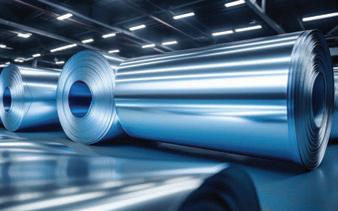
with an investment of INR 3,000 crore. Further strengthening Odisha’s position as a steel hub, Shyam Steel Works Private Limited will invest INR 5,200 crore to set up a 1.5 million TPA integrated steel plant.
These investments underscore Odisha’s growing prominence as a key player in India’s steel and aluminum industries, driving economic growth and employment opportunities in the state.
Prince Pipes and Fittings Limited makes inroads into bathware products by acquiring Aquel Bathware in March 2024. Mr. Parag Chheda, Joint Managing Director, Prince Pipes and Fittings Limited, revealed during an exclusive interaction with Tube&PipeIndia that the company is looking forward to capturing the East Indian markets with its new 48,000 MT facility at Begusarai, Bihar worth INR 220 crore.
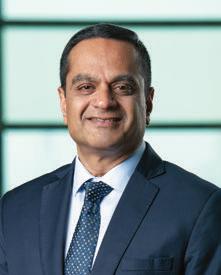
Mr. Parag Chheda, Joint Managing Director, Prince Pipes and Fittings Ltd.
Tube & Pipe India: Can you elaborate on the strategic rationale behind acquiring the “Aquel” brand and how it aligns with Prince Pipes’ long-term vision?
Parag Chheda: Prince Pipes acquired an iconic brand - Aquel Bathware in March 2024, which has now been re-branded as Aquel by Prince. The transaction is a strategic and financial fit that has brought significant synergies and market opportunities along with a state-of-the-art facility.
The erstwhile Aquel was a legacy brand equity with homeowners, interior designers, architects and builders across India. Their technically advanced plant supported by modern manufacturing processes and robust quality control infrastructure, coupled with the operational strength of Prince, presented an exciting opportunity to scale our Bathware portfolio.
Today, Aquel by Prince has made good progress and continues to steadily expand its footprint with an expanded presence of new showrooms across India. The brand is now present across, North, West, and South regions of India, across several retail touchpoints as our bathware products continue to make deep inroads into key tier 2 and tier 3 markets.
TPI: Please tell us about your expansion of the Bihar facility. What level of investments are you making and how will it enhance your production capabilities?
PC: Our integrated manufacturing facility at Begusarai in Bihar is likely to be commissioned in Q4FY25-26 and will be the eighth manufacturing facility of the company producing a range of polymer pipes and fittings, including UPVC, CPVC, PPR and HDPE pipes. The plant will go onstream from Q1FY26-27, which will cater to rising demand in East India, a fast-growing market in the country. The estimated capital expenditure in the Bihar facility is approximately INR 220 crore for the proposed capacity of 48,000 MT of pipes and fittings.
TPI: What is your product portfolio? What specific technologies or innovations do you incorporate in your products to enhance product quality and stay ahead of your competitors?
PC: For over four decades, our vision has centered on revolutionizing India’s water infrastructure. Our focus on innovation allows us to actively address the needs of consumers across pipes and now with our bathware products led by Aquel by Prince. With a robust portfolio encompassing








pipes, water tanks and bathware, we are looking to not only consolidate our industry presence but are also excited to contribute to India’s growth story. Within the industry, Prince has one of the largest portfolios with over 2400 SKUs spanning segments like plumbing, industrials, sewerage & drainage, agriculture & borewell, underground, water storage tanks, cable protection, surface drainage and PTMT tapware.
Versatility is another key aspect of our product portfolio, catering to a wide range of applications. Our offerings include plumbing systems like Flowguard Plus CPVC for hot and cold water, Easyfit UPVC for potable water distribution and Greenfit PP-R for industrial piping. We also have specialized solutions such as Silentfit for low-noise drainage, Corfit for underground double-wall corrugated piping and Aquafit for agricultural needs. This extensive range ensures that Prince Pipes can meet diverse requirements across residential, commercial and industrial sectors.
We continually adapt to evolving needs and trends, introducing new products that adhere to international standards. For example, Prince
Onefit, engineered with Corzan CPVC Technology, stands as an exemplar for industrial use. This product offers high-quality, corrosion-resistant solutions, ensuring operational continuity with minimal downtime. In our modern plumbing vertical, products such as Skolan Safe, HT Safe and Hauraton represent the breadth of innovative products introduced to the Indian market through global partnerships. The introduction of these products shows our commitment to bringing worldclass solutions to India and addressing the country’s evolving infrastructure needs through products that offer topnotch technology and performance.
TPI: Prince Pipes leads the race when it comes to brand positioning. What marketing initiatives does your company take to strengthen its competitive position in the pipe and fittings industry?
PC: Our purpose is to empower families and builders of the nation with robust and versatile infrastructure solutions with sustainable growth and trusted products that can elevate living standards.
We also launched Udaan 2.0 – an updated loyalty program exclusively for plumber associates. Udaan 2.0 urges plumbers to join the platform that offers exciting cashback incentives on every purchase, while members also enjoy exclusive discounts and benefits. We continue to create impactful social media campaigns highlighting aspirational journeys in the lives of plumbers registered with Udaan.
Keeping in mind changing times, Prince conducts skill enhancement workshops for plumbers and imparts training on new products & technologies. Every year, World Plumbing Day is commemorated through a special marketing activity. Recently, Prince Pipes was recognised among the top two most desired brands in the pipes category – as declared by TRA Research in its most desired brand, 2024. This recognition marks an important milestone for the Prince brand. As you would know, TRA Research’s annual rankings are highly regarded by the industry, providing valuable insights into consumer perceptions and preferences for over a decade.
Over the past 40 years, Prince Pipes
has built a formidable brand and we will continue to be aggressive in further strengthening it.
TPI: Please share your views on the Indian vis-a-vis the global plastic pipe industry. What is the role of the Indian government in the growth of this sector?
PC: The Indian pipes and fittings industry is well-placed for long-term growth. In India, the demand for water supply and water management infrastructure, with pipes as the primary component, is significantly high and has a vast scope for expansion. According to estimates, the plastic pipe industry is expected to report a volume CAGR of 10-12 percent between FY2023 to FY2028. This projection considers favourable resin prices, potential revival in the urban real estate sector, and the Government’s emphasis on boosting farm income & advancing infrastructure development.
The Union Budget 2025 announced the extension of Jal Jeevan Mission until 2028, with an increased total outlay aiming to achieve 100 percent coverage of portable tap water connections across rural households. It was reiterated that since 2019, 15 crore households representing 80 percent of India’s rural population have been provided access to portable tap water connections under the Jal Jeevan Mission scheme.
Additionally, the Government plans to sign separate MoUs with the states and union territories to ensure the sustainability and efficiency of water service delivery, reinforcing its commitment to a water-secure future for all. This augurs well for the pipes and fittings industry, which plays an active role by bringing innovative solutions and technologies.
To capture the long-term demand trends, we are implementing
several growth-oriented strategic efforts like brand positioning across different audiences, strengthening channel partnerships and expanding manufacturing at key plants, including our latest facility at Bihar, which will go on stream by April 2026.
TPI: Please shed light on the factors contributing to the growth of the Indian plastic pipe industry.
PC: The Indian real estate industry is a significant growth driver for the pipes and fittings industry. The activity of new real estate launches has seen a significant increase over the last 2-3 years, which is expected to result in a robust demand for pipes.
India’s population is expected to surge to 1.55 billion by 2034 with an estimated 42.5 percent of the population residing in urban centres. Consequently, India’s existing rural and small towns are set to transform into mini-urban towns and the burgeoning urban population is set to generate demand for housing in India, especially in cities.
A changing lifestyle has also led to greater consumer awareness. With growing aspirations for a better lifestyle, people are becoming more conscious of better quality and branded products, leading to a surge in demand.
Such demographics and movement in the real estate industry as well as growth in Indian infrastructure augur well for the Indian pipes & fittings industry, expanding the industry’s potential in the long term.
TPI: How do you see the company’s vision being implemented through core focus areas?
PC: At Prince Pipes, our vision is to lead the industry and strengthen India’s water infrastructure through innovation and adaptability. We are committed to embracing cutting-
edge technologies and introducing groundbreaking products and solutions that set new industry standards.
The core focus areas for our future growth include innovation & technology, customer centricity, sustainability & social responsibility, and leadership & culture.
We adopt and integrate innovative and sustainable technologies to stay ahead in the industry. We will continue to develop and launch new water-related products that push the boundaries of what is possible.
We prioritize understanding and meeting the unique needs of our customers to deliver high-quality products and exceptional services. We are expanding our partnerships with distributors, retailers and digital commerce marketplaces that enable us to grow together.
We conduct our business ethically and make every effort to minimize our environmental footprint. Every year, we engage in initiatives that give back to the communities where we operate. Through our CSR activities, we continue to strengthen our brand ethos through a commitment to sustainability, positioning ourselves as industry leaders.
We foster a culture of collaboration, creativity, and empowerment among our team members. Recently, we were acknowledged as ‘A Great Place to Work,’ which signifies that our company has an ambient work culture, high employee satisfaction and advocates sustainable business success. We encourage leadership at all levels to drive the company towards achieving its goals.
By focusing on these key areas, Prince Pipes aims to achieve sustainable growth and strengthen our position as an industry leader.
OM Techcorp, a leading supplier of machinery and technology to the steel, tube and pipe industry, has partnered with Tecnar to bring the Lut 2.0 to the Indian market. Developed by Tecnar, this advanced laser ultrasonic gauge measures true wall thickness and eccentricity in real time during hot rolling, without contact or radioactive hazards.
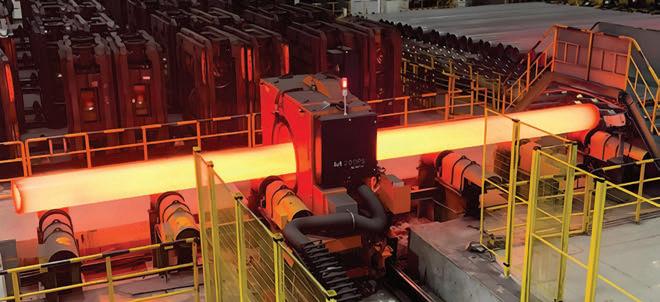
Canada-based Tecnar is the leading manufacturer of hot rolling online true wall thickness measuring systems for seamless tubes & pipes, which has been redefining precision in the manufacturing of industrial automation and sensing technologies for over 35 years.
Unlike conventional technologies, Lut 2.0 is insensitive to the presence of material or a mandrel inside the tube and tolerant to tube motion. Plus, it covers the widest range of wall thickness (WT: 3 to 70 mm). It is unlimited by tube diameter above 25 mm, making it an essential tool for process optimization.
Available in various configurations, Lut 2.0 is the most advanced and flexible wall thickness gauge on the market. Built to withstand the harsh
environment of hot rolling, it offers operators a choice of models tailored to their specific applications.
Options include a fixed probe measuring from above or the side of the production line, or a scanning model that rotates around the tube as it passes through the sensor. These gauges are compatible with any seamless tube manufacturing process and can be installed virtually anywhere between the piercing mill and the sizing or stretch-reducing mill outlets.
Lut 2.0 comes with a detailed, user-friendly data interface, providing operators and managers with clear production conditions. Plus, its dashboard is customizable to each user’s preference. Individual tube profiles, batch trends and
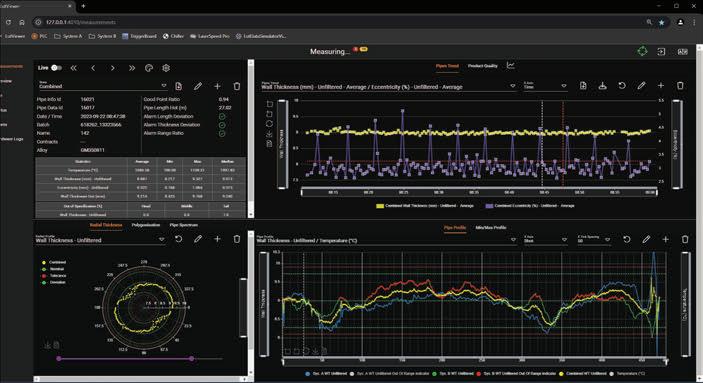
wall thickness deviation are clearly displayed, making it easy to identify early the potential origin of developing eccentricities - such as tool wear or out-of-specification rollstand settings - and allowing for focused corrective actions, ultimately improving process optimization.
As the demand for high-quality seamless tubes and pipes grows in India, Lut 2.0 is set to become a game-changer in the industry. Manufacturers can achieve greater efficiency,
reduced material waste and enhanced product quality by combining non-contact laser ultrasonic technology with real-time data insights.
Backed by OM Techcorp’s local expertise and support, Tecnar is committed to driving innovation and helping Indian tube manufacturers stay ahead in a competitive market.
At INR 2,59,883 crore, JSW Steel has surpassed global giants like Tata Steel, ArcelorMittal, and Nucor Corporation.
Mar 26, 2025
JSW Steel has become the world’s most valued steel company, overtaking giants like TATA Steel, ArcelorMittal, and Nippon Steel. At INR 2,59,883 crore, JSW Steel leads India’s market followed by TATA Steel at approximately INR 1,95,000 crore. Globally, according to Bloomberg data, JSW Steel overtook ArcelorMittal (INR 2,32,780 crore) and US-based Nucor Corporation (INR 2,52,164 crore). Currently, the steelmaking giant has an annual production capacity of 35.7 million tonnes, with plans to increase it to 51.5 million tonnes per annum by FY 31, with 50 million tonnes per annum located in India.
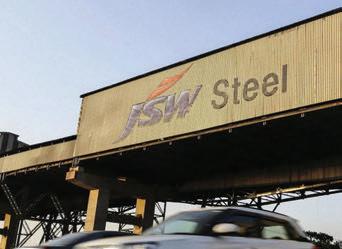
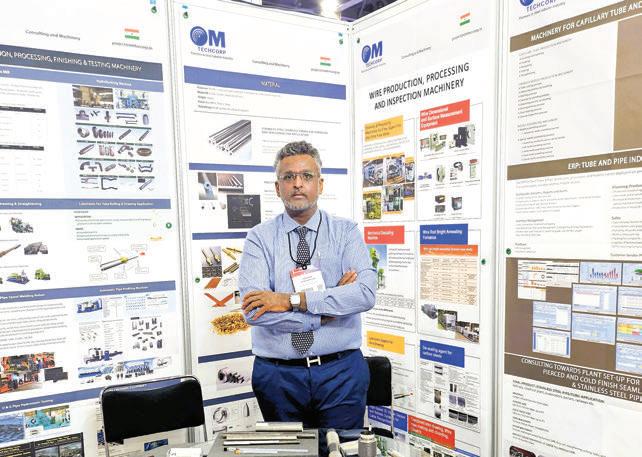
OM TechCorp, with its combined expertise of production technology and market trend in the seamless tubes & pipes sector, provides individual or custom packaged services or turnkey solutions to its clients for project conceptualization, project initiation, project execution, production, marketing and debottlenecking. They give the industry a better basis for project investment decisions.
OM TechCorp offers consulting services specializing in the value chain of industrial and specialty stainless- steel tubes. From integrated SS & CS plant (billet into finish tubes) to sales, the company provides individual or custom packaged services or turnkey solutions to its clients.
The company has expertise in the seamless tubes & pipes that are straight, U bend, and coil, finding application in the energy, power, defense, fertilizer, refinery, railways, automotive, process equipment, and aerospace.
The team has over three decades of hands-on experience in stainless steel tube plant design and erection, production, quality management and global sales. The team consists of contractors in electrical, civil and structural, engineering and design, IT and automation, environmental and safety, plant erection that specialized in tube plant projects.
Project activities are synchronised by the special team, ensuring adherence to project budget, schedule and smooth implementation. These contractor teams or vendors can invoice directly to clients, while the activities are monitored by the company.
The government’s policies to boost local production and increase the competitiveness of Indian industries through “Make in India” and “AatmaNirbhar Bharat” initiatives will pave a way of opportunity for the steel pipe manufacturing sector.
Further, government’s policies such as Production Linked Incentive (PLI), high budgetary allocations towards
railways, roads, civil aviation, gas pipelines for affordable housing are expected to drive demand for steel tubes and pipes.
Anti-dumping duties on stainless steel seamless tubes and pipes from China (imposed in 2022 for five years) and extended anti-subsidy duties on welded steel tubes and pipes from China and Vietnam (September 2024) protect domestic manufacturers from predatory pricing.
The Indian government has implemented BIS certifications for certain steel tube & pipe imports that has drastically reduced tube & pipe imports.
This policy has historically resulted in increase in the capacity utilization rates of domestic stainless-steel tubes and pipes manufacturers, is expected to continue to provide benefits to the domestic players in terms of operational efficiencies and margins.
The Indian stainless-steel tubes and pipes industry is poised for steady growth, driven by infrastructure development, industrial expansion, and increasing applications in specialized sectors. India’s growing sectors like nuclear, defense, energy, chemical, aerospace, and medical demand high quality tubes for critical application. This has given a demand rise to high quality hot finish pipes and cold finish tubes. Companies that invest in capacity expansion, technological upgradation, and product diversification will be well-positioned to capture growth opportunities in domestic and export markets.
The consulting scope of the company consists of concept, project initiation, project execution, production, marketing and debottlenecking.
In terms of concept, the company advises on product mix, end user markets, and project viability, and determines the production process route and technology based on product mix, yield and capacity.
The company provides plant machinery selection along with planning and contract selection for project initiation. For plant machinery selection, the company sets parameters, defines specification and aids in capex supplier selection. The planning and contract selection is made towards site layout, civil and structural, equipment foundation, internal logistic pathways, hoist energy system and main distribution, IT infrastructure, safety and emergency, adherence to local regulations, water and air.
For project execution, the site is monitored as per plans, and coordination is maintained across all interfaces between contractors, equipment and other related services. There is a complete and thorough supervision of equipment starting from installation and commissioning to its acceptance. The project execution ensures seamless integration between IT and plant automation.
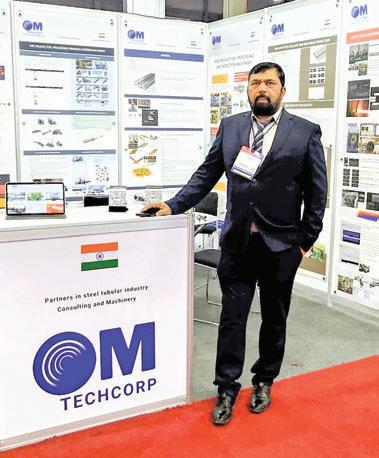
Moving towards production, the company provides HR components in tube production, and advisory on raw material, production planning, quality management and certification. It also conducts final product trials, and supplier evaluation and selection, for long term repair and maintenance service.
For a new project, initial market penetration and sales is a challenge. Since break even schedule and profitability is largely influenced by sales, it is imperative to have an expert marketing team. The marketing team advises on plant approvals and develops new clients. Moreover, the company structures off-take agreement and aids in global market penetration and after sales management.
Lastly for debottlenecking, the company advises on the process upgrades and line modernization of existing plants. It optimizes product quality, yield and cost structure, and helps in expanding product portfolio and margin optimization.
The company’s combined expertise of production technology and market trend, gives clients a better basis for project investment decisions. Moreover, the company’s ‘all under one roof’ expertise during the entire project ensures adherence to project budget and schedule. The single source of comprehensive production technology and co-ordination of major project activities optimize project interfacing, integration and eliminates issues dealing with individual suppliers.
The company also provides human resources for plants such as line operators, plant managers, metallurgists, process engineers etc. and provides support in market penetration
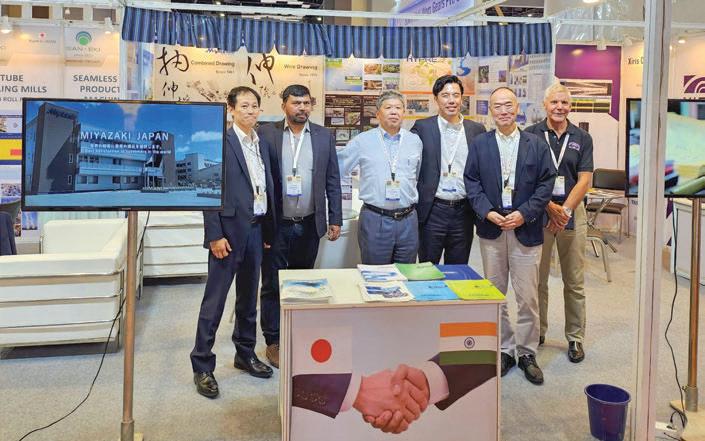
and sales. This provides smooth business operations for a new project.
The production process designs offered by the company assure optimum operating expenses (OPEX) and lowest possible final product costing. The capital expenditure (CAPEX) for the production process is selected and customized with our hands-on technical input. This avoids over or under specified procurement, thereby optimising CAPEX expenditure to produce the desired capacity and quality. This focus on OPEX & CAPEX converts into better yield production, competitive product pricing and optimum break-even point.
The company has a hands-on expert team that is the backbone of their operational and project success.
The plant design and layout team specializes in basic and detailed engineering, dimensioning and layout planning for facilities such as storage, packing and transportation, shed and civil, auxiliary equipment such as compressed air station, gas stations, water supply and treatment systems, general etc. They design different aspects of the building including air conditioning system, heating and ventilating systems, fire detection and extinguishing systems, lighting, escape route and communication equipment such as telephone, industrial TV and intercom systems. Further, they process route layout for minimum product travel
time and provide technical assistance in meeting statutory norms towards plant erection.
The construction and fabrication team handles civil infrastructure, structural for shed and cranes, construction engineering, equipment foundation, and layout for logistics systems.
The electrical and safety team ensures electrical safety measures by designing and implementation of voltage switchgears for distribution transformers, emergency power generation sets;and building electrification with power supply routing with SCADA interface options.
The IT, ERP and automation team have developed ERP exclusively for tube manufacturing plants and integrated it to plant automation by the automation team. Networking, computing and security set up.
The training team provides technical training for personnel in operations, production, quality control and maintenance.
And lastly OM TechCorp marketing team leverages its experience, network, application trends in global and domestic tube user market to provide marketing services for the clients. This service includes developing marketing strategy and team, connecting and branding in target markets, sales and off take agreement negotiation, after sales support, approval consulting. This builds a robust marketing platform along with sales for the clients managing the client’s activity smoothly.
Tecnar, a spin-off from Canada’s National Research Council, with 35 years of experience in automated pressure pipe welding and hundreds of commissioned Rotowelds (automatic pipe spool welding robots) collaborates with Praj GenX, an energy transition and climate action company. By integrating the Rotoweld advanced automation with Praj GenX’s commitment to innovation, this partnership sets a new benchmark for quality, efficiency and workforce development in manufacturing.
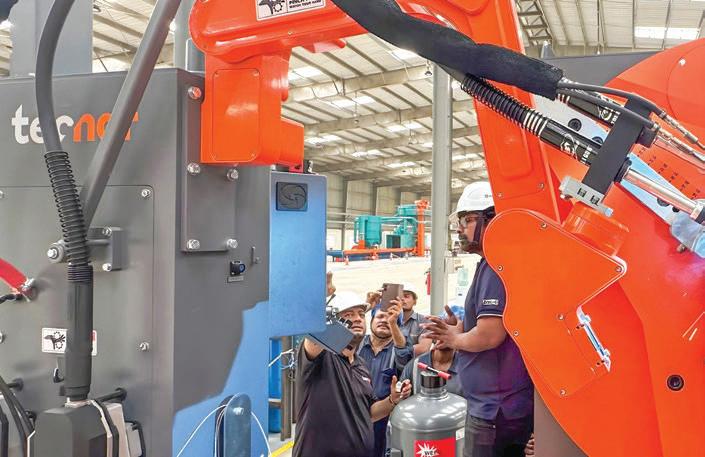
Tecnar has reached a significant milestone with the delivery of its first Rotoweld pipe spool welding robot to Praj GenX, a wholly-owned subsidiary of Praj Industries in India. This advanced welding solution is set to redefine productivity and quality standards in industrial welding, offering unparalleled efficiency and precision.
Designed to simplify and optimize pipe spool welding operations, Rotoweld integrates PerfectPass-iQ, a true
automatic welding intelligence system that ensures flawless and repeatable welds. With its automated technology, the Rotoweld enhances productivity by up to 400 percent, enabling companies to meet high-demand projects while maintaining consistent superior weld quality. This leap in efficiency allows manufacturers to reduce reliance on highly skilled manual welders, addressing labour shortages and improving overall workflow.

Praj GenX has embraced this cutting-edge technology to enhance its pipe spool welding capabilities and expand workforce opportunities. It has introduced a program to train and employ women as Rotoweld operators, showcasing how automation can create a more inclusive work environment, while maintaining high-performance standards.
This collaboration between Tecnar and Praj GenX signals a new era in the Indian welding industrial sector. By integrating the Rotoweld advanced automation with Praj GenX’s commitment to innovation, this partnership sets
a new benchmark for quality, efficiency and workforce development in manufacturing.
The initiative was headed by Mr. Sandeep Kinkar, Vice President & Head of Manufacturing Operations at Praj GenX and Mr. Alexandre Nadeau, Chief Executive Officer of Tecnar Automation Ltée. As more companies recognize the impact of innovative pipe spool welding solutions, the Rotoweld is poised to play a key role in driving the Indian industries in future by making it the global hub for manufacturing and fabrications under “Make in India” initiative.
Surya Roshni will supply HFW 355.60 X 8.7 & 10.3 WT, GR X-70 PSL-2 coated pipes for two projects of GAIL India in Madhya Pradesh and Uttar Pradesh. Apr 4, 2025
Surya Roshni Limited has secured a major order worth INR 116.15 crore (including GST) from GAIL India Limited for the supply of coated pipes in Madhya Pradesh and Uttar Pradesh.
The company said in a regulatory filing that it would deliver HFW 355.60 X 8.7 & 10.3 WT, GR X-70 PSL-2 coated pipes. The contract is expected to be executed by 39 weeks.
This development reinforces Surya Roshni’s presence in the domestic infrastructure sector, particularly in the supply of pipes to public sector undertakings.
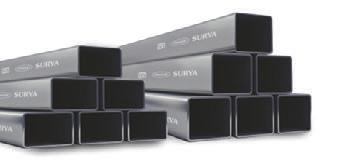
Surya Roshni further said that the transaction did not involve any related party interest.
JTL Industries Limited has incorporated JTL Engineering Limited, earlier known as Nabha Steels & Metals, as its subsidiary.
Mar 12, 2025
JTL Industries Limited has incorporated JTL Engineering Limited as its subsidiary. The company was formerly known as Nabha Steels & Metals. This transition aligns with JTL’s long-term strategy to strengthen its market position in the steel sector and also enhances backward integration capabilities, allowing JTL to expand its market reach and explore new growth opportunities.
Achieving a production rate of 5,000 metric tonnes per month of HR coils, Phase I of the expansion has been successfully commercialized. The 9-month sales volume for JTL Engineering for FY25 stood at 33,277 MT, showcasing consistent growth in line with expectations.

With this incorporation, JTL solidifies its leadership position in the steel industry, reinforcing its commitment to delivering high-quality steel solutions while continuing further expansion.
Tata Steel Tubes Division has crossed 1 million tonne of production and sales in FY25, positioning itself as the most diversified tube manufacturer in India. Their expansion into value-added products and focus on sustainability drive the division’s growth.
Apr 17, 2025
Tata Steel’s tubes division has crossed a significant milestone of one million tonnes of production and sales in FY25, making Tata Steel the most diversified tubes player in the country.
With applications ranging from large-scale construction, infrastructure projects, including metros, airports, and railways, to industrial ventures such as warehouses, Tata Steel Tubes continues to set industry standards. Its products cater to a wide array of sectors, including the automotive industry, serving both twowheeler and four-wheeler manufacturers, the oil and gas sector, and various retail applications such as roof sheds and gates, distributed through an extensive nationwide network.
In addition to an extensive product portfolio, Tata Steel Tubes is at the forefront of services and solutions, having introduced value-added offerings. The strategic
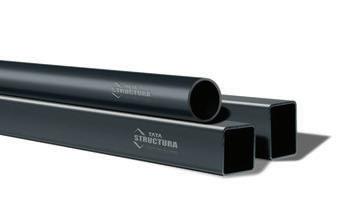
expansion reflects the company’s commitment to delivering superior quality, durability, and innovative solutions to its customers.
Commenting on the achievement, Prabhat Kumar, Vice President, Marketing & Sales (Flat Products) and Chairperson, Tubes Profit Centre Council, said, “Crossing the 1 million tonne mark is a testament to our unwavering focus on innovation, operational
excellence, and customer-centricity. Our diversified portfolio and expansion into value-added solutions have enabled us to meet the evolving demands of multiple industries. This milestone further strengthens our resolve to drive growth through sustainable solutions and continue contributing to India’s infrastructure and industrial development.”
Tata Steel Tubes, having manufacturing facilities spread across the eastern and northern parts of the country, has also started increasing its presence in international markets and plans to take this to 10% of the division’s overall sales in the coming years.
The new facility has successfully increased its capacity by an additional 50,000 TPA, expanding its total annual production capacity from 100,000 tonnes to 150,000 tonnes, significantly enhancing the company’s manufacturing capabilities.
Mar 10, 2025
MAN Industries (India) Limited has announced the inauguration of its newly installed Spiral Mill for narrow range pipes and an advanced Polyurethane (PU) Coating Facility (and 3 Layer Polyethylene [3 LPE] in progress) at its state-of-the-art manufacturing plant in Pithampur, Madhya Pradesh. With an investment of approximately INR 100 crore, the facility has successfully increased its capacity by an additional 50,000 TPA, expanding its total annual production capacity from 100,000 tonnes to 150,000 tonnes, significantly enhancing the company’s manufacturing capabilities.
The new facility marks a significant expansion of MAN Industries’ production capabilities, enabling the company to manufacture pipes ranging from 12” to 120” in diameter, enhanced from the previous range of 28” to 120”. This enhancement will allow the company to cater to the increasing demand for high quality narrow-range pipes required in critical sectors such as oil & gas, water transmission, and infrastructure development. The newly built Spiral Mill is designed to meet the highest industry standards, ensuring precision, strength, and reliability in highpressure pipeline transmission systems. The advanced PU & 3 LPE Coating Facility will further reinforce pipe durability, enhancing corrosion resistance and longevity, making them suitable for diverse environmental conditions. This investment aligns with MAN Industries’ commitment to technological innovation, sustainability, and superior product quality. The new mill and coating facility will increase production efficiency, reduce turnaround time, and strengthen the company’s position as a preferred supplier for major infrastructure projects across
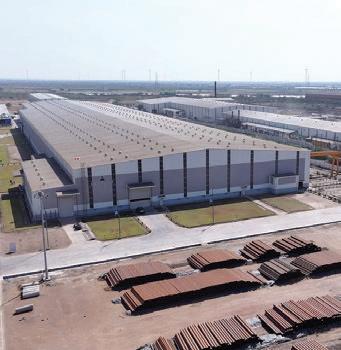
India and globally. Additionally, MAN Industries is progressing with its Saudi and Jammu plants, reinforcing its commitment to expanding its global footprint and enhancing its production capabilities across key regions.
“As the energy and infrastructure landscape continues to evolve, we at MAN Industries remain dedicated to staying at the forefront of innovation,” said Mr. Nikhil Mansukhani, Managing Director of MAN Industries.
“The introduction of our new Spiral Mill and Coating Facility marks a major step forward in our ability to serve the industry with precision-engineered, highquality products. This expansion not only strengthens our capabilities but also reinforces our long-standing commitment to delivering world class infrastructure solutions.”
Jindal (India) has entered the steel section pipes and tubes market, committing an investment of INR 100 crore at its manufacturing unit in West Bengal.
Apr 30, 2025
Jindal (India) has officially entered the steel section pipes and tubes market, committing an investment of INR 100 crore at its manufacturing unit in West Bengal.
This strategic move aims to establish a production capacity of 5,000 metric tonnes (MT), with the company projecting sales revenue of approximately INR 315 crore by the financial year 2025–26.
By expanding into this product segment, Jindal (India) seeks to strengthen its presence in the domestic market while tapping into the growing demand for pipes and tubes, particularly in eastern India. The company is also looking to scale up its export operations through this new venture.
A company spokesperson highlighted, ‘‘Our venture into the steel pipes and tubes segment aligns with the government’s Make in India initiative and reiterates our commitment to industrial growth. While catering to the high demand for this product segment, particularly
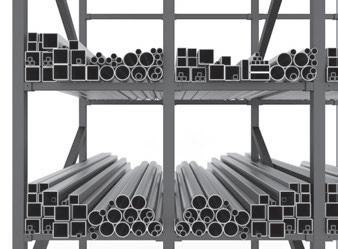
in the eastern region of the country, the company also aims to significantly bolster its exports through this expansion.’’
The company expects the expansion to contribute significantly to infrastructure development across sectors such as agriculture, railways, warehousing, and other key industries.
The orders include two major contracts for helical submerged arc welded (HSAW) pipes and additional orders for high-frequency inducted welded (HFIW) pipes. Welspun Corp Limited’s consolidated order book has reached approximately INR 18,000 crore.
Feb 18, 2025
Home-grown Welspun Corp Limited (WCL) has secured new orders worth approximately INR 3,000 crore for supplying coated pipes for natural gas pipeline projects in the United States.
The orders include two major contracts for helical submerged arc welded (HSAW) pipes and additional orders for high-frequency inducted welded (HFIW) pipes.
The leading global manufacturer of large diameter pipes said in an exchange filing that it planned to execute these orders primarily during the fiscal years 2026 and 2027. The new contracts have taken WCL’s

consolidated order book to approximately INR 18,000 crore.
As per Welspun, the new orders strengthened its dominant market position in the oil and gas transmission sector of the United States. The Mumbaibased line pipe manufacturer said it was wellpositioned to capitalize on future opportunities in the US markets.
The purpose of the proposed JV is to provide critical tubing solutions to consumers in the Kingdom of Saudi Arabia (KSA) and GCC countries.
Apr 10, 2025
Ratnamani Metals & Tubes Limited (RMTL) has entered into a Joint Venture and Shareholders Agreement with Saudi Electric Supply Company Limited (SESCO).
The primary objective of the joint venture is to deliver critical tubing solutions to customers across the Kingdom of Saudi Arabia (KSA), the Gulf Cooperation Council (GCC) countries, and potentially global markets, based on emerging opportunities.
Additionally, the joint venture aims to support local manufacturing of seamless products, which are currently being imported by end-users in KSA and the GCC region, thereby contributing to regional selfsufficiency.
At its meeting, the Board of Directors authorized the company’s executives to finalize the terms and execute

the agreement. It is agreed that the shareholdings of the proposed JV Company upon incorporation shall be as per the ratio i.e., 75% of the equity shareholding in the JV Company shall be with Ratnamani Metals & Tubes Limited and 25% of the equity shareholding shall be with SESCO.
Jindal (India) Limited has received the Product Certificate of Conformity (PCOC) for the supply of Electric Resistance Welded (ERW) pipes to Saudi Arabia.
Apr 22, 2025
Jindal (India) Limited has been awarded the Product Certificate of Conformity (PCOC), enabling the company to export Electric Resistance Welded (ERW) pipes to Saudi Arabia. The certification confirms that Jindal’s ERW pipes meet the technical standards required under the kingdom’s regulations for building materials.
The certificate (No. 70066-100-25-1879122), issued on April 11, 2025 and with validity through April 11, 2026, marks a significant step forward in Jindal’s expansion into the Middle Eastern market.
A spokesperson for the company emphasized the importance of the certification, stating it reflects Jindal’s commitment to delivering high-quality products that comply with international norms. They also

credited the milestone to the dedication and hard work of their team.
With this approval, Jindal (India) is better positioned to cater to the increasing needs of Saudi Arabia’s industrial and infrastructure development sectors.
The 1,780-millimeter hot strip mill has a capacity of five million TPA and is equipped with the latest generation of rolling technologies to ensure efficient & sustainable production of very thin hot strips and thin final gauges.
Feb 11, 2025
Jindal Steel and Power (JSP) has received a hot strip mill, measuring 1,780-millimeter and having a capacity of five million TPA from SMS Group, global manufacturer, supplier, designer and engineers of equipment for the metals industry.
This is the first hot strip mill provided by SMS group to Jindal Steel Odisha Limited (JSOL), a wholly-owned subsidiary of JSP, for its Angul site in Odisha. The mill is equipped with the latest generation of rolling technologies to ensure efficient and sustainable production of very thin hot strips and thin final gauges. It can handle a wide range of steel grades, including high-strength low-alloy (HSLA), pipe grades and silicon steels. Over 20 percent of the materials are tough grades. This marks another chapter in the long partnership between JSP and SMS group, who have worked together on several projects before.
For optimal temperature regulation in the roughing mill, SMS group installed the newly-developed transfer bar cooling system. The transfer bar cooling prevents uncontrolled air-cooling during oscillation and comes with favorable effects on temperature profiles. The effects on the rolling process in the finishing mill are positive. By equalizing the temperature, product homogeneity is improved.
JSOL’s hot strip mill is equipped with the latest generation heat panels of the HIBOX® type. This simplifies the inspection and maintenance of the elements and increases the service life by a factor of four compared to conventional preservation hoods. Using the HIBOX® heat panels makes the finishing train’s rolling behavior more stable and JSOL is able to shift the product mix toward smaller final thicknesses and/or higher strength steel grades. The HIBOX® system comes with resilient savings in terms of energy, CO2 footprint and OPEX.
Arranged between the second roughing stand and the finishing mill, the coilbox forms transfer bar into coils and thereby equalizes the temperature over the transfer bar length. Coiling the transfer bar prevents
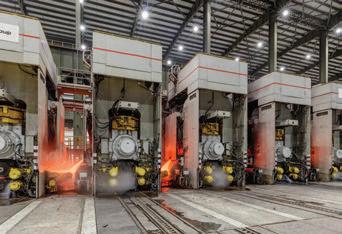
the inner windings from cooling. Material and heat are accumulated, providing a positive effect on the material to be rolled and the production process. The improved transfer bar temperature allows expansion of the product range to thinner gauges.
Located upstream of the finishing mill descaler, the edge heater utilizes inductive heating. The primary role is to enhance strip edge quality by maintaining optimal pre-rolling temperatures. This ensures flawless production, even for advanced grades. The sevenstand finishing mill in 4-hi design is equipped with hydraulic adjustment systems, hydraulic loopers and latest generation CVC® plus (Continuously Variable Crown) combined work roll shifting and bending systems.
Also part of the supply was the X-Pact® Profile, Contour and Flatness process model (PCFC) being able to cope with all requirements in terms of producing highly sophisticated products with an exceptionally wide range of properties and dimensions. PCFC calculates the optimal set points for the actuators of the CVC® plus and bending system. This is why PCFC ensures the stability of the rolling process, highest product quality regarding strip geometry and a flexible rolling schedule.
The high-capacity HSM is completed by the laminar cooling system and three downcoilers as well as AMOVA coil conveying system, strapping machines, marking machine and inspection line.
Supreme Industries has plans to commit capex of about INR 1100 crores, including carry forward commitments and acquisition of building & infrastructure business of Wavin in India.
Apr 25, 2025
Supreme Industries has planned to invest a capex of about INR 1100 crore that includes carry forward commitments and acquisition of building & infrastructure business of Wavin in India.
With the new investment, the company plans to establish a state-of-the-art manufacturing facility at Kanpur, Madhya Pradesh, to manufacture uPVC profiles, along with the production of windows and doors. The first phase of production is set to commence by July 2025.
The company also plans to increase O-PVC pipe manufacturing capacity at Sangli, Maharashtra and put up O-PVC pipe manufacturing capacity at the Jadcherla plant in Telangana and Cuttack plant in Odisha. Supreme Industries is also expanding its capacities for CPVC piping products at Gadegaon in Maharashtra. The company also wants to increase its range of solutions in its plastic piping division such as PE gas piping system and industrial piping system.

Supreme Industries is also expanding its bath fitting product range at Puducherry, and adding varieties of new injection moulded fitting products and increasing its capacity at Jalgaon, Maharashtra, Erode, Tamil Nadu and Kharagpur, West Bengal. The company plans to add new models of injection moulded furniture, crates & pallets in the company’s range of furniture and material handling products.
Apart from these expansions, the company wants to set up a new facility for protective packaging products in Maharashtra, and install rooftop/ structure mounted solar plants at its various locations. The entire capex shall be funded from internal accruals.
The DFT setup enables JTL to manufacture square tubes measuring up to 350 x 350 mm and rectangular tubes up to 400 x 300 mm, with material thicknesses reaching 14 mm. This enhancement increases JTL’s SKU range from 1,200 to 2,000, meeting a broader market demand.
Mar 24, 2025
JTL Industries has announced the successful installation and implementation of Direct Forming Technology (DFT) at its state-of-the-art facility in Mangaon, Maharashtra. This cutting-edge technology marks a significant step forward in manufacturing high-precision-engineered steel tubes and hollow sections. It allows the direct production of hollow sections in various sizes without the need for roll changes. This eliminates time-consuming setup adjustments, reduces material wastage and costing, and enhances production speed, and product quality
The DFT setup enables JTL to manufacture square

tubes measuring up to 350 x 350 mm and rectangular tubes up to 400 x 300 mm, with material thicknesses reaching 14 mm. This enhancement increases JTL’s SKU range from 1,200 to 2,000, meeting a broader market demand.
Unlike traditional forming methods, which require
different roll sets for each dimension, DFT functions with computerised automation, ensuring faster production cycles. The new technology eliminates the need for roll changes and reduces downtime. This is expected to decrease downtime by 33% and contribute to a 25% reduction in downtime costs.
The adoption of DFT will increase JTL’s VAP share to over 50% of its sales mix.
Commenting on this strategic development, the management of JTL Industries stated: ‘’The integration of Direct Forming Technology at JTL Industries exemplifies our commitment to innovation and operational excellence. This advancement will not only enhance production efficiency but also broaden our product portfolio, enabling us to serve our
customers more effectively. Furthermore, the DFT implementation significantly boosts our production capacity at the Mangaon facility in Maharashtra, increasing it from 200,000 Metric TPA to 450,000 Metric TPA, ensuring we meet growing market demands. Our strategic investment in this cuttingedge technology highlights our focus on long-term growth and industry leadership. We anticipate that the benefits of DFT will manifest in both our top-line growth and bottom-line performance, reinforcing JTL’s position as a market leader in the steel tube industry. JTL Industries remains focused on leveraging advanced technologies to enhance its manufacturing capabilities, drive profitability, and maintain a competitive edge in the sector.”
India’s steel demand reaches over 13 million tonnes in Jan 2025, expected to reach a production capacity of 210-220 million tonnes in 2030. The domestic steel consumption is projected to increase between 190 million and 210 million tonnes by 2030.
Mar 11, 2025
India continues to stand out as the only country among the top ten global steel producers to achieve consistent growth, according to a report by Anand Rathi Research. The report reveals that India’s steel demand reached 13.289 million tonnes in January 2025, marking the second consecutive month with consumption surpassing 13 million tonnes.
India’s share in the global steel market reached approximately nine per cent in January 2025, reinforcing its position as one of the fastest-growing steel producers worldwide. Surpassing Japan in 2018 to become the second-largest steel producer, India’s growth trajectory remains strong. To meet rising steel demand in India, manufacturers across various tiers are expanding production capacities, with Tier-I companies having over 10 million tonnes of capacity, along with Tier-II and Tier-III manufacturers adding new production lines.
This expansion is expected to boost India’s crude steel installed capacity to about 242 million tonnes by FY30, with production expected to reach 210-220 million tonnes. Domestic steel consumption is projected to increase between 190 million and 210 million tonnes by FY30.
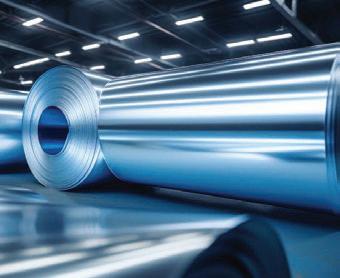
Among Indian states, Odisha leads with the highest installed steel capacity, accounting for 18 per cent, while the top five states include Odisha, Jharkhand, Chhattisgarh, Maharashtra, and Karnataka, collectively representing 68 per cent of the country’s steel capacity and producing 97 percent of the nation’s iron ore. Further expansion of green steel production capacities in Punjab and Andhra Pradesh is set to enhance India’s steel manufacturing footprint. During the first ten months of FY25, India’s crude steel production rose by 4.5 per cent year-on-year, reaching 124.919 million tonnes.
BMW Industries Limited (BMWIL), has signed a Memorandum of Understanding (MoU) with the Ministry of Steel under the Production Linked Incentive (PLI) Scheme 1.1 for Specialty Steel. The MoU was formalized at Vigyan Bhawan, New Delhi.
BMW Industries Limited (BMWIL), a leading manufacturer in the downstream steel sector, has signed a Memorandum of Understanding (MoU) with the Ministry of Steel under the Production Linked Incentive (PLI) Scheme 1.1 for Specialty Steel. The MoU was formalized at Vigyan Bhawan, New Delhi.
Under this agreement, BMWIL will manufacture coated/plated steel products of metallic/non-metallic alloy and aluminium-zinc coated galvalume products at its upcoming greenfield downstream steel complex in Bokaro, Jharkhand. The company has previously announced its capital expenditure plans, with an investment of INR 803.47 crore for this greenfield project, funded through a combination of internal accruals and debt.
Commenting on the occasion, Mr. Harsh Bansal, Managing Director of BMW Industries Limited, said, “We are honoured to be qualified under the PLI Scheme of the Ministry of Steel, led by the Honourable Minister for Steel & Heavy Industries, H D Kumaraswamy. This milestone will fortify our
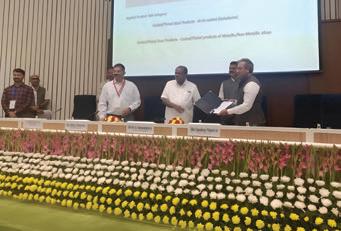
downstream steel capabilities and expand our footprint in both domestic and international markets.” He added, “With our strategically positioned Bokaro plant and seamless access to key resources, we are confident this project will create enduring value for our stakeholders while contributing to the government’s vision of advancing specialty steel production in India. Aligned with our Honourable Prime Minister’s ‘Make in India’ and ‘Atmanirbhar Bharat’ initiatives, we remain committed to promoting self-reliance and driving growth in the steel sector.”
Jindal Tubes has set up a state-of-the-art plant in Andhra Pradesh which is 4 times larger than their existing plants. With this expansion, Jindal will become India’s largest manufacturer of MLC pipes.
Apr 28, 2025
This new facility is 4 times larger than their Dehradun facility, and almost double their capacity. The new facility not only scales the company to new heights with its KWIET range but also doubles its MLC pipe production capacity. It is estimated to commence operations by the end of 2025.
Mr. Sahil Jindal, Managing Director at Jindal Tubes, posted on his social media handle that with this expansion, Jindal will become India’s largest manufacturer of MLC pipes. And this is just the beginning. We are excited to lead the market with

world-class quality, sustainable manufacturing practices, and a future-ready product line.
With this new development, the company reinforces its commitment to innovate continuously, deliver excellence, and raise industry standards.
The orders will largely be executed in the financial years 2026 and 2027, supplying coated pipes for natural gas pipeline projects in the US.
Mar 17, 2025
Welspun Corp Limited has received new orders worth INR 2,400 crore to supply coated pipes for natural gas pipeline projects in the US. The orders will largely be executed in the financial years 2026 and 2027.
According to the company’s exchange filing, the latest order win takes the company’s consolidated order book past INR 20,000 crore. Last month, the company received orders worth INR 3,000 crore for the US as well. This included two large orders for HSAW pipes and additional orders for HFIW pipes for the supply of coated pipes, primarily for natural gas pipeline projects.

Welspun Corp reported a 127% increase in its December quarter net profit to INR 674.7 crore from the previous year’s INR 297.9 crore.
With the new facility, the production capacity for uPVC pipes and fittings will increase from 8,000 tonnes to 12,000 tonnes annually, and the capacity for HDPE pipes and fittings will rise from approximately 13,000 tonnes to 18,000 tonnes annually. The company will also add 3,000 tonnes of OPVC pipes and fittings and 2,400 tonnes of CPVC pipes and fittings per year. The new facility will also manufacture and supply MDPE pipes.
Mar 24, 2025
Natraj Pipes has achieved a significant milestone by announcing its collaboration with cricketer Sourav Ganguly at a press conference held at the Taj Bengal, Kolkata. This partnership highlights the brand’s dedication to innovation, sustainability, and contributing to India’s growth.
In addition to this collaboration, Natraj Pipes is expanding its production capacities with the establishment of a new manufacturing facility. The expanded capacities will significantly boost the company’s output across various product lines.
The production capacity for uPVC pipes and fittings will increase from 8,000 tonnes to 12,000 tonnes annually. The capacity for HDPE pipes and fittings will rise from approximately 13,000 tonnes to 18,000 tonnes annually. The company will also add 3,000 tonnes of OPVC pipes and fittings and 2,400 tonnes of CPVC
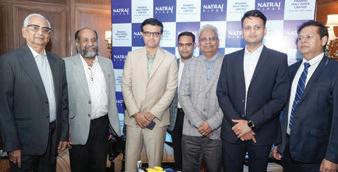
pipes and fittings per year. Additionally, Natraj Pipes will introduce a new production line for MDPE pipes, focusing on gas pipeline applications.
Commenting on these developments, Hari Mohan Marda, Managing Director of Natraj Pipes, said “As we expand our capabilities and strengthen our presence in the industry, our focus remains on delivering cutting-edge, environmentally responsible piping solutions that support India’s development journey.”
Vibhor Steel Tubes Limited (VSTL) has commenced the trial production of tubes and pipes at its greenfield plant located in Odisha, having a production capacity of 120,000 metric tonnes per annum.
Mar 04, 2025
Vibhor Steel Tubes Limited (VSTL), an Indian steel pipe and tube manufacturer, has commenced the trial production of tubes and pipes at its greenfield plant located in the eastern state of Odisha. The plant has a production capacity of 120,000 metric tonnes per annum.
The company has invested USD 14 million in the trial production, which started using captive power generators. The commercial production is scheduled for the end of the month, once the electricity grid is established.
The plant’s product portfolio included value-added steel products, including crash barriers, high-mast lighting poles, octagonal poles, and monopoles.
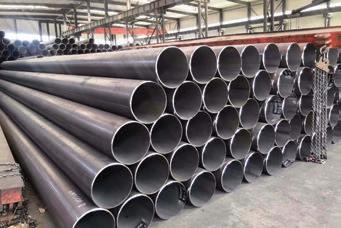
VSTL has 2 manufacturing facilities in Maharashtra and Telangana, having an installed capacity of 125,000 metric tonnes per annum and 96,000 metric tonnes per annum, respectively.
Tembo Global Industries Limited has secured two contracts to supply DI pipes, with a combined value of INR 51.82 crores.
Apr 25, 2025
Tembo Global Industries Limited has announced that the company has secured two domestic contracts for the supply of ductile iron (DI) pipes, having a combined value of INR 51.82 crores.
The contracts have been awarded by a domestic organization involved in water irrigation development. The first order is valued at INR 18.55 crores, while the second stands at INR 33.26 crores. Both contracts are scheduled for execution within 12 months.
The scope of work involves supplying high-grade ductile iron pipes for large-scale water irrigation systems. Known for their durability and capacity to support infrastructure demands, these pipes are essential component in water management and distribution.

Commenting on this development, Sanjay J. Patel, Managing Director of Tembo Global Industries Limited, said that the company is proud to be a part of India’s essential irrigation infrastructure through these significant orders. The company’s manufacturing capabilities, consistent quality, and timely delivery have positioned it as a trusted partner for government and infrastructure-led projects. These contracts are a testament to the company’s continued commitment toward supporting sustainable development and water resource management in the country.
Chhattisgarh currently produces 46 million tonnes of iron annually and aims to reach 65 million tonnes within the next five years.
Apr 24, 2025
Chhattisgarh’s steel industry has received investor proposals of INR 1 lakh crore, according to State Minister for Commerce, Industry, and Labour, Lakhan Lal Devangan. He credited this surge to the successful industrial policy, which has created a favourable environment for growth and investment in the steel sector.
Minister Devangan highlighted that Chhattisgarh has been among the top beneficiaries of the Central Government’s initiatives, including the Production Linked Incentive (PLI) scheme, which has further boosted investor confidence in the sector.
The new industrial policy has unlocked significant opportunities in the steel segment. Missions like Make-
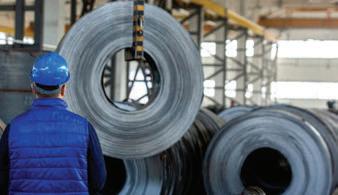
in-India, Aatmanirbhar Bharat, and Vocal for Local have also played a key role in strengthening the sector.
Currently producing 46 million tonnes of iron annually, Chhattisgarh has set an ambitious target of reaching 65 million tonnes within the next five years.
Hindalco Industries and Blue Star have entered into a strategic partnership to develop and manufacture high-precision copper tubes in India, reducing import dependency and driving energy-efficient innovation in the HVAC&R industry.
Mar 26, 2025
Hindalco Industries, a leading metals company, and Blue Star, a prominent air conditioning and commercial refrigeration manufacturer, have entered into a strategic partnership to develop and manufacture high-precision copper tubes in India. This collaboration aims to reduce the country’s dependence on imported copper tubes, which are a critical component in the heating, ventilation, air conditioning, and refrigeration (HVAC&R) industry.
By leveraging Hindalco’s expertise in non-ferrous metals and Blue Star’s deep industry knowledge, the partnership seeks to indigenize the production of these advanced copper tubes, ensuring a stable supply chain while promoting the ‘Make in India’ initiative.
This initiative not only strengthens India’s manufacturing capabilities but also enhances

sustainability and energy efficiency in the system. By producing high-quality, locally manufactured copper tubes, Hindalco and Blue Star are driving technological innovation, reducing carbon footprints, and supporting India’s vision of becoming self-reliant in key industrial sectors.
The order is expected to be delivered in the next 6-12 months. With the latest contract, the total unexecuted order book of MAN Industries has reached around INR 2,900 crore.
Feb 17, 2025
MAN Industries (India) Limited, global manufacturer of line pipes, specializing in the production of large diameter carbon steel SAW pipes, has received a pipe supply order worth around INR 250 crore. In an exchange filing, the company said the order was expected to be delivered in the next 6 to 12 months. With the latest contract, the company’s total unexecuted order book has reached around INR 2,900 crore.
The order reflected the robust business environment of MAN Industries, as well as the trust of the customers in the company’s technological and executional capabilities, it added.

In July, 2024, MAN Industries had secured an order worth INR 1,850 crore from a top-tier international oil & gas company, marking one of the largest orders of its kind in the company’s history. A statement issued by the company said that the order entailed supplying API 5L grade line pipes for an offshore LNG project over the next 12-18 months through competitive international bidding. The company would also supply SAW pipes for this project.
The greenfield project worth USD 12.8 million will come up at the company’s factory in Dammam 2nd Industrial City. Pilot production will commence for one month in Q4 2025/26, while commercial production is expected to begin in Q1 2026/27.
Feb 18, 2025
East Pipes Integrated Company for Industry, a leading manufacturer of steel pipes, tubes and hollow shapes in Saudi Arabia, is coming up with a new line for the manufacturing of helical submerged arc welded (HSAW) pipes in its factory at Dammam 2nd Industrial City.
The steel pipemaker said in a statement that the project, entailing an investment of USD 12.8 million (SAR 48 million), will be financed from the company’s available cash, bank facilities and other programs.
Work on the project will commence in February 2025 itself, said the company, adding that it has signed multiple contracts with different entities and consultants for the supply of machinery and equipment.
The new line, having a manufacturing capacity of approximately 100,000 MT, is expected to be

completed in Q4 2025/26. Pilot production will commence for one month in Q4 2025/26, while commercial production is expected to begin in Q1 2026/27.
The company, having a nominal capacity of 400,000 MT, is estimating the project to impact its financial result in Q1 2026/27.
As per the company, the project reflected its commitment to driving the Kingdom’s growth, aligned with its position as a leader in the pipes manufacturing sector. The steelmaker said there were no related parties to the deal and that it would announce any critical project developments soon.
Odisha CM Mohan Charan Majhi has announced plans to increase its steel production capacity by more than 3 times to reach 130 million tonnes from 40 million tonnes by 2030.
Apr 26, 2025
Odisha CM Mohan Charan Majhi has announced that the state has targeted to increase its steel production capacity by more than 3 times. The state is currently producing 41 million tonnes of steel and targets to reach 130 million tonnes by 2030.
The state is planning to auction 22 mines to attract fresh investment. It also intends to be among the top five industrial states by attracting investment in downstream steel processing industries.
Earlier, the state received an investment proposal worth INR 17 lakh crore at the two-day business
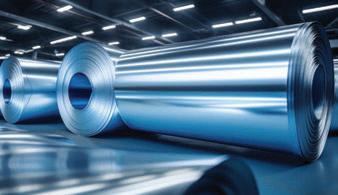
conclave, ‘Utkarsh Odisha’ held in January, with a large portion of this investment intended for the steel sector.
As per the Stainless Steel Pipes and Tubes (Quality Control) Order, 2025, which will come into effect on August 1, 2025, it will be compulsory for the companies to carry a mark of the Bureau of Indian Standards (BIS) on the production, trading, storage, import and sale of stainless steel seamless pipes and tubes.
Feb 14, 2025
In order to protect the manufacturers of stainless steel seamless pipes and tubes from unfair trade practices, prevent substandard imports and safeguard environmental standards, as well as consumer interests, the government of India has issued a new order regarding the quality of these products.
Issued on February 10, 2025 by the Department for Promotion of Industry and Internal Trade (DPIIT), the Stainless Steel Pipes and Tubes (Quality Control) Order, 2025 made it mandatory for the companies to carry a mark of the Bureau of Indian Standards (BIS) on the production, trading, storage, import and sale of stainless steel seamless pipes and tubes.
The order will come into effect on August 1, 2025.
The government has given a specific exemption to the manufacturers for research and development purposes, permitting them to import up to 500 kg of stainless steel seamless pipes and tubes annually.
The imported materials, however, must not be sold
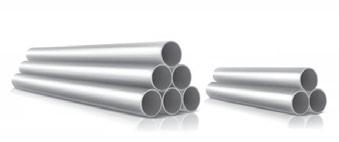
commercially and should be disposed of as scrap after research use, stated the order.
It further imposed penalties for non-compliance. While first-time violators of the BIS Act would face up to two years’ imprisonment or a minimum fine of INR 2 lakh, subsequent violations would lead to heavier penalties, with fines starting at INR 5 lakh and potentially reaching up to 10 times the value of the goods involved.
As per the DPIIT, the initiative aligned with the World Trade Organisation’s Agreement on Technical Barriers to Trade, and applied to various consumer goods, including LPG gas stoves, cement, household appliances and pressure cookers.
A mega steel plant, with an investment of around INR 40,000 crore, will be set up in Keonjhar district of Odisha. The plant will be jointly established by JSW and POSCO.
Mar 02, 2025
Odisha CM Mohan Charan Majhi announced that a mega steel plant with an investment of around INR 40,000 crore will be set up in the Keonjhar district of Odisha. The plant will be jointly established by JSW and South Korean steel giant, POSCO.
During the ‘Utkarsh Odisha-Make in Odisha Conclave,’ the JSW Group, led by Sajjan Jindal, signed an MoU with the Odisha government to establish a 5 million tonnes per annum (MTPA) steel plant in Keonjhar.
The CM further revealed that the steel industries
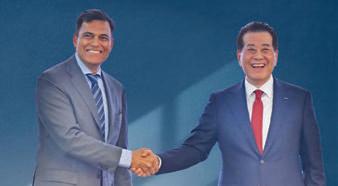
would be developed in various parts of the district, with a total investment exceeding INR 1 lakh crore.
In order to expand its value-added products range, improve efficiency, reduce costs and focus on supply chain logistics in the next three years, Jindal Steel & Power has announced a fresh capex outlay of INR 16,000 crore.
Feb 28, 2025
Jindal Steel & Power (JSP) has come up with a new capex plan worth INR 16,000 crore to expand its valueadded products range, improve efficiency, reduce costs and focus on supply chain logistics in the next three years.
The fresh capex outlay, announced during the reporting of JSP’s earnings for the third quarter of financial year 2025, is in addition to the capacity enhancement plan worth INR 31,000 crore announced earlier by the company. JSP has already spent around 76 percent (around INR 23,600 crore) of this capex so far. The balance is expected to be spent in FY26.
Out of the fresh capex, the company has allocated INR 5,720 crore for project enhancement, including the expansion of downstream facilities in Angul and Raigarh plants. JSP plans to set up a galvanized and colour coating line of 200,000 TPA each.
The company would utilize INR 4,500 crore for integrated supply chain projects such as setting up a pipe conveyor project to connect coal mines, adding 67
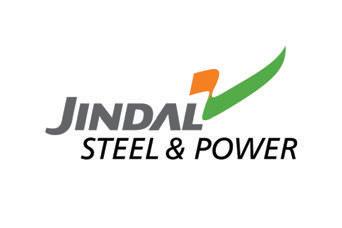
rakes and investment in port facilities. The remaining INR 5,780 crore would be used for sustenance capex and contingency.
With the fresh capex outlay of INR 16,000 crore, JSP aims to increase its total crude steel capacity from 9.6 million TPA in FY24 to 15.9 million TPA in FY27.
The promoters of the company have proposed a significant investment of INR 15,000 crore in Odisha with the goal to expand its steel production capabilities in the state.
Apr 14, 2025
Jindal (India) Limited, a flagship company of B.C. Jindal Group has proposed a significant investment of INR 15,000 crore in Odisha, aiming to expand its steel production capabilities in the state. The promoters of the group, including Mr. Shyam Jindal, Mr. Anubhav Poddar, and Mr. Ankit Agarwal met with Odisha Chief Minister Shri Mohan Charan Majhi and Minister Shri Sampad Chandra Swain to discuss this strategic initiative.
The proposed expansion will increase the company’s steel production capacity to 1.6 million tonnes annually, with a strong focus on manufacturing coated flat steel products, pipes, and crash barriers. This development aligns with the group’s long-term vision to contribute to India’s industrial landscape through sustainable and forward-looking investments.
Expressing his gratitude for the state’s support, Mr. Shyam Jindal said, “We sincerely thank the Hon’ble Chief Minister and Hon’ble Minister for engaging
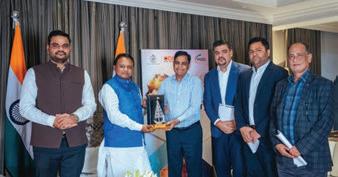
with us regarding our future plans in Odisha. The state government’s proactive approach in creating a business-friendly ecosystem makes Odisha an attractive destination for industrial growth. We are committed to playing a meaningful role in the state’s economic development and contributing to the larger goal of nation-building.”
With this proposed investment, the Group is set to enhance its footprint in the steel sector while reinforcing its commitment to responsible industrial advancement by the year 2030.
The project under the Jal Jeevan Mission involves supply of 3,000 MT GI pipes of assorted sizes to the Public Health Engineering (PHE) Department of Jammu within the next 30 days.
Feb 7, 2025
JTL Industries has secured an order worth INR 24 crore under the Jal Jeevan Mission for the supply of 3,000 metric tonnes of galvanized iron (GI) pipes.
The leading manufacturer of section pipes and tubes, as well as Electric Resistance Welded (ERW) steel pipes in India, said that it has received the order from the Public Health Engineering (PHE) Department of Jammu for the supply of 3,000 MT GI pipes of assorted sizes, within the next 30 days.
As per the steelmaker, with its established track record as a trusted supplier to the government, it was well-

positioned to support the significant opportunities presented by the extension of JJM.
The company said it looked forward to enhancing its visibility in water infrastructure, creating a longterm stakeholder value and further solidifying its commitment to the country’s water security and rural development with the rising investments in this sector.
The upcoming facility, part of a brownfield expansion at JSW’s plant located in Salav village of Raigad district in Maharashtra, will primarily serve the European market.
Apr 16, 2025
JSW Steel has unveiled plans to invest between INR 50,000 and INR 60,000 crore over the next three to four years for the establishment of a 10 million tonnes per annum (MTPA) green steel manufacturing unit in Maharashtra.
This initiative is part of a brownfield expansion at JSW’s existing plant in Salav village, situated in Raigad district of Maharashtra. The new facility will primarily cater to demand from the European market. The move comes as a strategic response to the European Union’s Carbon Border Adjustment Mechanism (CBAM), which will take effect on January 1, 2026, and aims to limit imports with high carbon footprints.

Previously, the company had announced phased expansion plans to scale the Salav plant’s green steel output to 4 million TPA. With its long-term vision, JSW Steel is targeting a significant leap in its production capabilities, from the current 34.2 million TPA to a projected 100 million TPA, positioning itself to become the world’s largest steel manufacturer.
Jindal Stainless Ltd (JSL) plans to invest INR 40,000 crore in a stainless steel manufacturing facility in Maharashtra, aiming to reduce reliance on imports and support key industries vital to India’s future growth.
Mar 27, 2025
Jindal Stainless Ltd (JSL) plans to invest INR 40,000 crore to establish a stainless steel manufacturing facility in Maharashtra.
The Maharashtra government has approved JSL’s investment proposal, which will be executed in phases over the next 10 years. The first phase is expected to be operational within four years.
With a total melting capacity of 4 million tonnes per annum, the facility will produce a wide range of stainless steel flat products in various grades, finishes, and thicknesses. These products will support critical applications in key sectors such as hydrogen, nuclear energy, defense, mobility, and infrastructure.
Mr. Devendra Fadnavis, Chief Minister of Maharashtra, said, “This is an investment approximately worth INR 42,886 crore (USD 5 billion), leading to significantly huge employment generation too.”
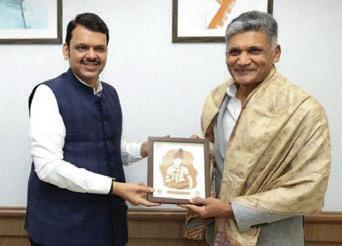
JSL Chairman Ratan Jindal emphasized that the new facility aligns with the vision of Atmanirbhar Bharat, reducing reliance on stainless steel imports. He stated that the project will expand JSL’s global footprint, set new benchmarks in technology and sustainability, and cater to industries crucial to India’s future development.
The greenfield steel mill will be set up in Koppal taluk of Karnataka under the name of Baldota Steel and Power Limited (BSPL). It is expected to create direct and indirect job opportunities for 15,000 people and redefine the steel industry of the country.
Baldota Group, a leading business conglomerate having diversified footprint in mining, steel, pelletization, green energy, wind power, gases, shipping, aviation and environmental care, is planning to establish an integrated steel plant in Koppal taluk of Karnataka with an annual production capacity of 10.5 million TPA, entailing an investment of INR 54,000 crore.
To be established under the name of Baldota Steel and Power Limited (BSPL), the greenfield steel mill is expected to create direct and indirect job opportunities for 15,000 people residing in nearby areas. It will further redefine the steel industry of the country, driving economic prosperity and industrial expansion.
As per a government statement, Mr. Rahul Kumar N Baldota, Joint Managing Director of the Baldota Group, said they aimed to make Baldota a leading company
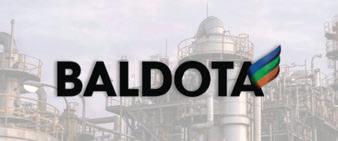
in the country. He expected the ambitious project to become Karnataka’s pride in the steel industry and bring the State at the forefront of steel production.
Mr. Baldota told a leading English daily that they were planning to hold the groundbreaking ceremony in March, 2025. It would take around 2.5 years to three years for the project to become fully operational.
Regarding the availability of iron ore, Mr. Baldota said it would be available in a 50-km radius, which would be ferried to the location as efficiently as possible.’
ArcelorMittal Nippon Steel India (AM/NS India) is preparing itself to become the country’s leading green steel manufacturer to achieve a three-star green steel certification under India’s forthcoming Green Steel Taxonomy. In line with its vision, AM/NS India is undertaking an INR 60,000 crore expansion project at its Hazira steel facility in Gujarat to increase its production capacity to 15.8 million tonnes per annum.
Apr 16, 2025
ArcelorMittal Nippon Steel India (AM/NS India) is preparing to position itself as the country’s first integrated steel manufacturer to achieve a three-star green steel certification under India’s forthcoming Green Steel Taxonomy, which is expected to be implemented by 2026-27. At the heart of this transformation is the company’s Hazira steel facility in Gujarat, where approximately 70% of its existing production capacity is set to shift to green steel.
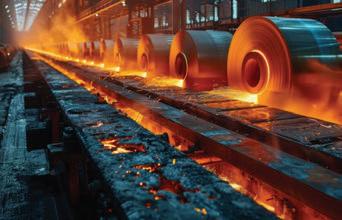
In line with its vision for sustainable growth, AM/ NS India is undertaking a major INR 60,000 crore expansion project aimed at increasing its production capacity to 15.8 million tonnes per annum.
Mr. Dilip Oommen, CEO of AM/NS India, highlighted the importance of aligning with India’s broader decarbonisation strategy, which targets net-zero emissions by 2070. He praised the introduction of the Green Steel Taxonomy, calling it a landmark initiative that provides a clear roadmap for the steel industry to transition towards sustainable practices. He expressed
the company’s determination to stand firmly with this vision, and have confidence in AM/NS India’s preparedness to meet the taxonomy’s standards when it is implemented.
The green steel classification depends on the carbon emissions intensity at the production site. To qualify, the emissions must not exceed 2.2 tonnes of CO2 equivalent per tonne of finished steel. The green steel output will then be evaluated using a three-tier rating system, awarding three-star, four-star, or five-star certifications based on performance.
APL Apollo Pipes Limited has acquired an additional 1% equity stake in KML, taking the total equity holding to 57.08%. The cost of acquisition is approximately INR 5.59 crore, and the total paid-up is INR 119.5 crore.
Feb 27, 2025
APL Apollo Pipes Limited has acquired an additional 1% equity stake through a secondary purchase in subsidiary Kisan Mouldings Limited. The company has increased the total equity holding from 56.08% to 57.08% in KML. The cost of acquisition is approximately INR 5.59 crore, according to an exchange filing. The total paid-up equity share capital of KML as of the date is INR 119.5 crore.

KML is an existing subsidiary of APL Apollo Pipes Limited and is primarily engaged in the manufacturing of PVC pipes, fittings, UV-resistant multilayer water tanks, and allied products.
Hariom Pipe Industries has attained a LoA from Maharashtra State Electricity Distribution for a 60 MW solar photovoltaic power project.
Mar 04, 2025
Hariom Pipe Industries has received a letter of award (LoA) from Maharashtra State Electricity Distribution (MSEDL) for a 60 MW (AC) solar photovoltaic power project. The scope of this project includes ownership, financing, development, design, engineering, procurement, construction, commissioning, operation, and maintenance, as well as evacuation infrastructure up to the delivery point. The electricity distribution company of Maharashtra will purchase power from this project for 25 years, starting from the date of commercial operation.
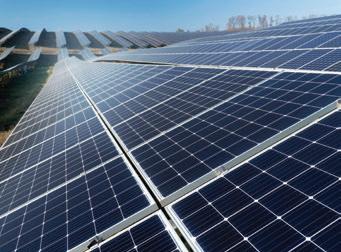
Ashirvad Pipes is planning to invest around INR 400 crore in setting up two greenfield manufacturing facilities in South India—Chennai and Hyderabad— by FY27, increasing the production capacity from 3 lakh tonnes to 4 lakh tonnes per annum.
Mar 10, 2025
Belgium-based Aliaxis’ unit in India, Ashirvad Pipes, is planning to invest around INR 400 crore in setting up two greenfield manufacturing facilities in Chennai and Hyderabad by FY27 to expand its manufacturing capacity.
Partha Sarathi Basu, Managing Director, Ashirvad by Aliaxis, said, “We will be setting up the Hyderabad plant in FY26, while the Chennai plant will come up in FY27. The total investment for the two new plants will be around INR 400 crore.’’
These two new facilities will increase Ashirvad Pipes production capacity from 3 lakh tonnes to 4 lakh tonnes per annum, increasing it directly by 1 lakh tonnes.
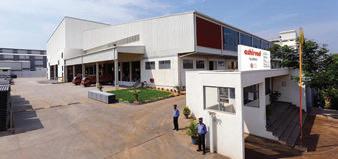
“In the organised sector, we presently have a market share of 12 per cent. In South India, we are robust with around 50 per cent market share. We are eyeing an 18 per cent market share nationally by FY27,” said Basu. With this, the company aims to grow its revenue from INR 6,500 crore in FY24 to INR 9,000 crore by FY27. The company recently signed an MoU with Jadavpur University for research in new molecule development.
Finolex will increase its capacity by around 25,000 tonnes in this Q4 FY ‘25, while the remaining 25,000 tonnes will be added by Q1 FY ‘26.
Mar 5, 2025
Finolex Industries Limited, a backward integrated manufacturer of PVC pipes and fittings in India, has announced to invest INR 100-150 crore in the next two years, to increase its capacity by 50,000 tonnes.
This information was shared by Mr. Saurabh Sarvottam Dhanorkar, Managing Director of Finolex Industries Limited, during Q3 the FY ‘25 earnings conference call.
Answering a query, Mr Dhanorkar said the company planned to add 50,000 tonnes to its current capacity in the next two years.
Out of this 50,000 tonnes expansion at current locations, about 45 percent or roughly 25,000 tonnes would come in this quarter, Q4 FY ‘25, while the remaining 25,000 tonnes would be done by Q1 FY ‘26, he added.
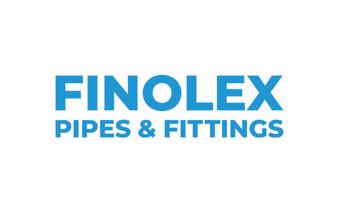
As per Mr. Chandan Verma, Chief Financial Officer, Finolex Industries Limited, post this expansion, Finolex’s pipe capacity would reach 470,000 tonnes and the fitting capacity would reach 50,000 tonnes. The company would enhance its overall capacity from current 470,000 tonnes to 520,000 tonnes.
ArcelorMittal Nippon Steel India (AM/NS India) aims to enhance steel production efficiency and reach a total processing capacity of 0.5 million TPA by setting up three more facilities by FY26 worth INR 350 crore.
Mar 28, 2025
In order to strengthen domestic scrap supply chains and meet the growing demand for high-quality scrap for its steel production, ArcelorMittal Nippon Steel India (AM/NS India) has commissioned its first scrap processing facility in Khopoli, Maharashtra, with a capacity of 120 kTPA.
Mr. Akshaya Gujral, Executive Director of Downstream Operations at AM/NS India, said that under its investment programme worth INR 350 crore, the company planned to set up at least three more facilities and reach the total processing capacity of 0.5 million TPA by FY26.
With 65 percent of its existing steelmaking capacity

operating on gas-based Direct Reduced Iron-Electric Arc Furnace (DRI-EAF), AM/NS India planned to achieve 10 percent scrap utilisation by 2030.
Through the INR 350 crore investment plan, the company aimed to meet the rising customer demand for recycled steel, formalise the domestic scrap market, and support India’s sustainability goals, he added.
The USD 1.3 billion project will annually transport about 8.3 million tonnes of LPG, about 25% of India’s total demand, and will significantly reduce transportation expenses by about 70%.
Feb 28, 2025
Indian refiners will commission the world’s longest LPG pipeline by June 2025. The pipeline will be a key development in the country that will reduce fuel transportation expenses and prevent road accidents.
Indian Oil, Bharat Petroleum Corporation, and Hindustan Petroleum Corporation have jointly formed IHB, which will lay a 2,800-kilometre pipeline from Kandla to Gorakhpur. The first phase will be commissioned in March and will be fully operational in the middle of this year, said Mr. N. Senthil Kumar, Director of Pipelines at Indian Oil Corporation.
The USD 1.3 billion project will be capable of annually transporting about 8.3 million tonnes of LPG, or about 25% of India’s total demand, and is likely to reduce transportation expenses to about 70%, as per a media report. The new pipeline will replace hundreds
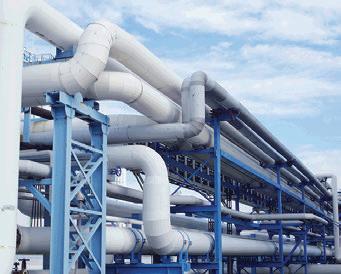
of trucks moving the fuel from refineries to bottling plants, thus reducing the risk of accidents in the country.
HIL Limited has rebranded itself as BirlaNu. The company plans to invest INR 1,300 over 3 years, targeting to become a USD 1 billion company.
Mar 25, 2025
CK Birla Group’s flagship company, HIL Limited has unveiled a new brand identity, BirlaNu. The company aims to become a USD 1 billion company by planning to invest approximately INR 1,300 crore to drive the company’s growth and achieve the target by 2028.
The investment is expected to be utilised on expanding manufacturing capacities and acquisitions to accelerate the growth of the company.
It currently operates 4 manufacturing plants for pipes & fittings in India. Mr. Akshat Seth, MD & CEO, BirlaNu
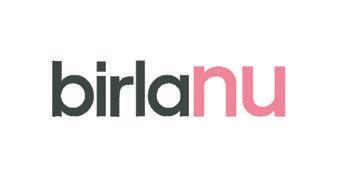
said, “In Pipes and Fittings, our volumes grew by 57%, significantly outpacing the market and peers. We have successfully integrated our acquisition of Crestia.”
Jindal United Steel Limited (JUSL), a part of Jindal Stainless, has signed a contract with Primetals Technologies for the comprehensive upgrade of its hot-strip mill at the Jajpur facility in Odisha.
Apr 10, 2025
Jindal United Steel Limited (JUSL), a part of Jindal Stainless, has given a contract to Primetals Technologies for the comprehensive upgrade of its hot-strip mill, which produces both plates and coils, at the Jajpur facility in Odisha.
Scheduled for completion by December 2026, this strip mill upgrade will enhance the production capacity and product quality of plate manufacturing.
As part of the modernization, Primetals Technologies will upgrade the cooling bed No. 1 by installing a new heavy plate shear with a hydraulic pump station, and add cooling bed No. 2. to extend the mill’s heavy plate processing area.
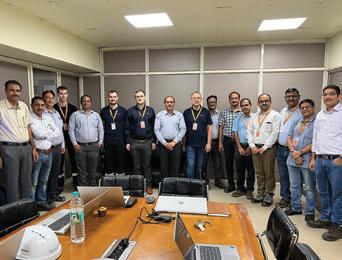
The upgrade includes the installation of a new coil box, refurbishment of the work roll cooling system across all seven finishing mill stands, and the implementation of a new automation system for the cooling beds. Additionally, a human-machine interface (HMI) system will be introduced to enhance heavy plate handling operations.
A key focus of the modernization is to enhance strip quality. The upgraded work roll cooling system will enable improved distribution of cooling water while maintaining current consumption levels. This enhancement is expected to significantly improve the surface quality of the rolled materials following the upgrade.
PLI 1.1 sees INR 17,000 crore investment commitment in second round with 42 MoUs signed, strengthening India’s Self-Reliance in Steel.
Mar 24, 2025
PLI scheme for speciality steel, termed PLI Scheme 1.1, has drawn an investment of approximately INR 17,000 crore from 25 companies. The 2nd phase of the scheme was launched in January 2025, resulting in the signing of 42 MoUs by 25 companies with the government to manufacture high-quality steel in India. The investments are seen as a significant step towards self-reliance.
Launched in July 2021, the PLI scheme for specialty steel covers five broad categories and 19 subcategories. The initiative ensures that only companies registered in India and engaged in end-to-end steel production are eligible for incentives. The scheme has generated strong industry participation, prompting the government to introduce Round 2, allowing more companies to benefit.
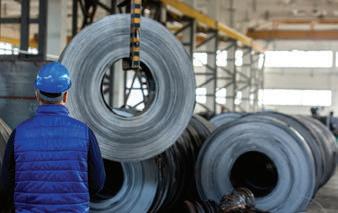
To encourage investment and boost output, the government is offering incentives ranging from 3-4% based on investment and production targets. In the first round, 44 applications were submitted by 23 companies, with incentives already disbursed for one project.
The plan will ensure an affordable and secure energy supply for the sector, prevent carbon leakage, expand and protect European industrial capacities, promote circularity, protect quality industrial jobs, and ensure de-risking of decarbonisation.
Mar 20, 2025
In order to maintain and expand European industrial capacities in the steel & metal sectors, as well as strengthen the sectors’ competitiveness, the European Commission, the executive body of the European Union (EU), has come up with an ‘Action Plan on Steel and Metals’.
As per the Commission, the European steel industry is fundamental for the European economy, providing inputs to critical sectors such as automotive, clean tech and defence. At the same time, this sector is at a critical turning point, challenged by high energy costs, unfair global competition and the need for investments to reduce greenhouse gas emissions.
Commission President Ursula von der Leyen said, “We need to help our steelmakers who are facing strong

headwinds on the global market. To make sure they remain competitive, we must reduce energy costs and help them introduce innovative, low-carbon technologies to the market. With today’s Action Plan we are offering concrete solutions for a thriving European steel industry.”
The plan will ensure an affordable and secure energy supply for the sector, prevent carbon leakage, expand and protect European industrial capacities, promote circularity, protect quality industrial jobs, and ensure de-risking of decarbonisation.
Centre imposes a 12 percent safeguard duty on the import of certain non-alloy and alloy steel flat products to ensure fair competition in the steel market.
Apr 21, 2025
The Union Minister for Steel and Heavy Industries, Shri H. D. Kumaraswamy has welcomed the decision to impose a 12 percent safeguard duty on the import of certain non-alloy and alloy steel flat products, as this measure is a timely and necessary step to protect domestic steel manufacturers from the adverse impact of import surges and to ensure fair competition in the market.
“This move will provide critical relief to domestic producers, especially small and medium-scale enterprises, who have faced immense pressure from rising imports. The safeguard duty will help restore market stability and reinforce the confidence of the domestic industry,” says Union Minister.

He reiterated that the Ministry remains committed to working with all stakeholders to ensure that the Indian steel sector remains resilient, self-reliant, and globally competitive.
SMS group’s experts, Mr. Jia-Uei Chan, Mr. Minh Quoc Truong, Mr. Suchin Samatiwat, and Mr. Riyadi Dede, delivered insightful presentations on ‘Lifecycle Performance Service Solutions,’ demonstrating their commitment to advancing the steel industry’s efficiency and sustainability.
Apr 16, 2025
SMS group participated in the 2025 SEAISI Travelling Technical Seminar, themed ‘Sustainable Smart Manufacturing and Process Automation: Enhancing Productivity and Energy Efficiency in the Steel Industry.’
Held from February 11 to February 26, 2025, the seminar aimed to foster knowledge transfer among SEAISI member countries, highlighting the significance of innovation and sustainability in steel industries. ASEAN countries, including the Philippines, Malaysia, Myanmar, Thailand, Vietnam, Indonesia, and Singapore participated in the event.
SMS group’s experts, Mr. Jia-Uei Chan, Mr. Minh Quoc Truong, Mr. Suchin Samatiwat, and Mr. Riyadi Dede delivered insightful presentations on ‘Lifecycle Performance Service Solutions,’ to local steel manufacturers, demonstrating their commitment
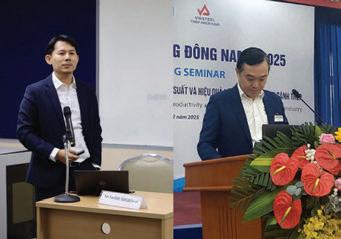
to advancing the steel industry’s efficiency and sustainability. The seminar offered valuable insights and fostered meaningful discussions among participants.
The Trans-Saharan Gas Pipeline (TSGP) is a strategic project designed to establish a 4,128-km-long pipeline for transportation of natural gas from Nigeria through Niger to Algeria.
Feb 20, 2025
Algeria, Nigeria and Niger have signed new agreements in Algiers to speed up the development of a continental natural gas pipeline, which will transport billions of cubic meters of Nigerian gas to Europe, passing through the Sahel countries.
Announced in 2009, the Trans-Saharan Gas Pipeline (TSGP) is a strategic initiative designed to establish a 4,128-km-long pipeline for transportation of natural gas from Nigeria through Niger to Algeria. The gas could be pumped from Algeria through the undersea Mediterranean pipeline Transmed to Italy or loaded onto liquefied natural gas tankers. The project would facilitate exports to European markets and other international destinations.
The new contracts, including an agreement for updating the project’s feasibility study, a nondisclosure agreement (NDA) among the energy companies from the three nations and a compensation contract, were signed during the 4th ministerial meeting of the steering committee for the TSGP project, held in Algiers.
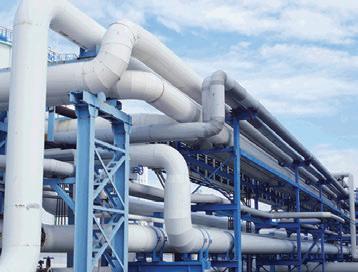
The feasibility update would explore the ‘required’ means to expedite the development of this project in a timely manner and at competitive costs, Algerian Energy Minister Mohamed Arkab said. Calling TSGP a vital link between Africa and the world, Mr. Arkab said the strategic project would make Africa position the continent as a key player in the global energy market.
The meeting did not give any update of the pipeline’s cost, which was estimated at launch at USD 10 billion.
The facility will manufacture wire rod as an import substitute, helping Bangladesh to save around USD 250 million. It will also reduce the production cost per tonne of steel through the use of environment-friendly technology.
Mar 17, 2025
Bashundhara Multi Steel Industries (BMSIL) has announced that the world’s largest single-strand mini mill, being established at the National Special Economic Zone in Mirsarai of Chattogram, would start production by mid-2026.
As per the leading steel manufacturers from Bangladesh, this was the first earthquake-resistant, integrated steel facility in the country to manufacture long steel products, such as rebar coil and wire rods,
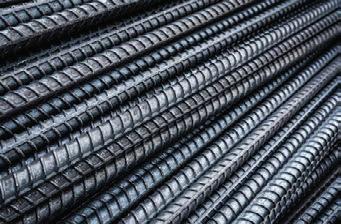
using environmentally-friendly technology. In January 2021, the steel major had ordered an endless-casting rolling mini mill from Danieli, Italy-based leading global supplier of equipment and plants for the metals industry.
With the biggest MIDA (mini-mill Danieli) plant currently functional across the globe, the company said it intended to produce 1.25 million TPA different types of world-class long steel products, including the country’s largest length rebar in coil, square bar, an import substitute of wire rod, Low Relaxation PreStressed Concrete Steel Strands (LRPC) and electrodes.
An official of BMSIL revealed that 50 percent
construction has been completed at the site, spread across 70 acres in Chattogram.
He said the adoption of energy-efficient technology from Danieli in the endless casting and rolling process would reduce the production cost per tonne of steel by approximately USD 24.71 (Tk 3,000), adding that the manufacturing of wire rod as an import substitute would help Bangladesh to save around USD 250 million (Tk 3,000 crore) in foreign currency.
The plant would incorporate the most updated technology of “Micromill,” a mini mill based on ultracompact design and extremely low transformation costs, he added.
Jharkhand’s steel sector to receive investment of approximately INR 13,000 crore, nearly half of Jharkhand’s INR 26,000 crore investment proposals during the Bengal Global Business Summit.
Feb 10, 2025
The steel sector bags half of Jharkhand’s INR 26,000 crore investment proposals. During the Bengal Global Business Summit (BGBS) in Kolkata, the steel sector led the investment race with almost 50 percent of the total proposed investments. The investments are proposed by companies like Supreme Metals Export Private Ltd, Voltox Rail Pvt Ltd, BMW Industries Ltd, and Rashmi Metaliks Ltd.
Supreme Metals Export Private Ltd has proposed an investment of INR 3,000 crore to set up a steel plant while Voltox Rail has shown interest in setting up a special steel manufacturing plant worth approximately INR 4,000 crore. Additionally, BMW Industries Limited has expressed interest in setting up a cold rolling mill plant with an investment of around INR 1,100 crore expected to generate 1,500 jobs. Furthermore, Rashmi
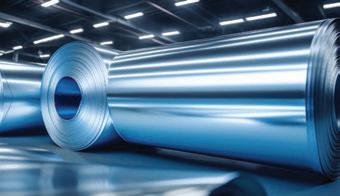
Metalliks Limited has proposed an investment of INR 3,800 crore in the state.
Bengal Global Business Summit (BGBS) is the flagship

Supreme Industries and Wavin India have signed a Memorandum of Understanding to acquire Wavin India’s plastic piping business with an investment of USD 30 million.
Mar 11, 2025
Supreme Industries has signed a Memorandum of Understanding with Wavin India to acquire its Indian Piping Business with an investment of USD 30 million. The acquisition will further enhance Supreme Industries’ plastic pipes business capacity by 73,000 MTPA. The acquisition, which is in the same line of existing business - manufacturing plastics piping systems, is expected to be completed by June 30, 2025.
It will enable Supreme Industries to utilize three manufacturing facilities of Wavin India in Banmore (Madhya Pradesh), Hyderabad (Telangana) and Neemrana (Rajasthan) to serve the North Indian and South Indian markets more efficiently. The company mentioned in its exchange filing that beyond the physical assets, it will have exclusive access to all existing technologies from Wavin BV - Netherlands (parent company) and other new technologies to be
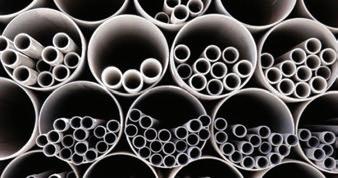
developed during a period of seven years for India and SAARC countries.
Additionally, the company also mentioned that it shall have exclusive access to water supply, sanitation, climate resilient cities and better building performance products & technologies as well as new technologies to be developed in the building and infrastructure segment from the parent company.
The new expansion will increase the plant’s production capacity from 4.4 million TPA to 9.4 million TPA by 2030, along with several major infrastructure additions.
Mar 16, 2025
Steel Authority of India Ltd (SAIL) has unveiled plans to invest INR 30,000 crore to expand its Rourkela Steel Plant (RSP) in Odisha, doubling its production capacity from 4.4 million TPA to 9.4 million TPA by 2030. This move will make RSP a major contributor to SAIL’s overall target of 35 MTPA steel output. Alok Verma, Director In-Charge of RSP, emphasized that with this expansion, we aim to garner a sizeable share of the sectors which we cater to.
The mega greenfield expansion project will span 1,200 acres on the southeastern side of RSP and include several major infrastructure additions, such as a new raw material handling plant, coke oven stamp charge battery, sinter plant, thin slab caster-direct rolling mill, cold rolling mill & silicon mill, and a new blast furnace & steel melting shop. Additionally, a dedicated railway
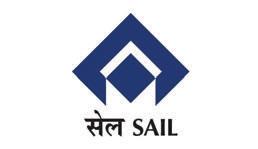
line from Dumertra station to RSP is being constructed to improve logistics and avoid overloading in Bonda Munda Yard.
This expansion aligns with India’s National Steel Policy, which targets 300 million TPA capacity by 2030. This move will not only enhance India’s self-sufficiency in high-grade steel production but also support infrastructure growth, defence manufacturing, and the auto sector.
In order to simplify and make Carbon Border Adjustment Mechanism (CBAM) effective, EUROFER has sought introduction of a structural legislative solution to preserve European exports and reduce the high risk of resource shuffling, as well as extend the mechanism’s scope to steel-intensive downstream products.
Following the high-level conference “A Carbon Border Adjustment Mechanism for Climate - Addressing carbon leakage to strengthen global climate action”, organised in Paris by the European Commission and the French Ministries of Finance, Economics and Climate Transition, the European Steel Association (EUROFER) has emphasized that simplification must go hand in hand with ensuring the instrument’s effectiveness.
A statement issued by EUROFER stressed on addressing key issues such as resource shuffling, exports and the inclusions of products further down the value chain. It said during the conference, the Commission announced that legislative proposals on crucial aspects of the Carbon Border Adjustment Mechanism (CBAM), including exports provisions and coverage of downstream sectors, will only be presented at the beginning of next year. A top priority for securing steel decarbonisation investments in Europe, which was tackling resource shuffling, was currently not even listed in the Commission’s planning of upcoming legislative proposals.
EUROFER said it was concerned about the differing timelines allocated to the simplification and the effectiveness of CBAM. While the Commission was fast-tracking simplification through the Omnibus Package, the European steel industry remained deeply worried about the lack of urgency in ensuring CBAM’s effectiveness.
Noting that this year’s review of CBAM was critical to achieving both objectives, the Association sought major improvements, including introduction of a structural legislative solution to the very high risk of resource shuffling; introduction of a structural solution to preserve European exports, avoiding carbon leakage on global markets; and extending the CBAM’s scope to steel-intensive downstream products.
Additionally, other design elements, such as stringent default values and the free allocation adjustment,

must uphold the mechanism’s environmental integrity, it added.
EUROFER said if these adjustments were not implemented this year, the combination of CBAM and the scheduled phase-out of free allocation would fail to provide adequate protection against carbon leakage. This could further incentivise the relocation of production to third countries, negatively impacting both steel and downstream sectors. While pursuing the effectiveness and environmental integrity of the mechanism, the administrative burden on operators should be minimised through simpler and streamlined procedures.
The Commission has already planned certain simplifications as part of the Omnibus revision. In particular, a revision of the current de minimis threshold of EUR 150 could be an appropriate adjustment to avoid unnecessary reporting for small consignments. Furthermore, CBAM reporting obligations should not apply to European products exported outside the EU, processed abroad, and subsequently reimported into the EU as CBAM goods. Effective monitoring should prevent such provisions from favouring circumvention practices.
In line with these recommendations, a more effective yet simpler CBAM was both possible and urgently needed. Launching it without the necessary improvements would further erode the competitiveness of the European steel industry. This was indispensable given that the EU carbon price had reached approximately EUR 80 per tonne, while over 25 million tonnes of steel, equivalent to around 20 percent of EU production, were imported annually from third countries without any carbon cost.
